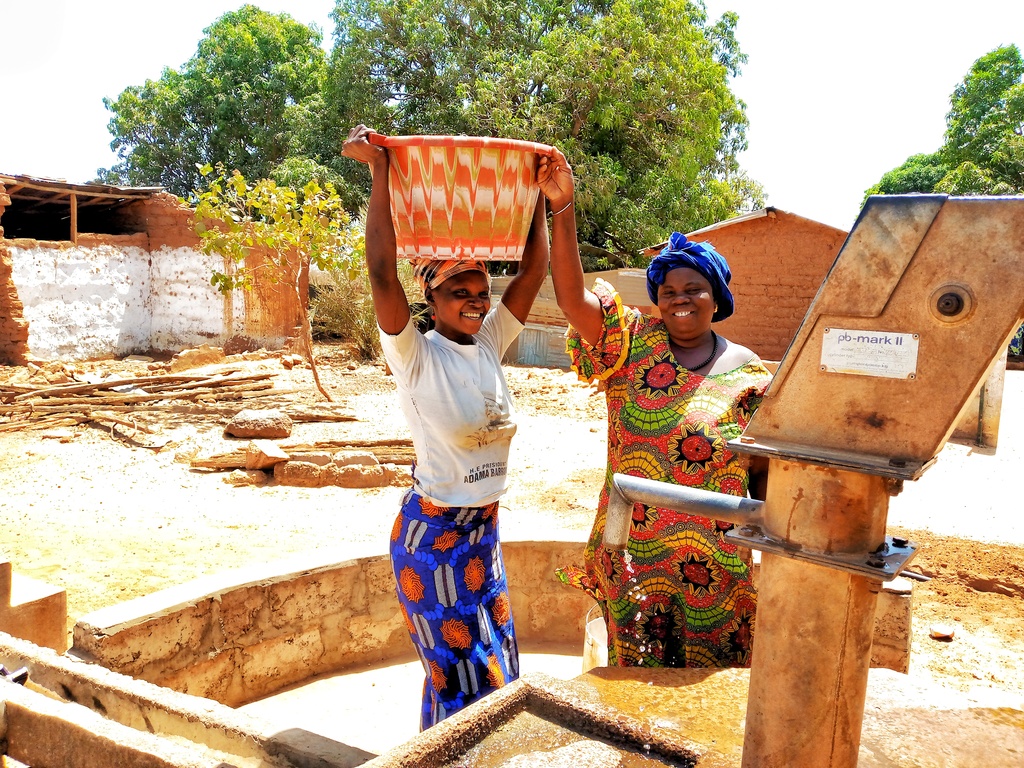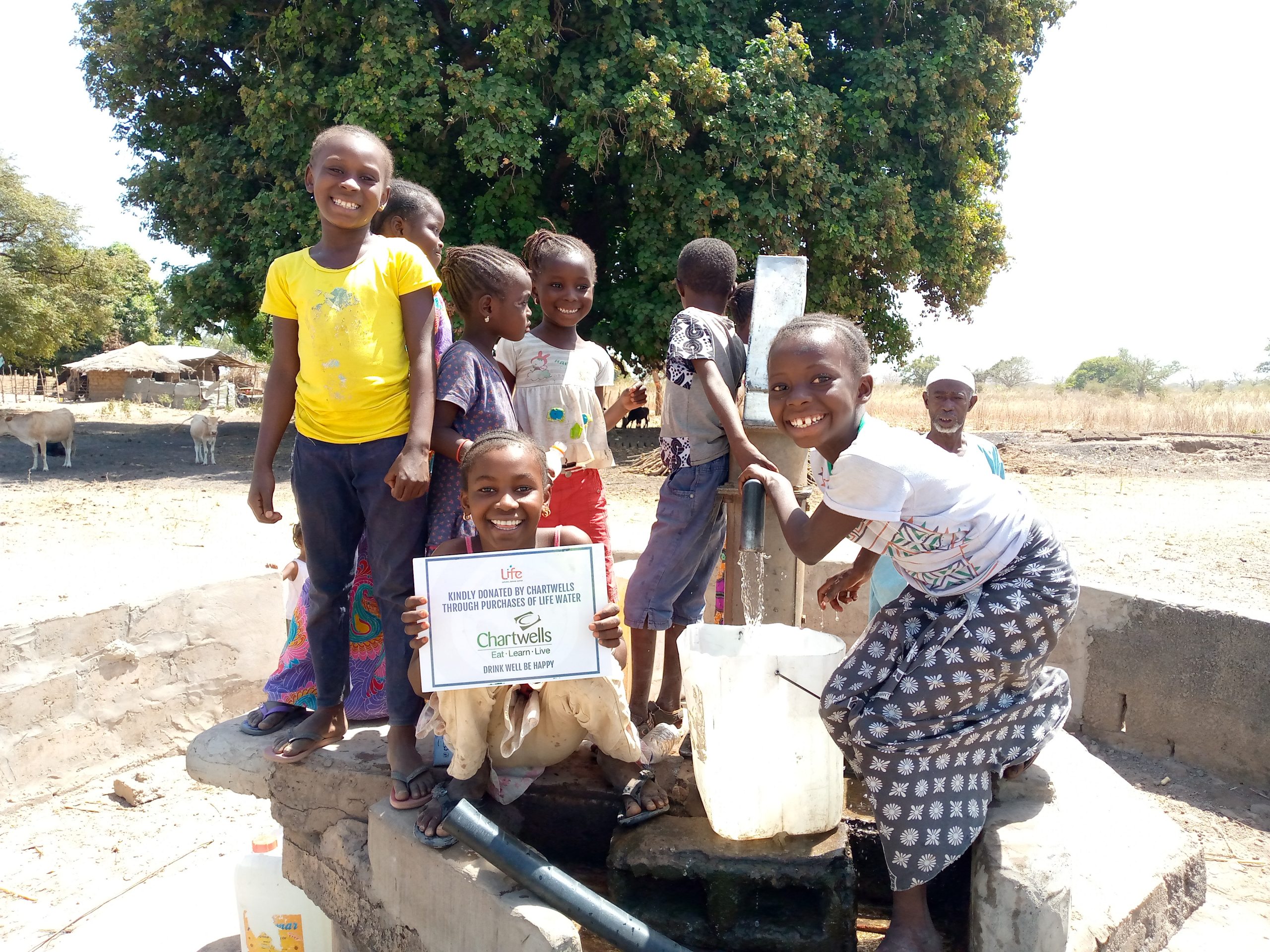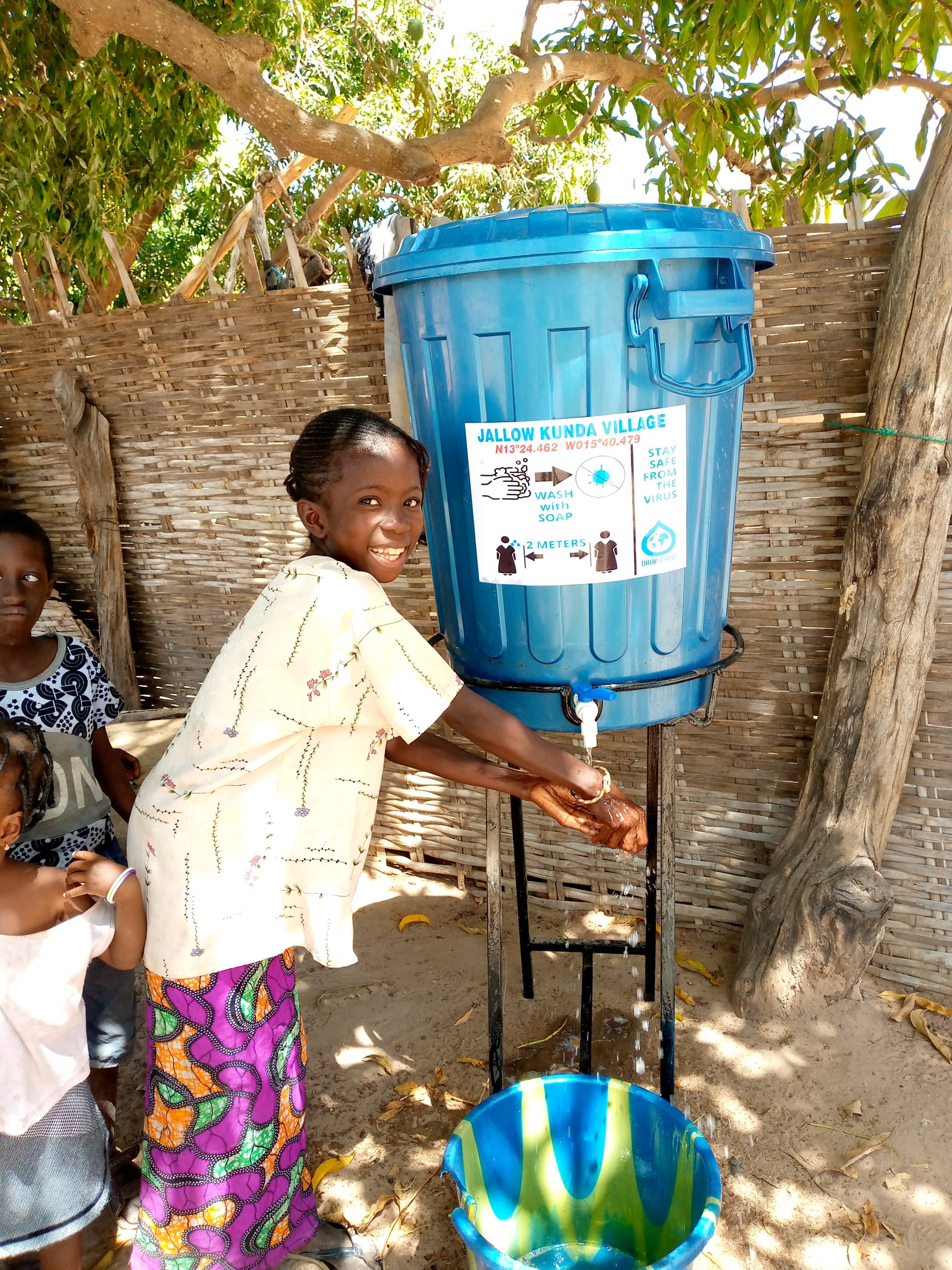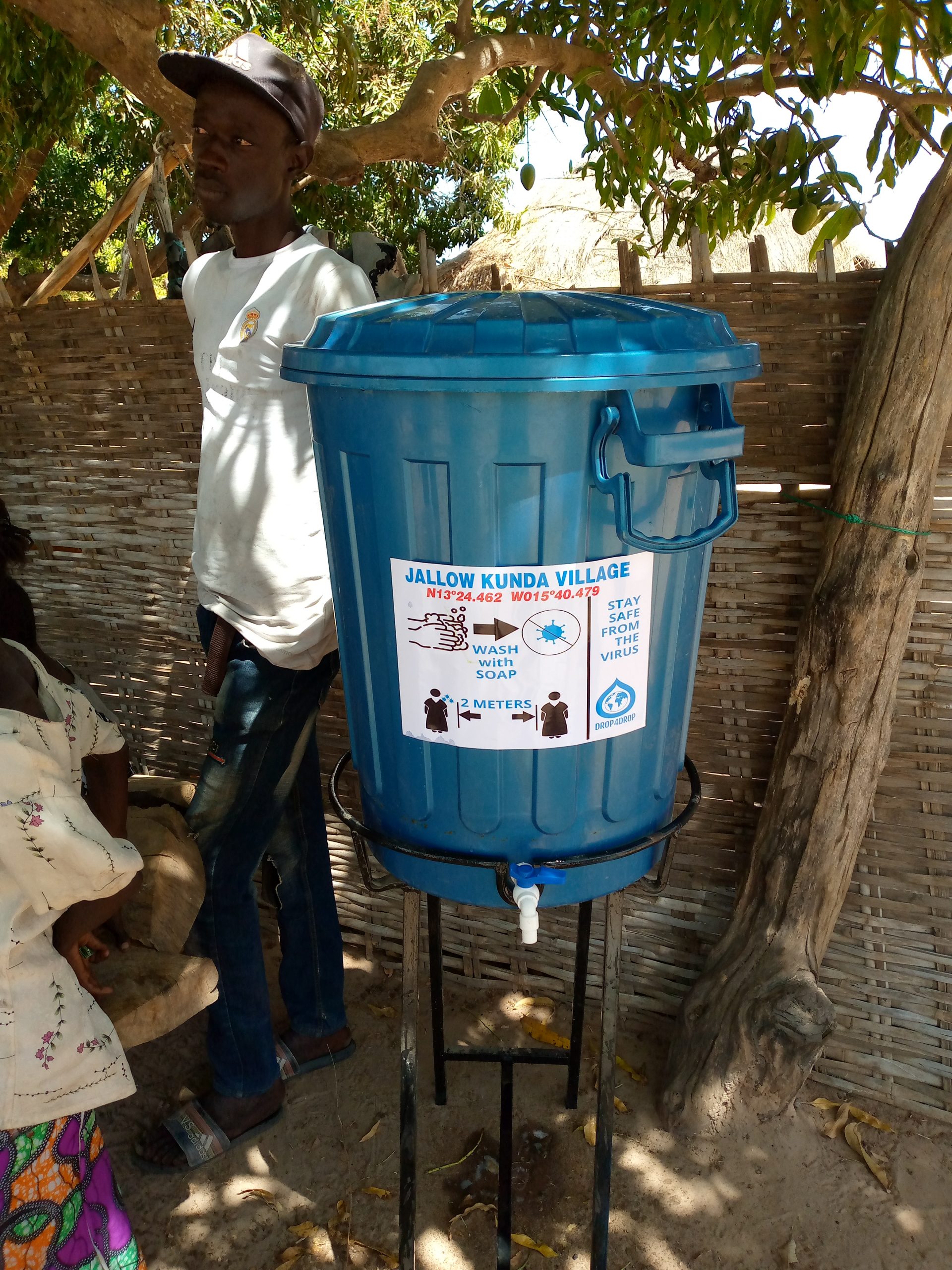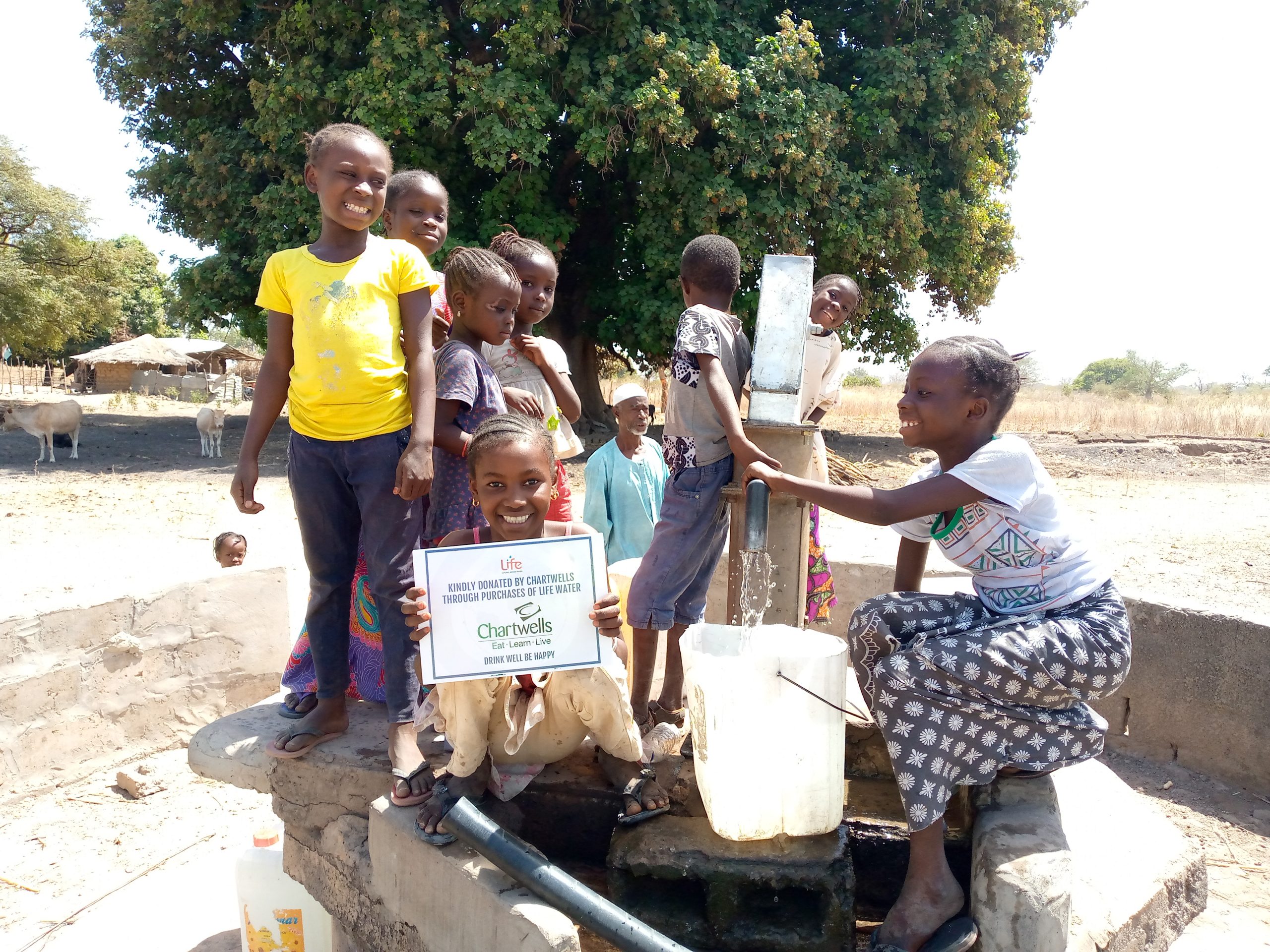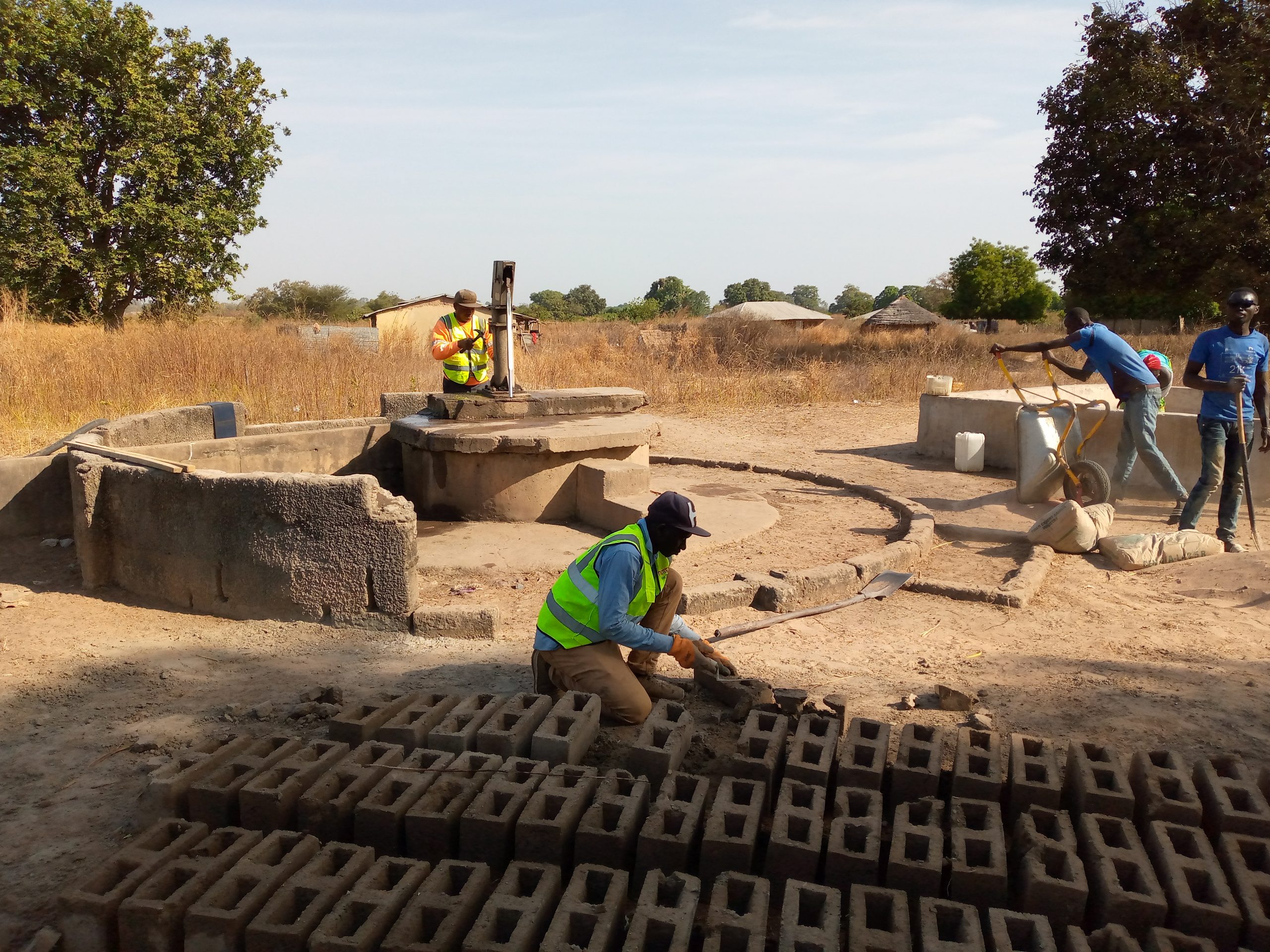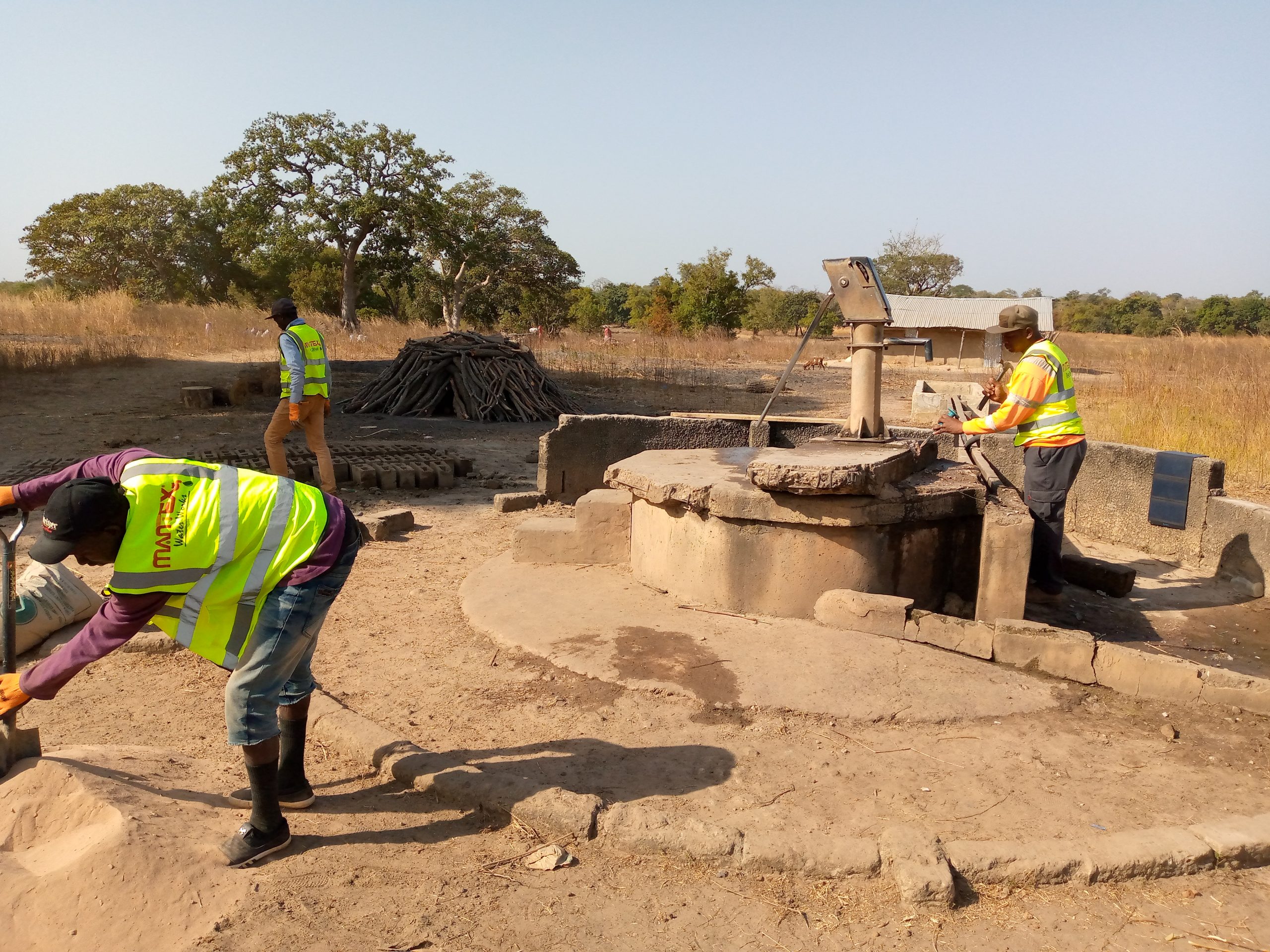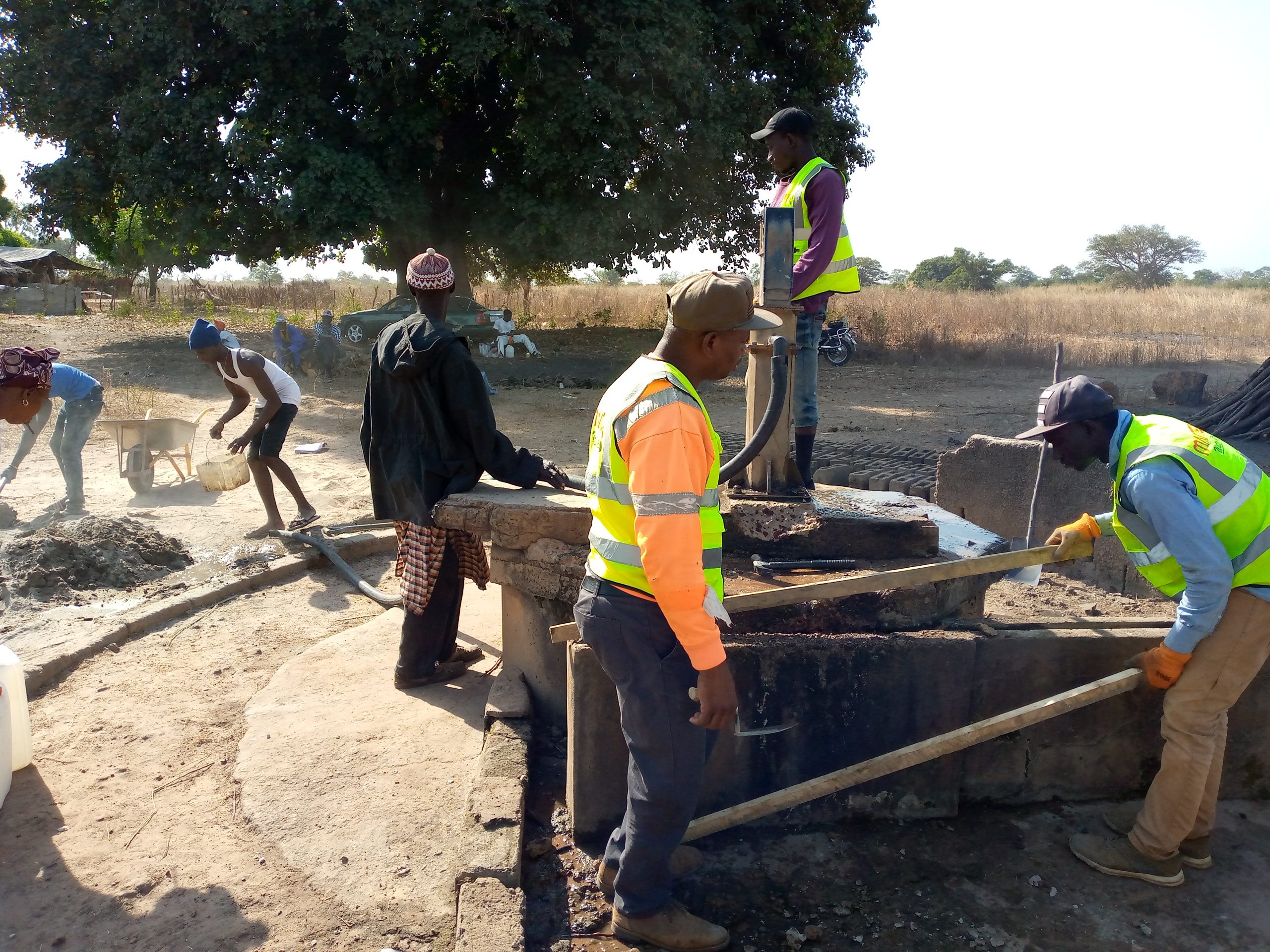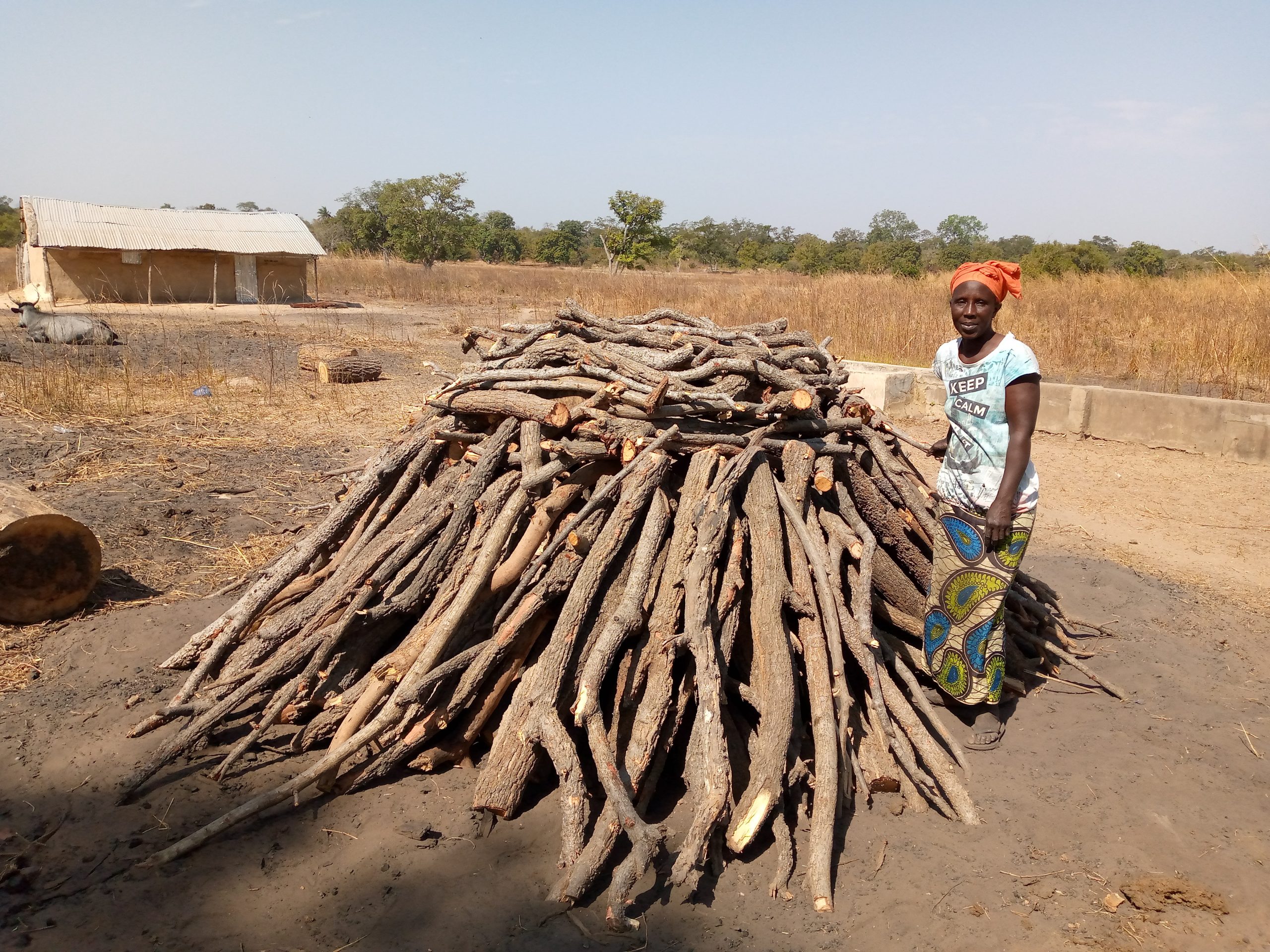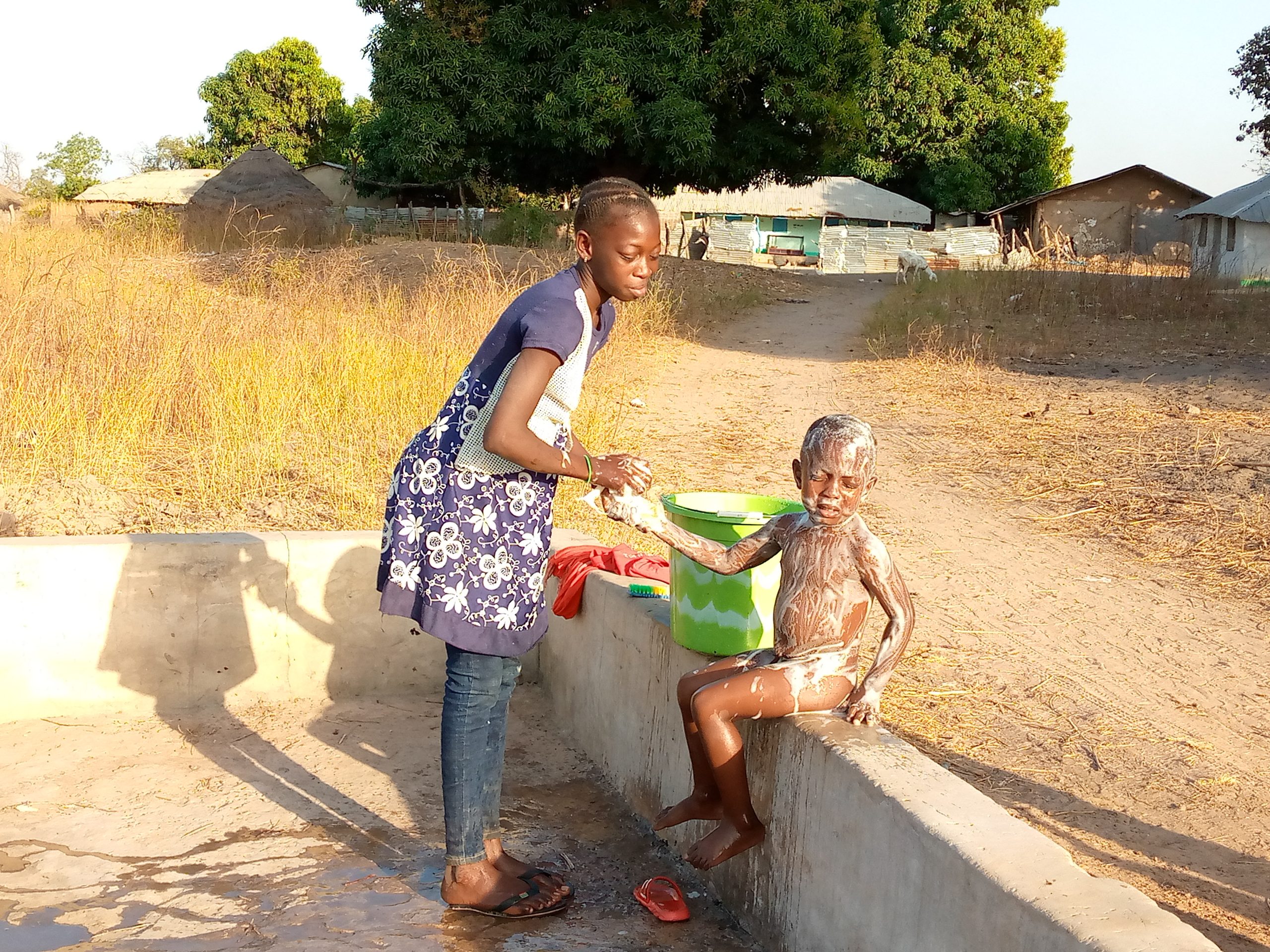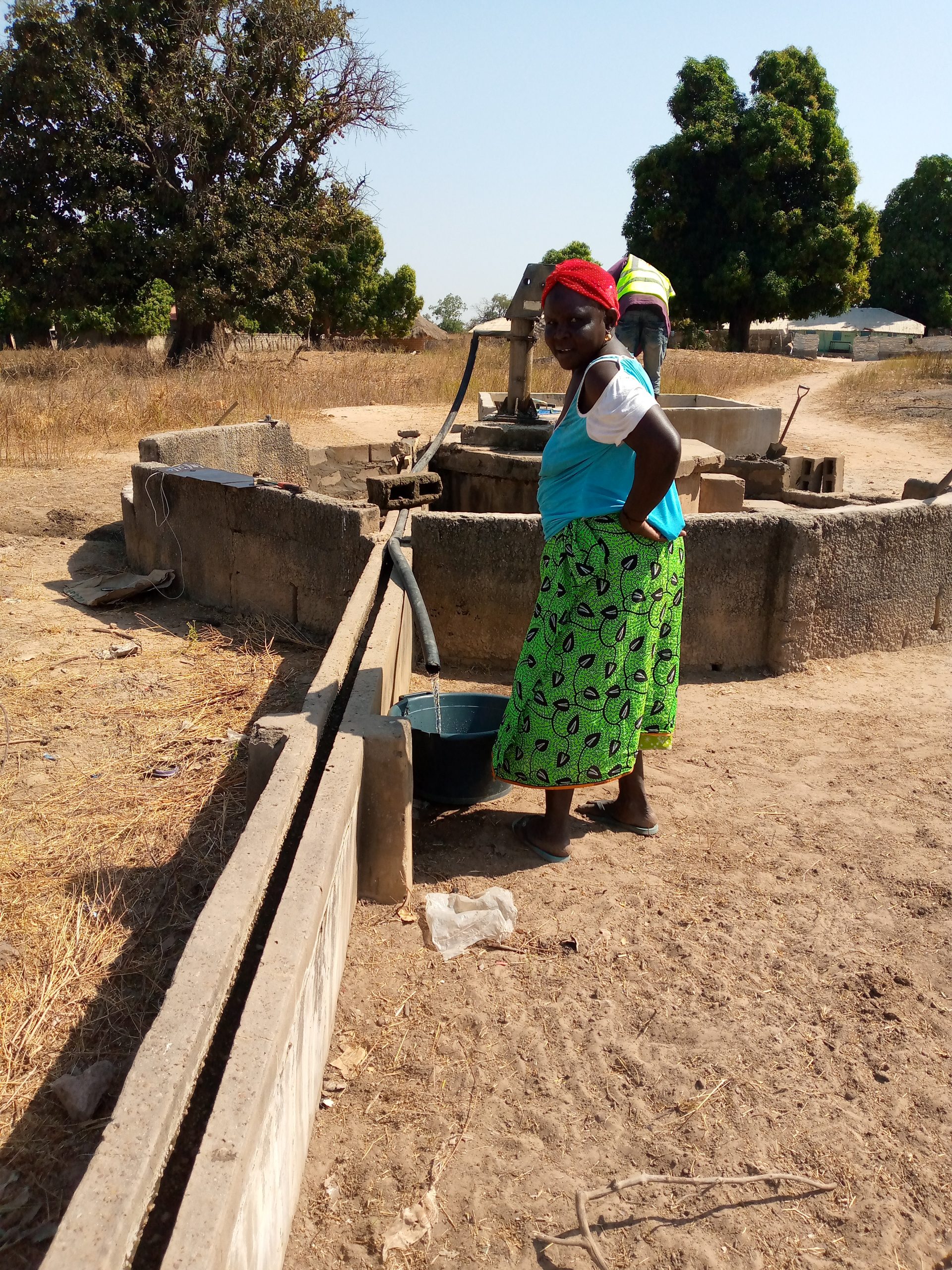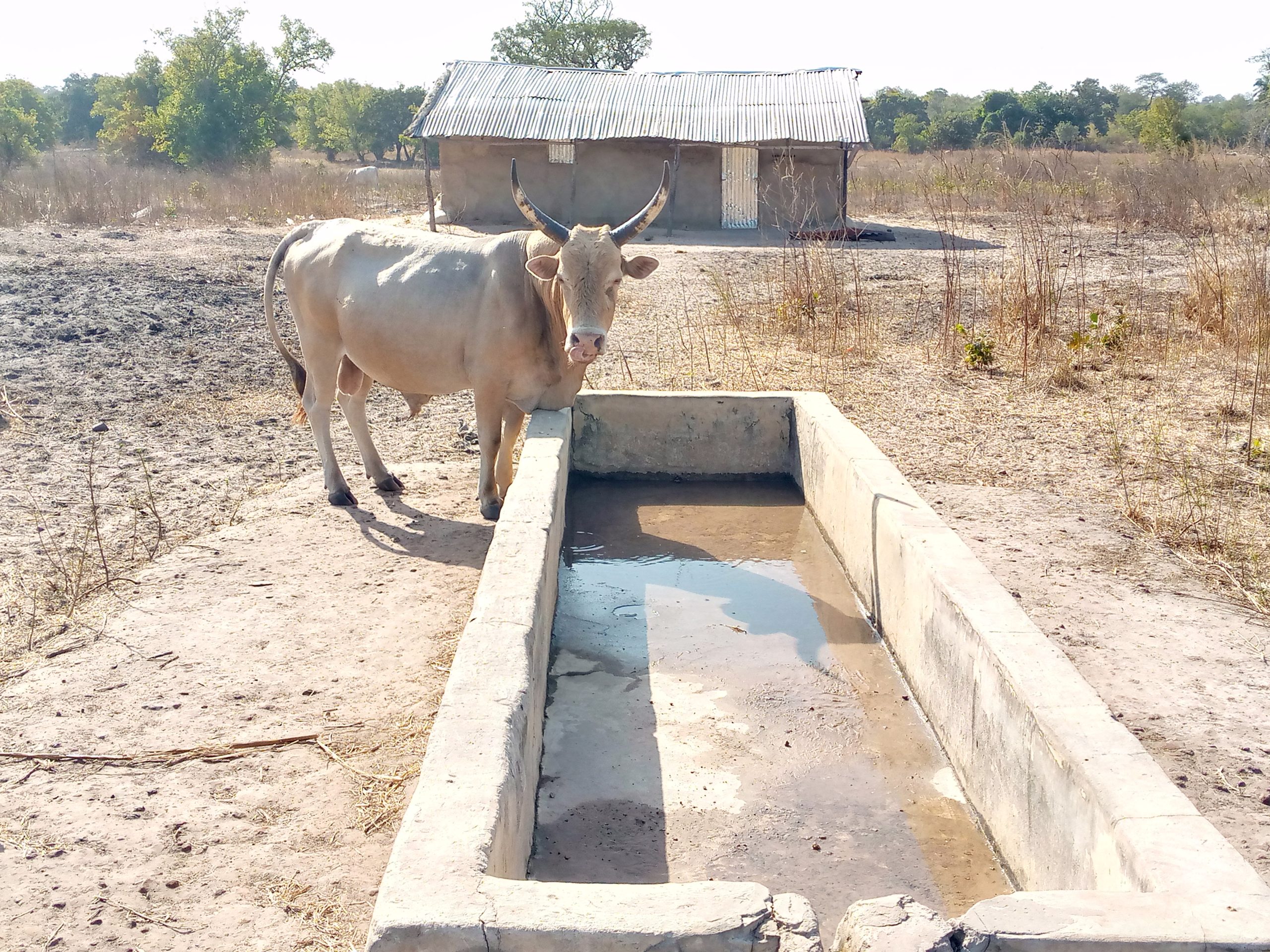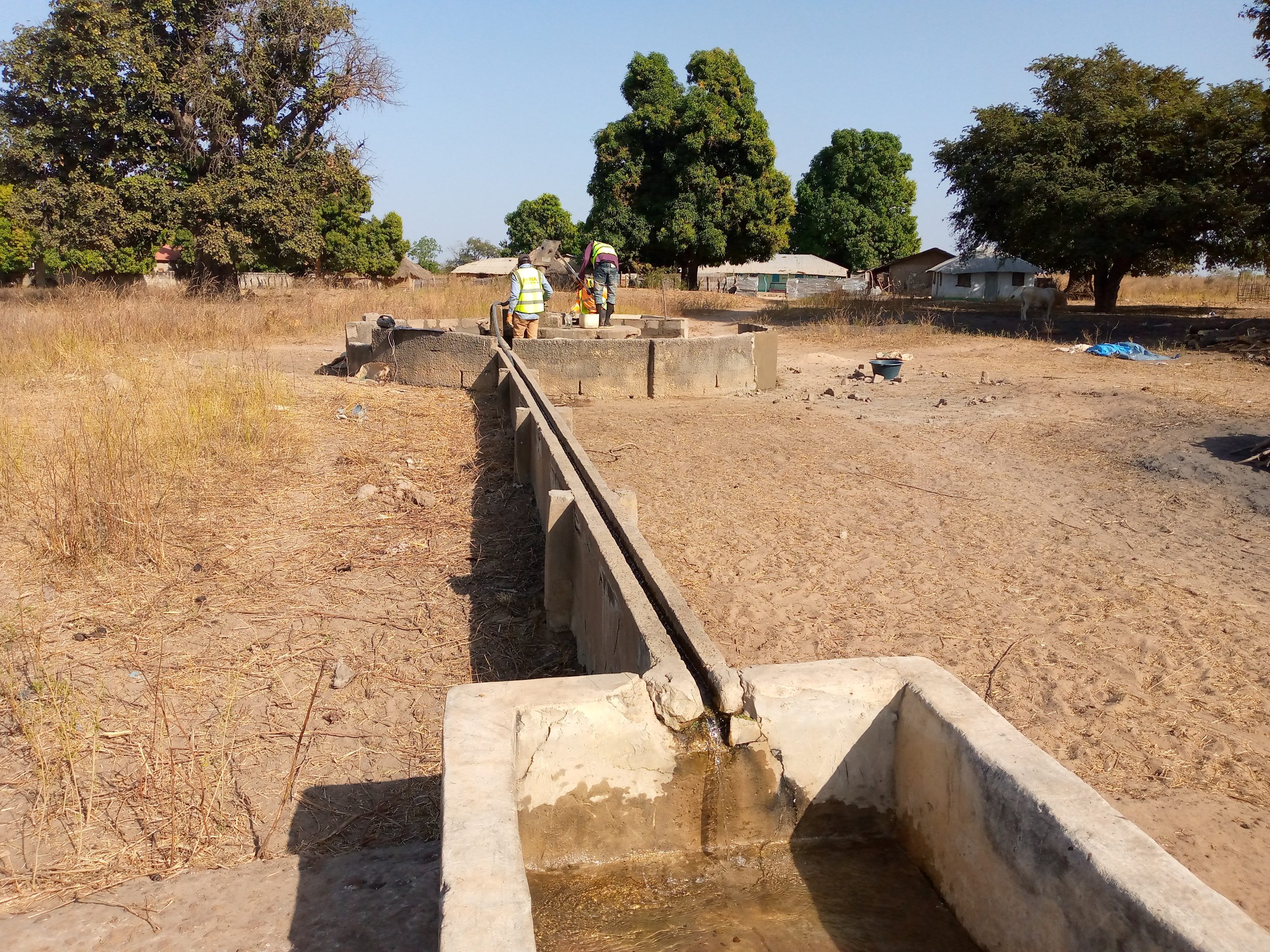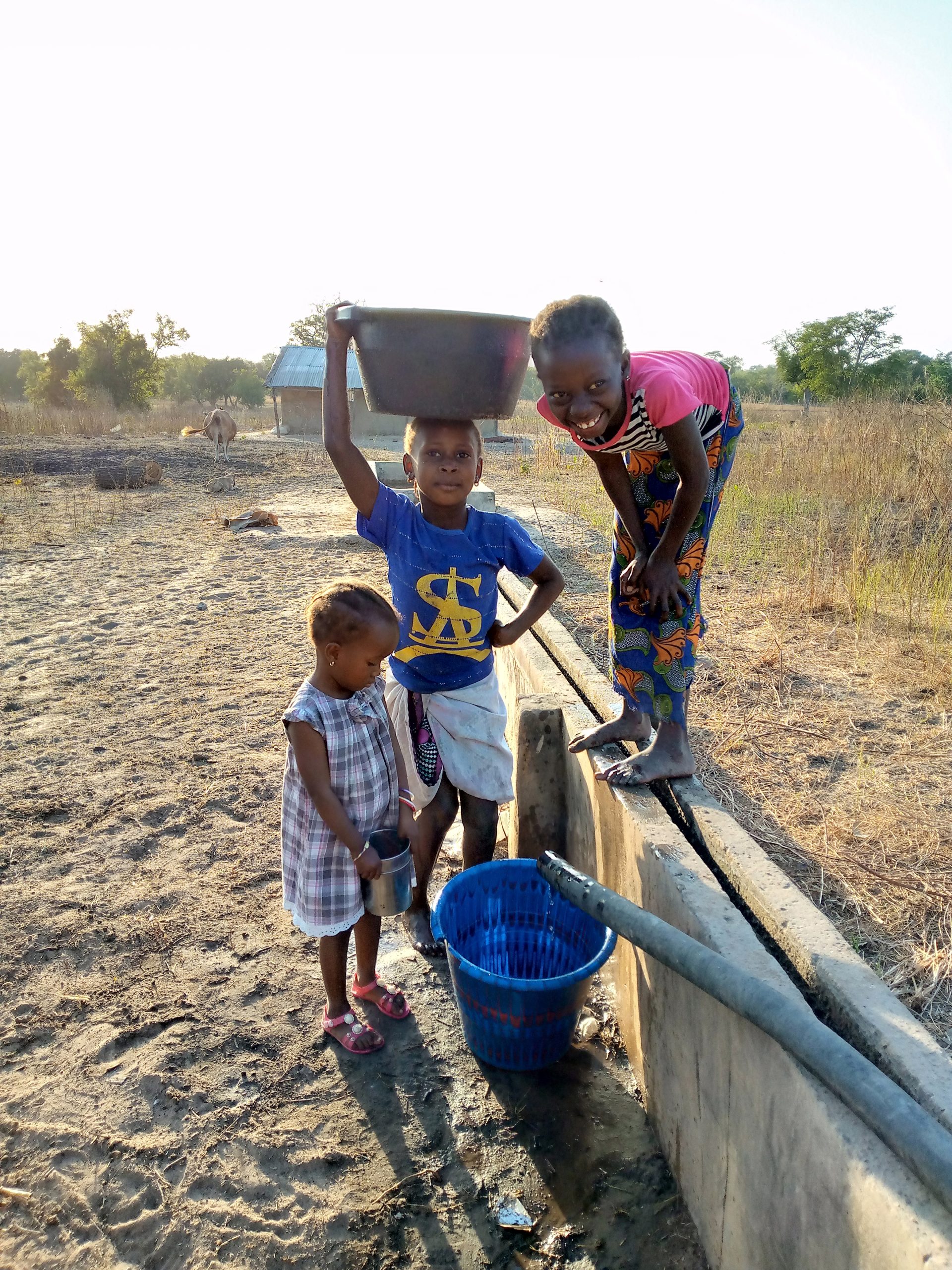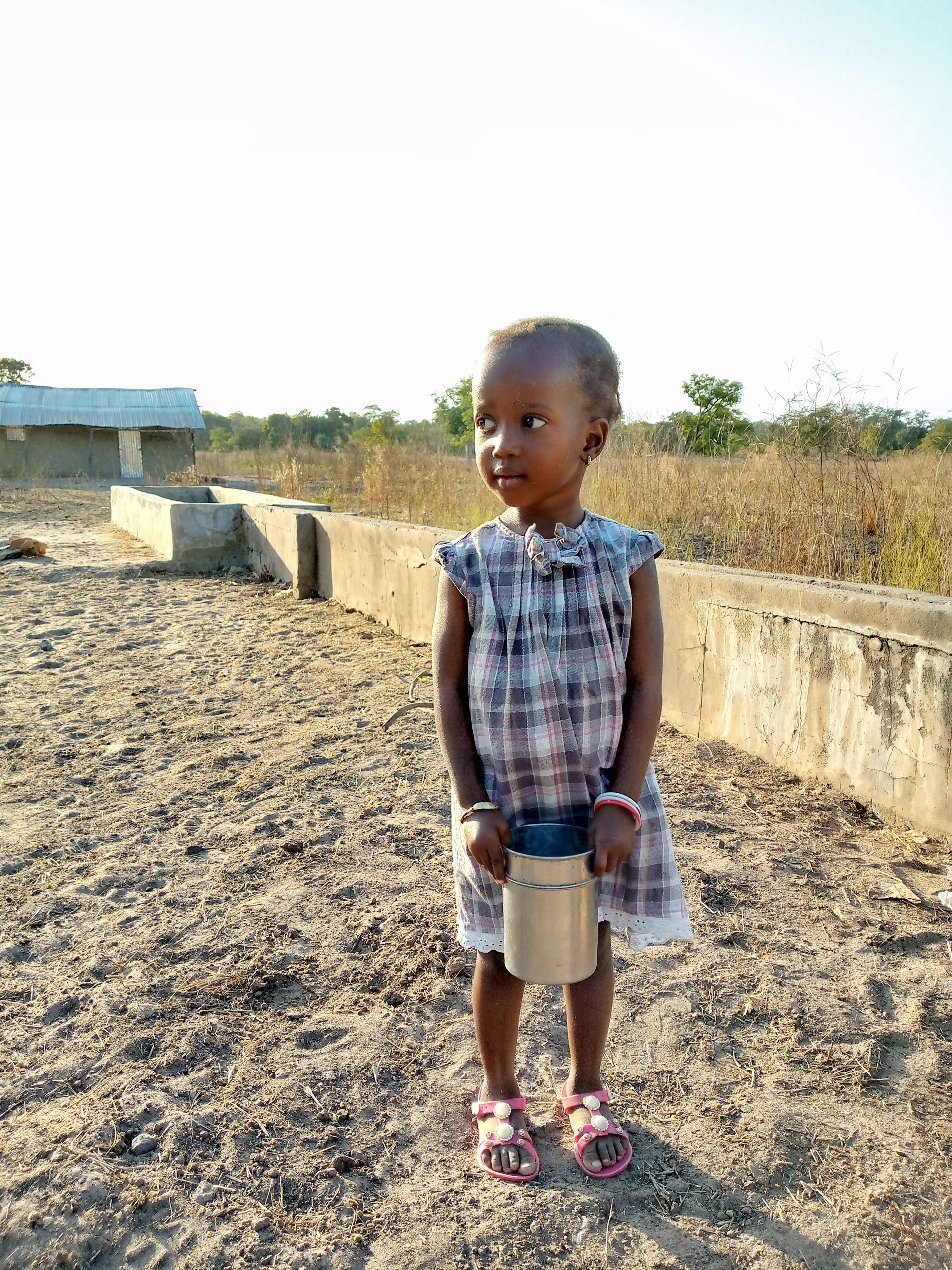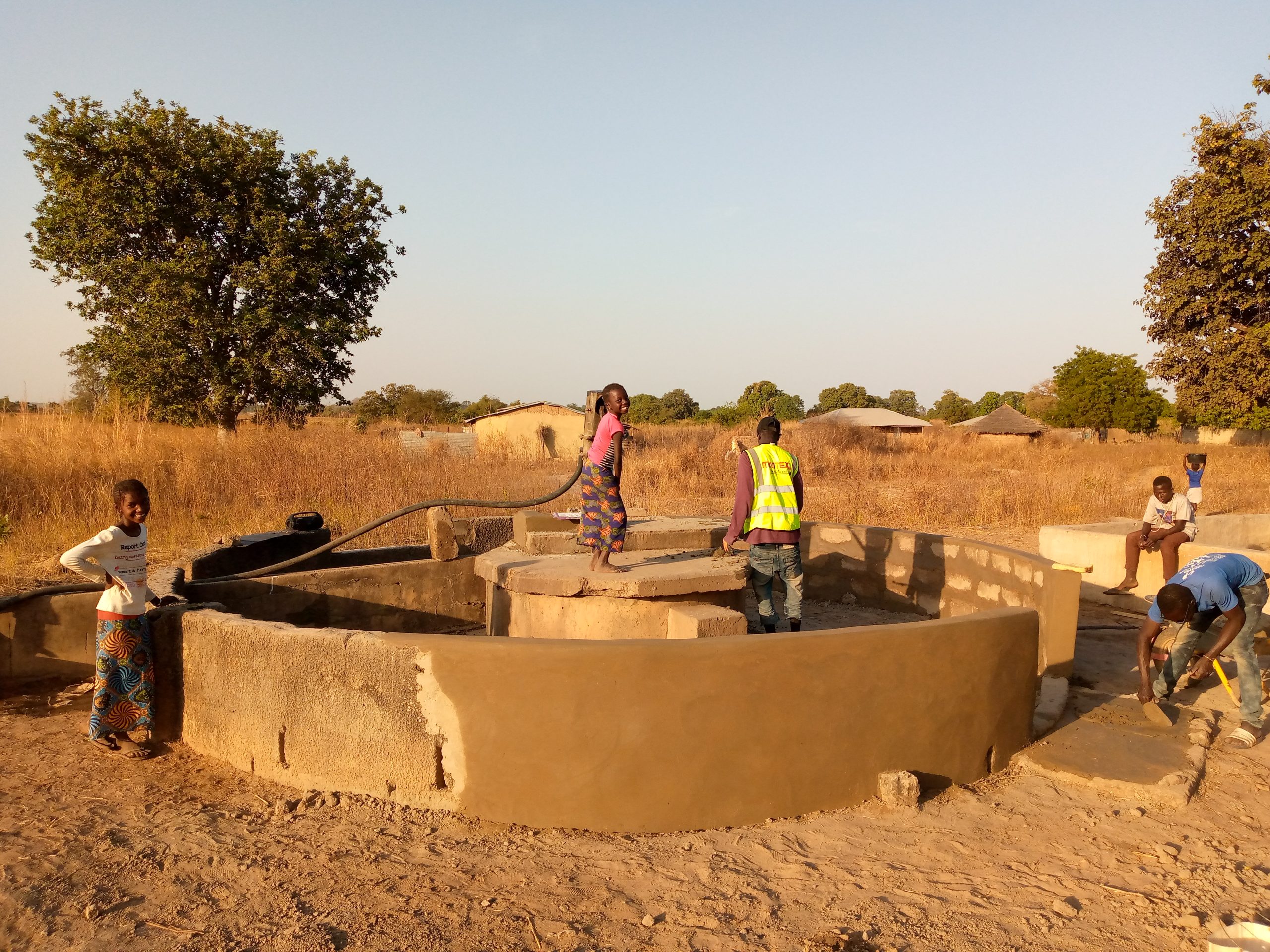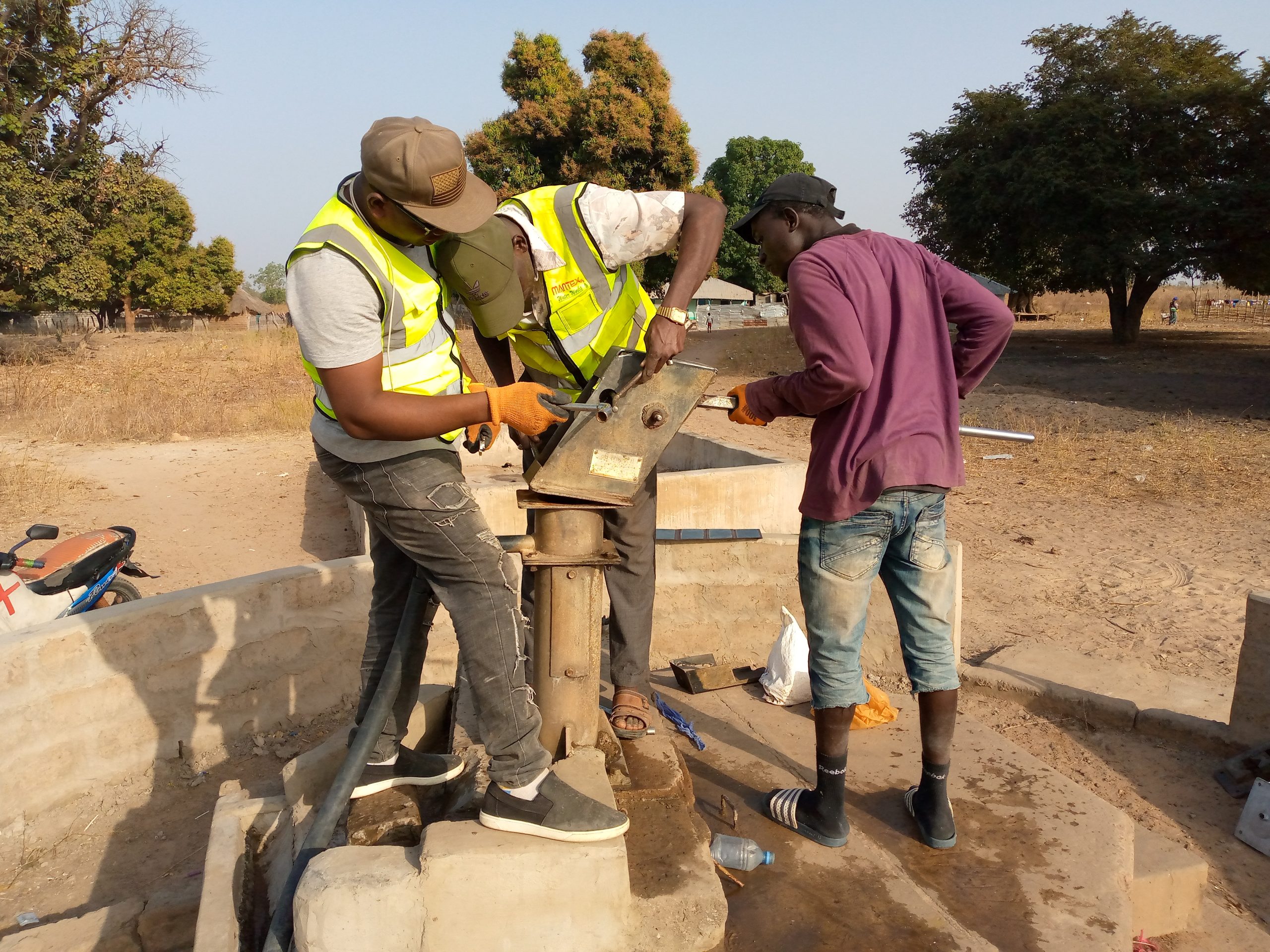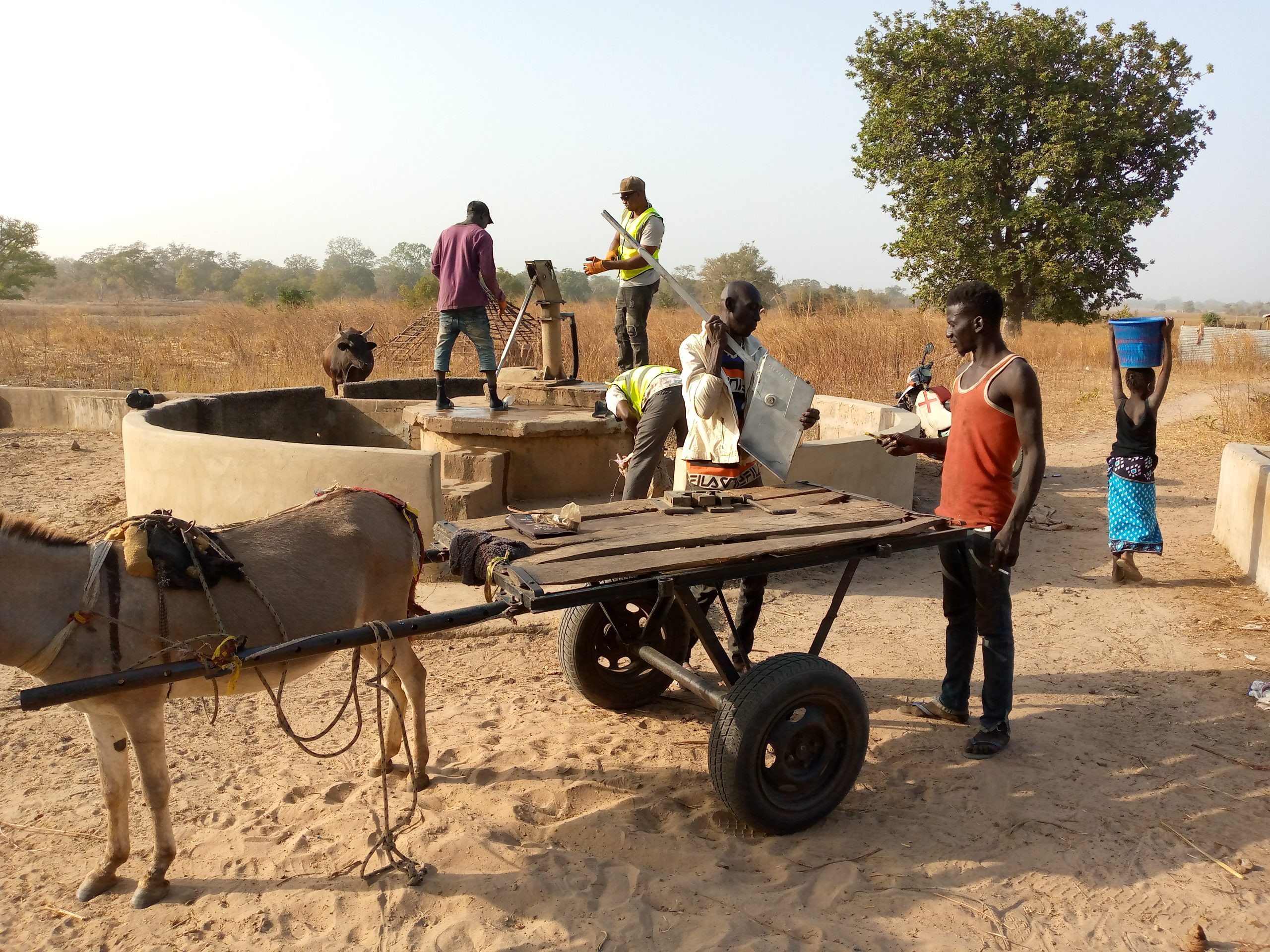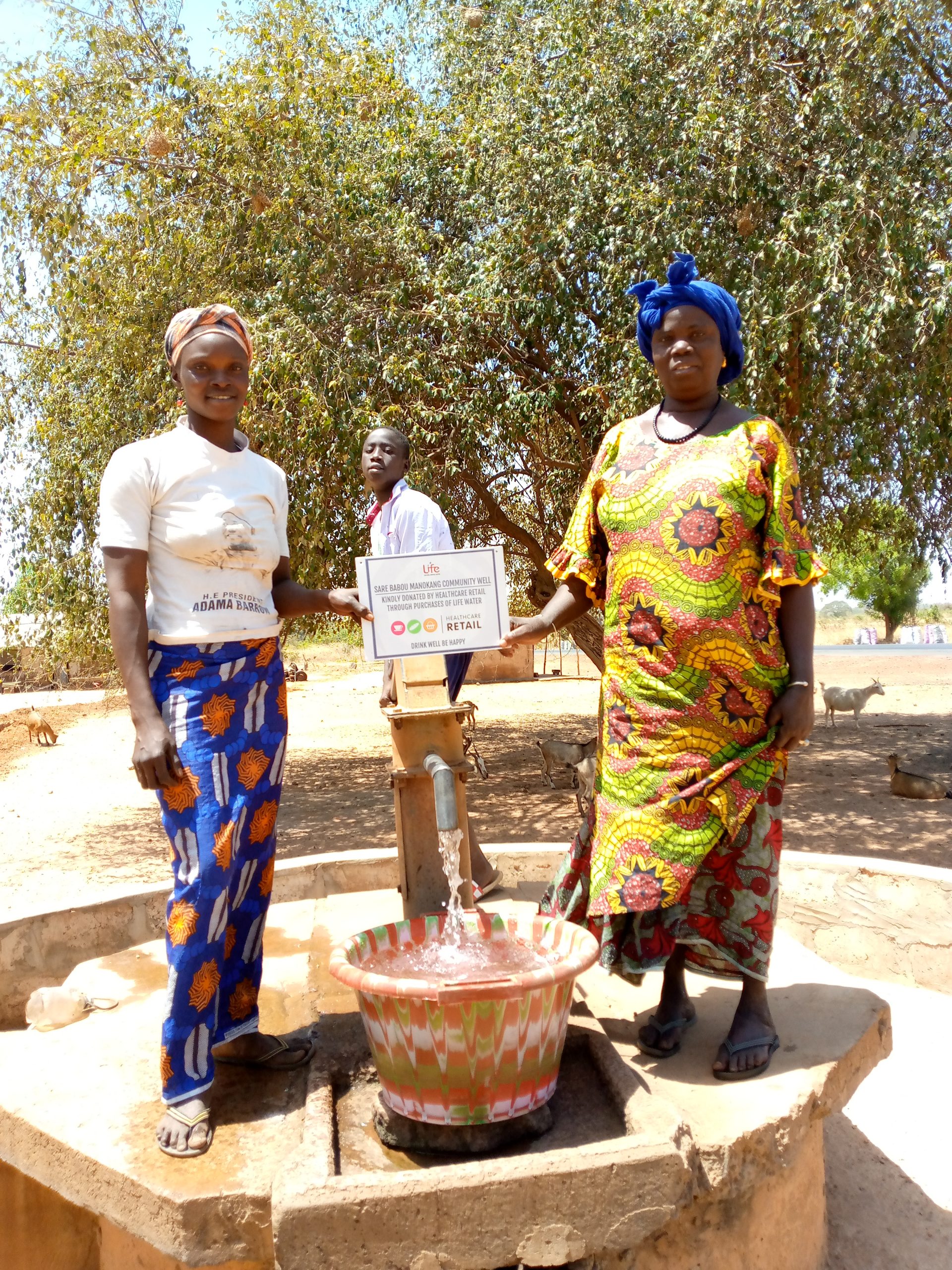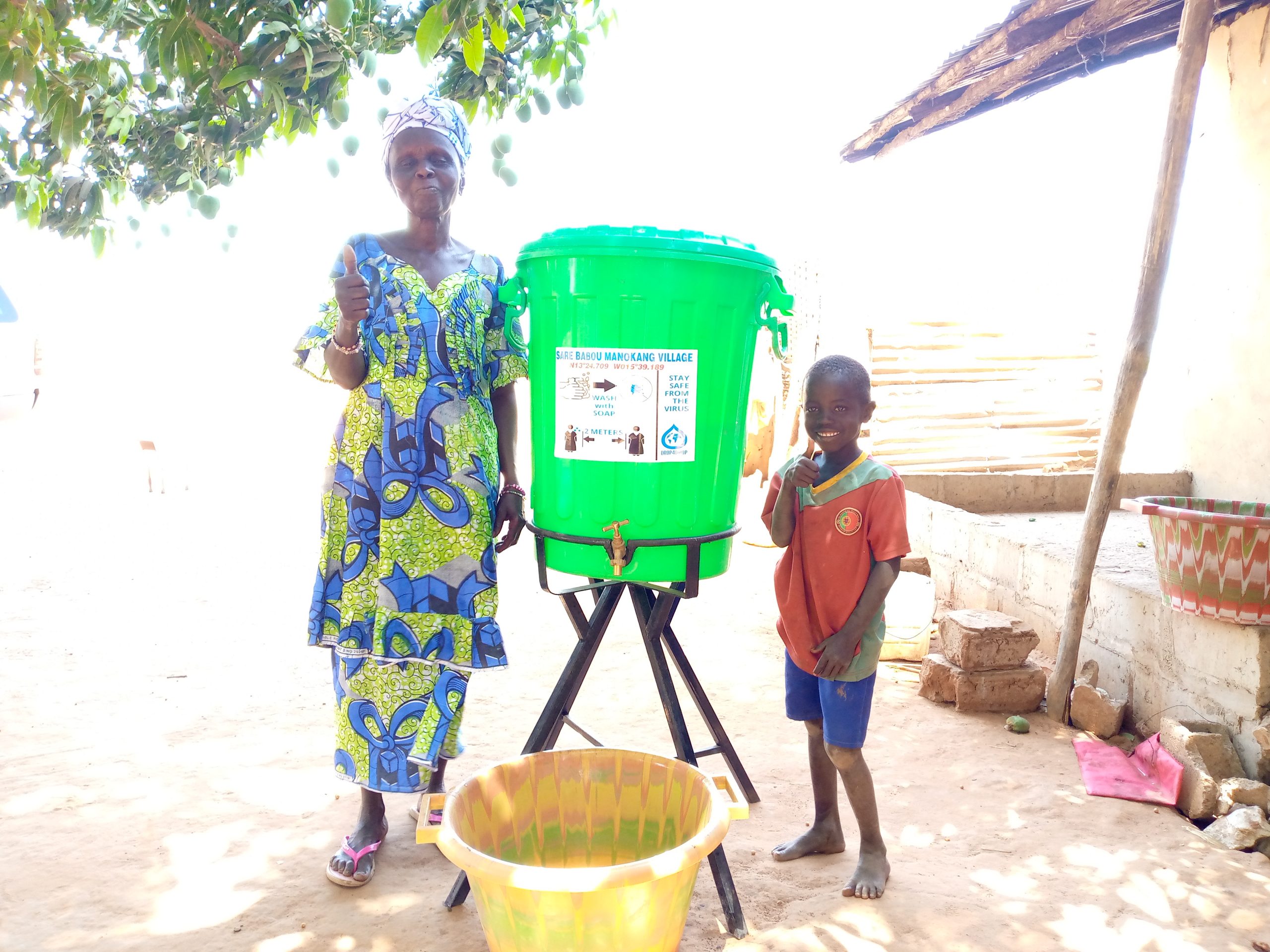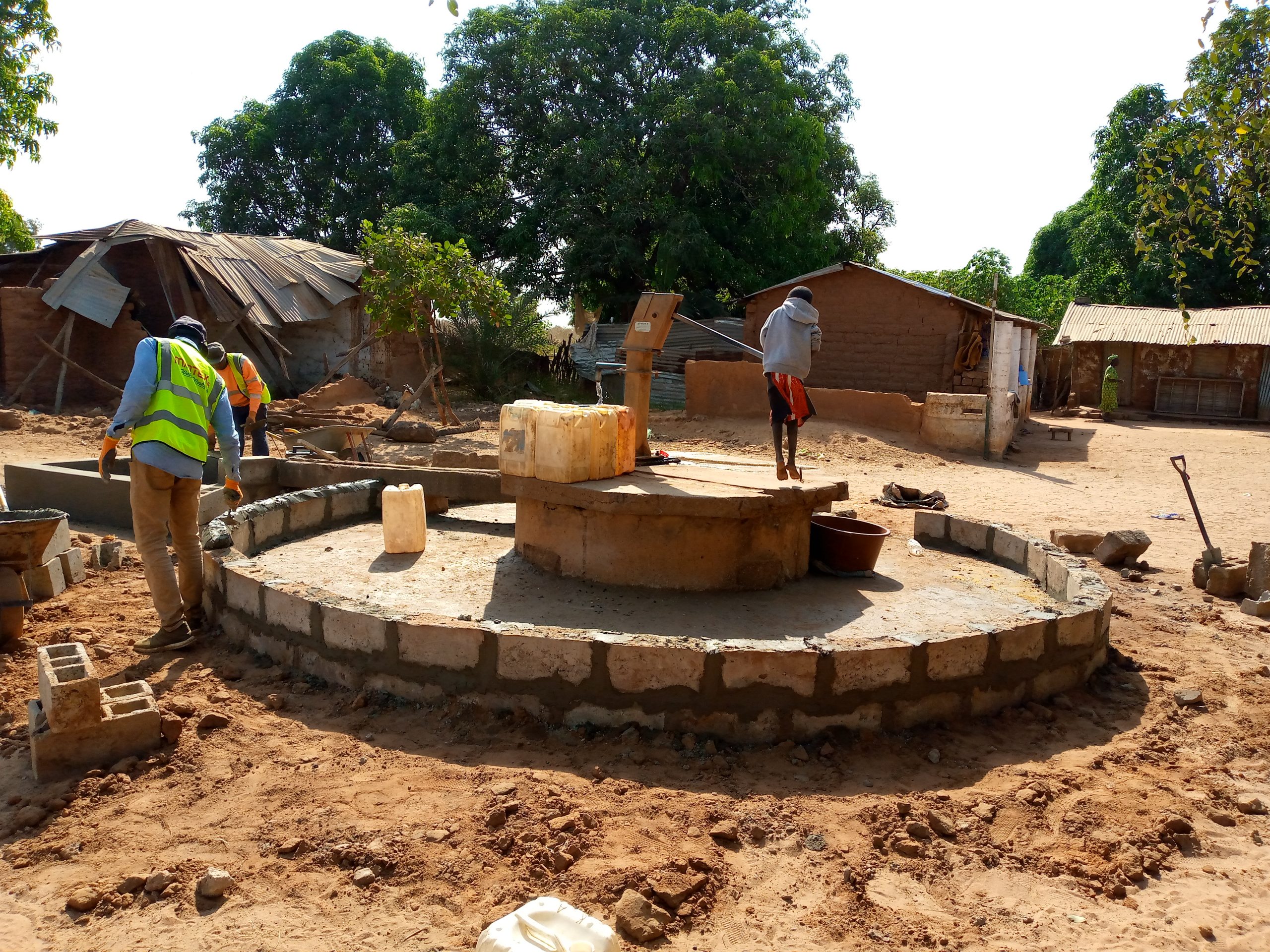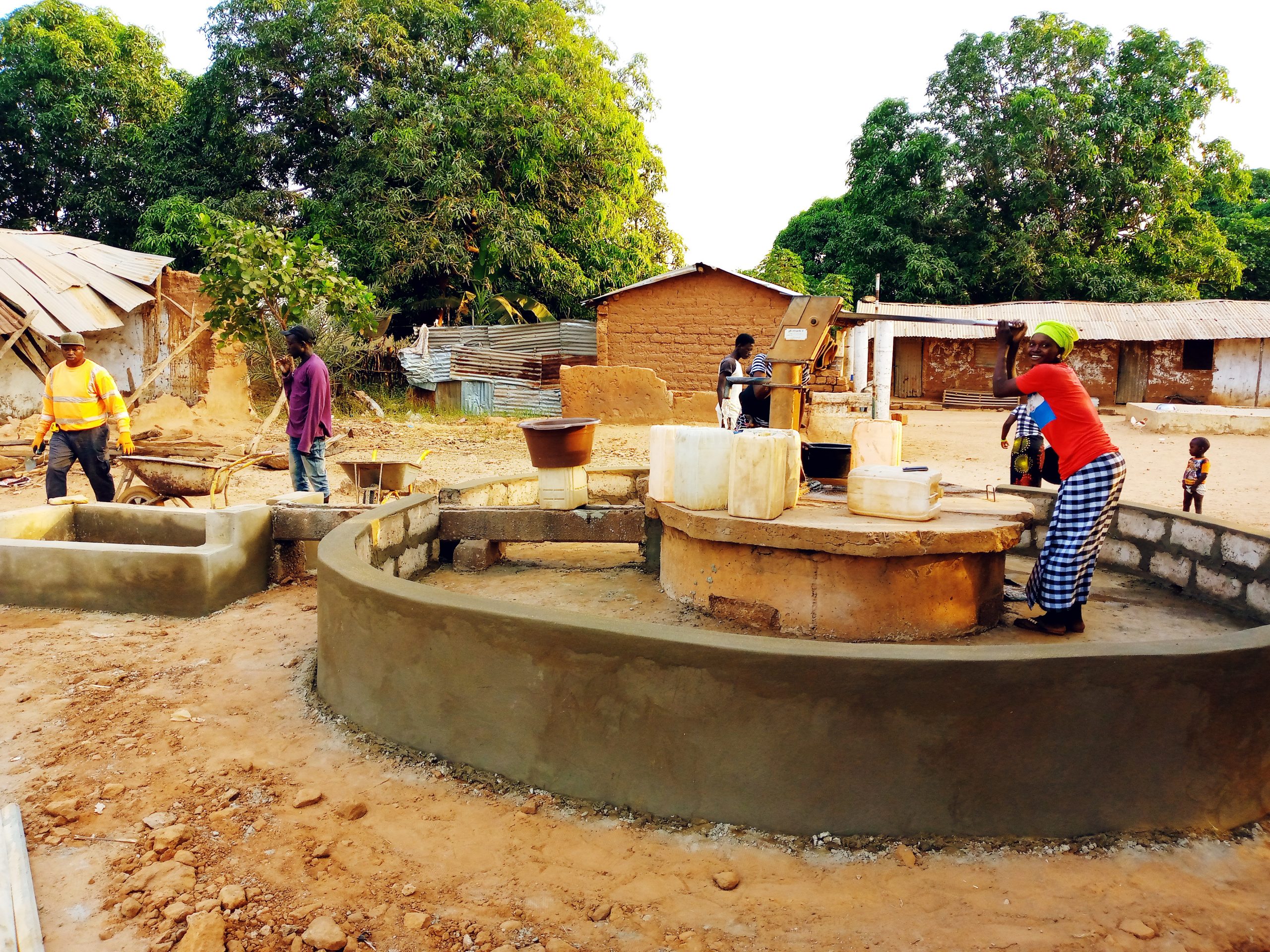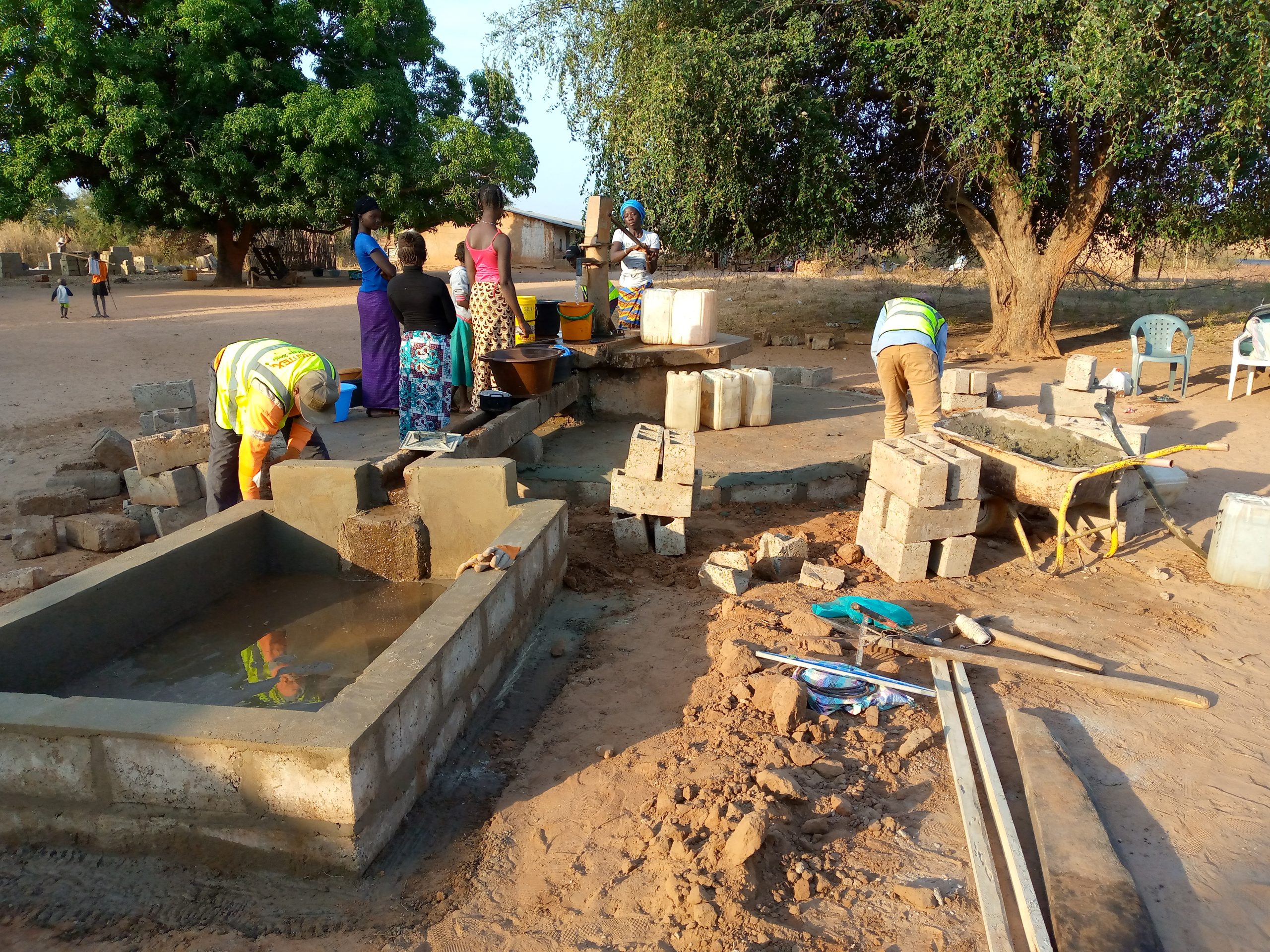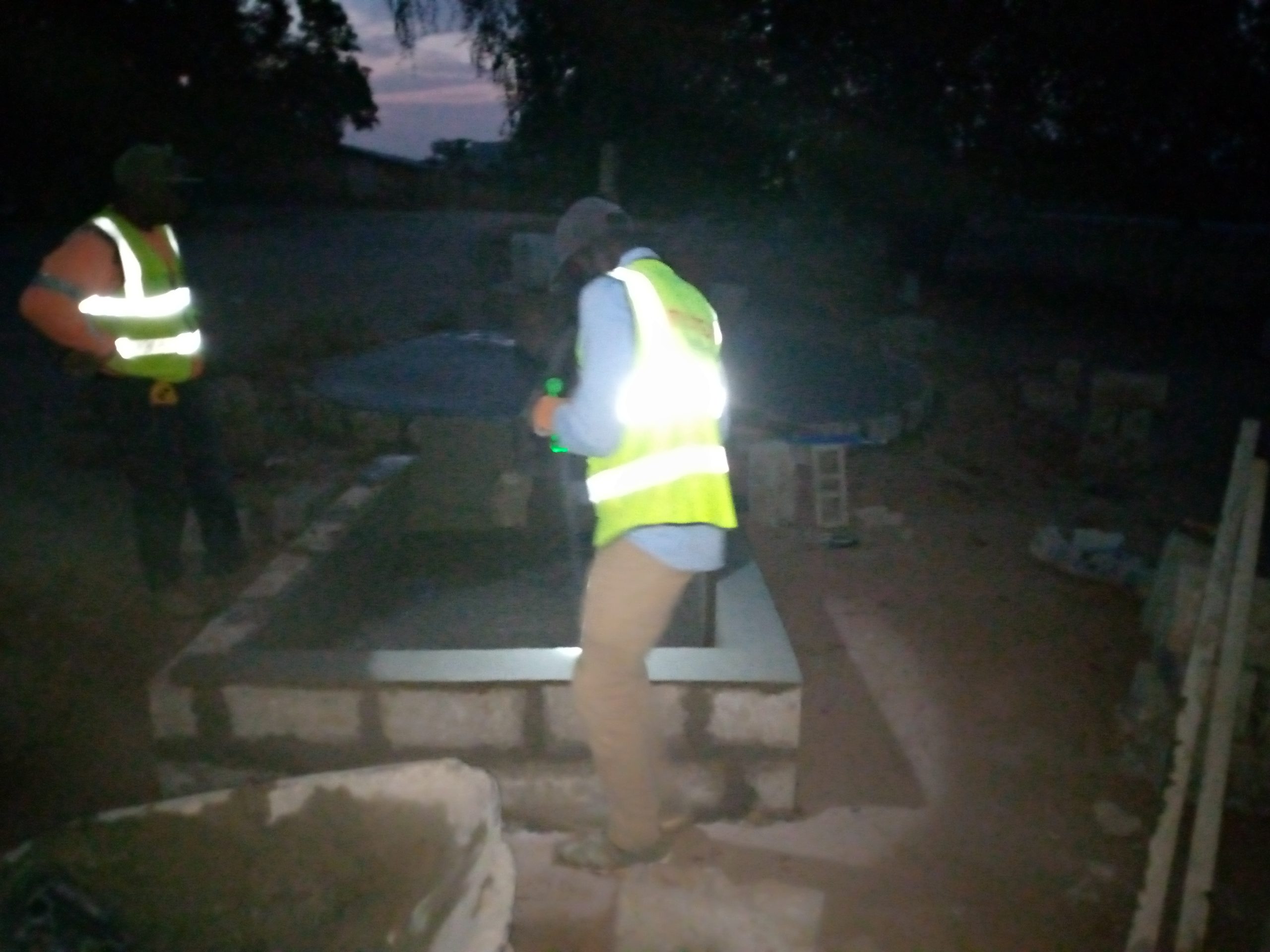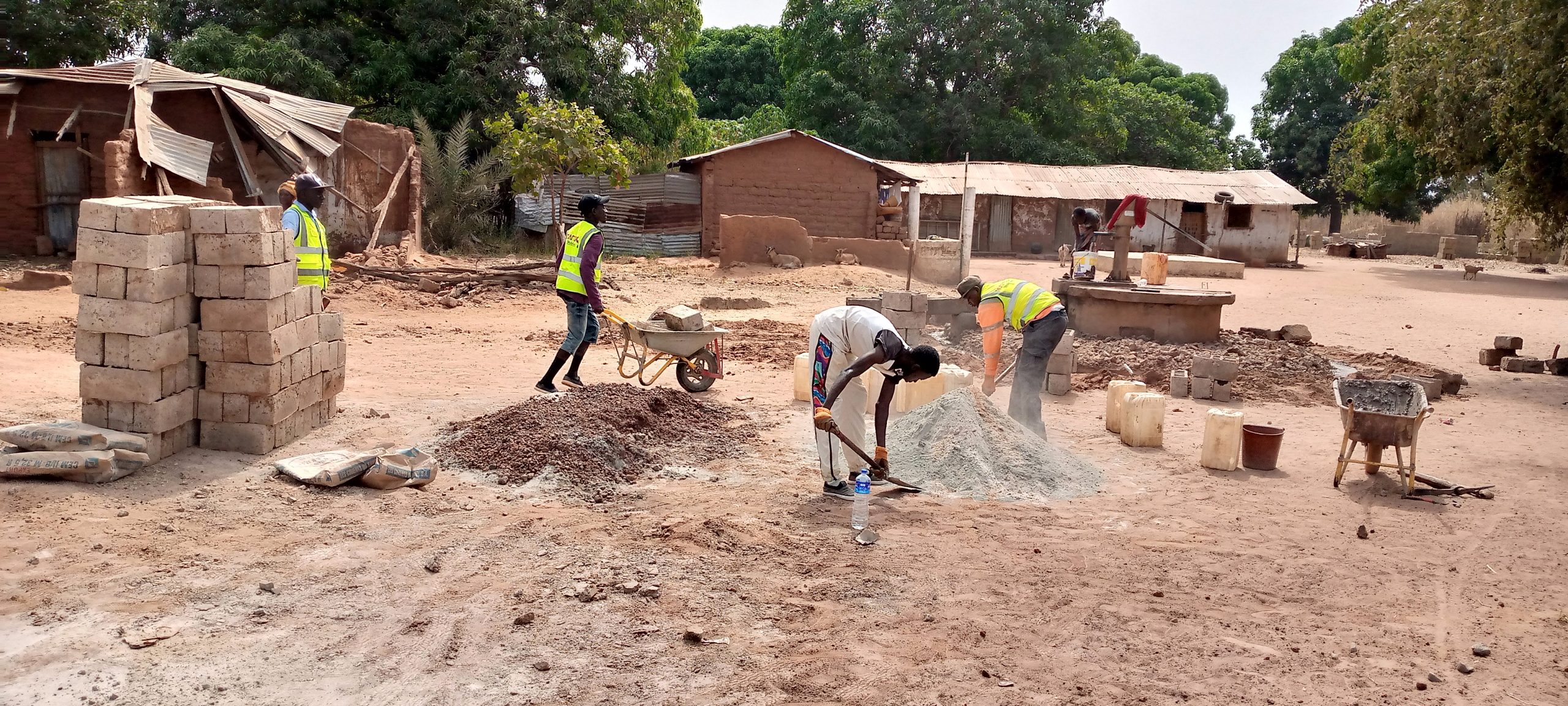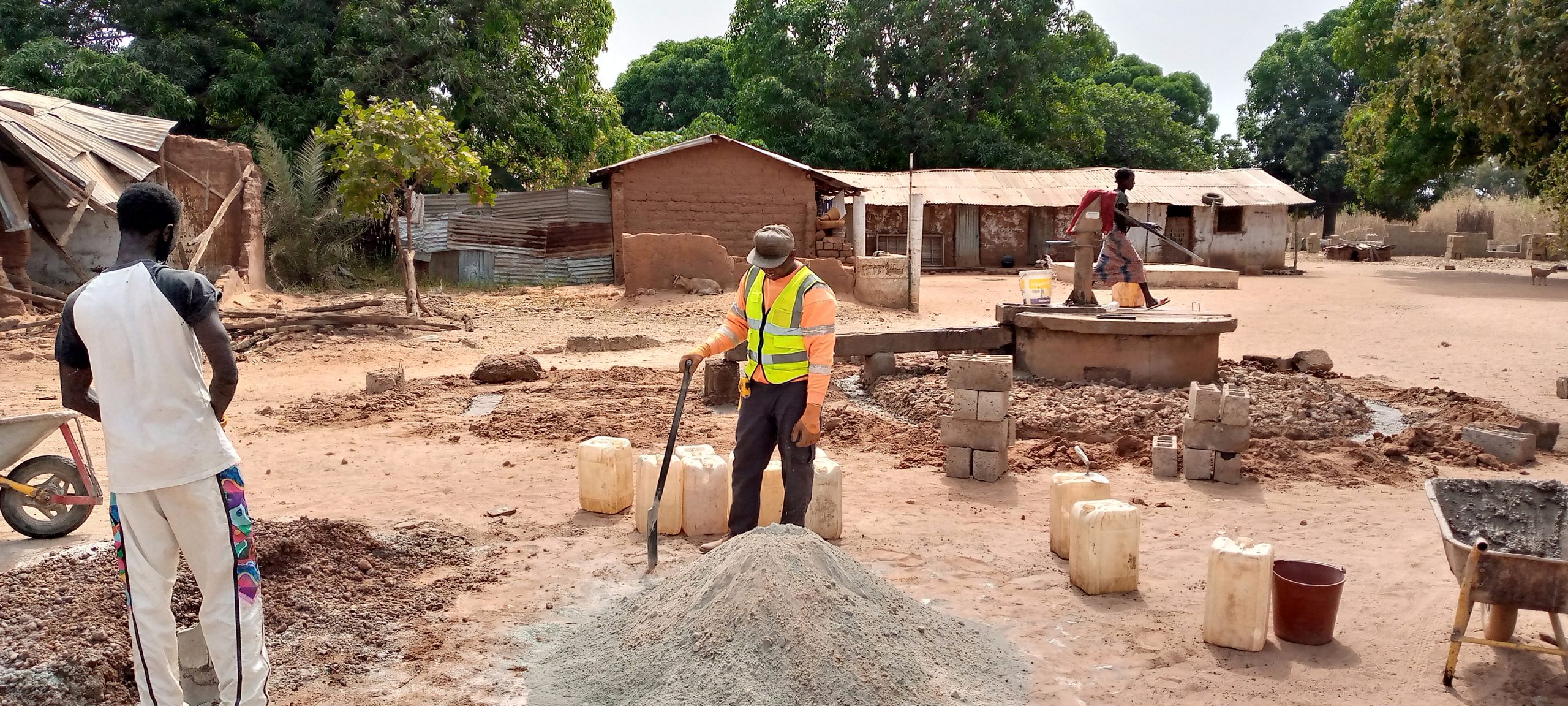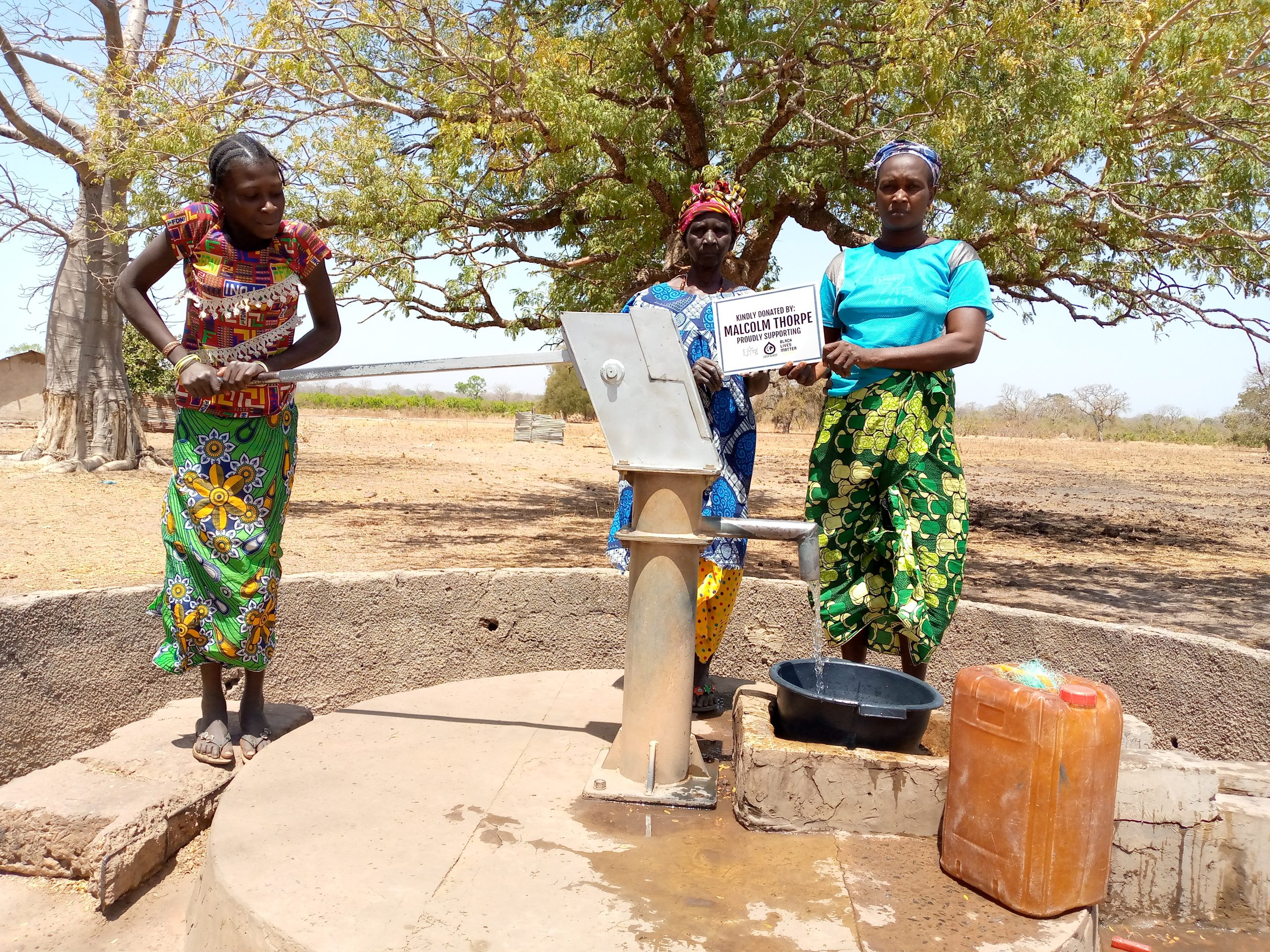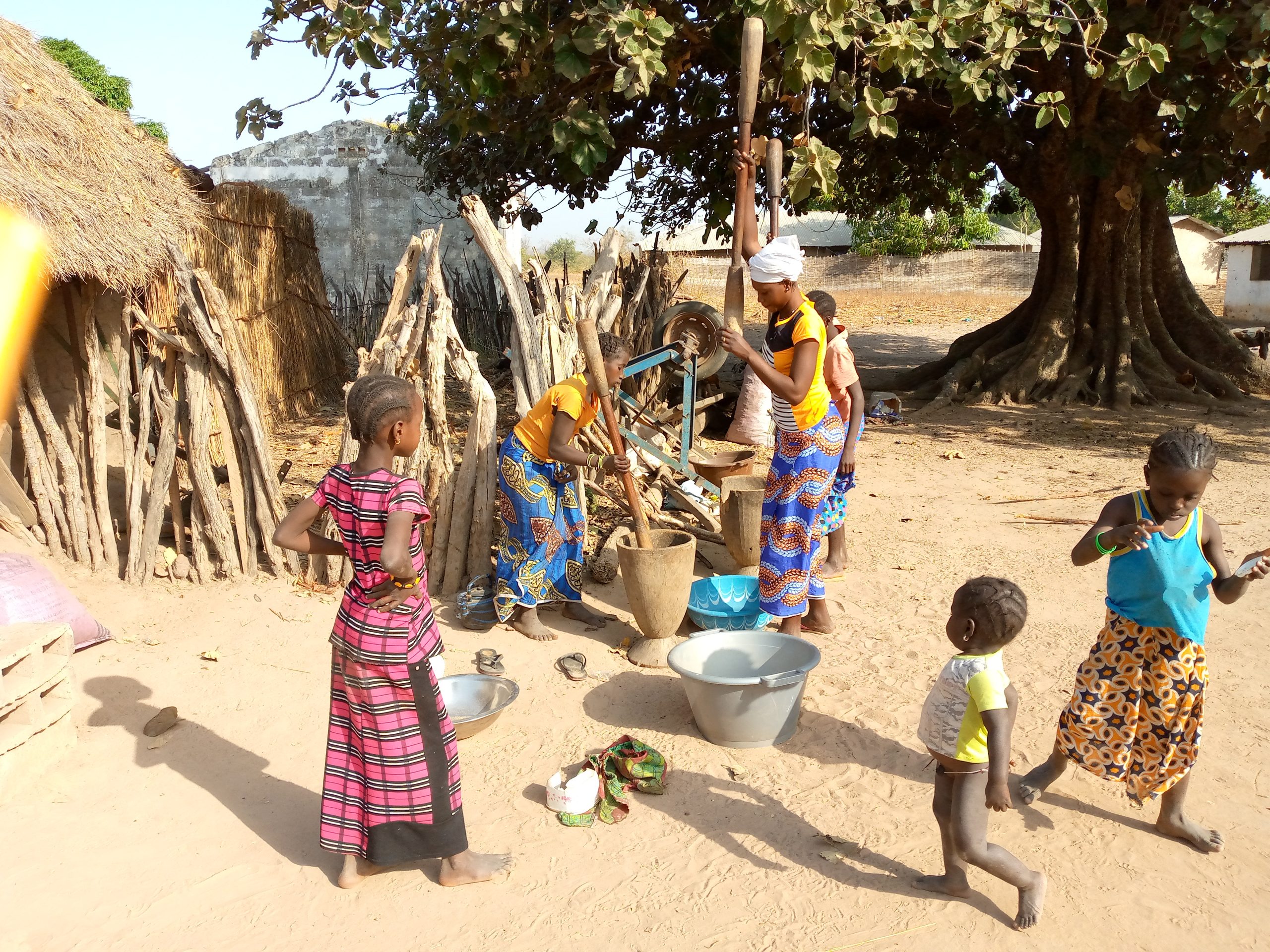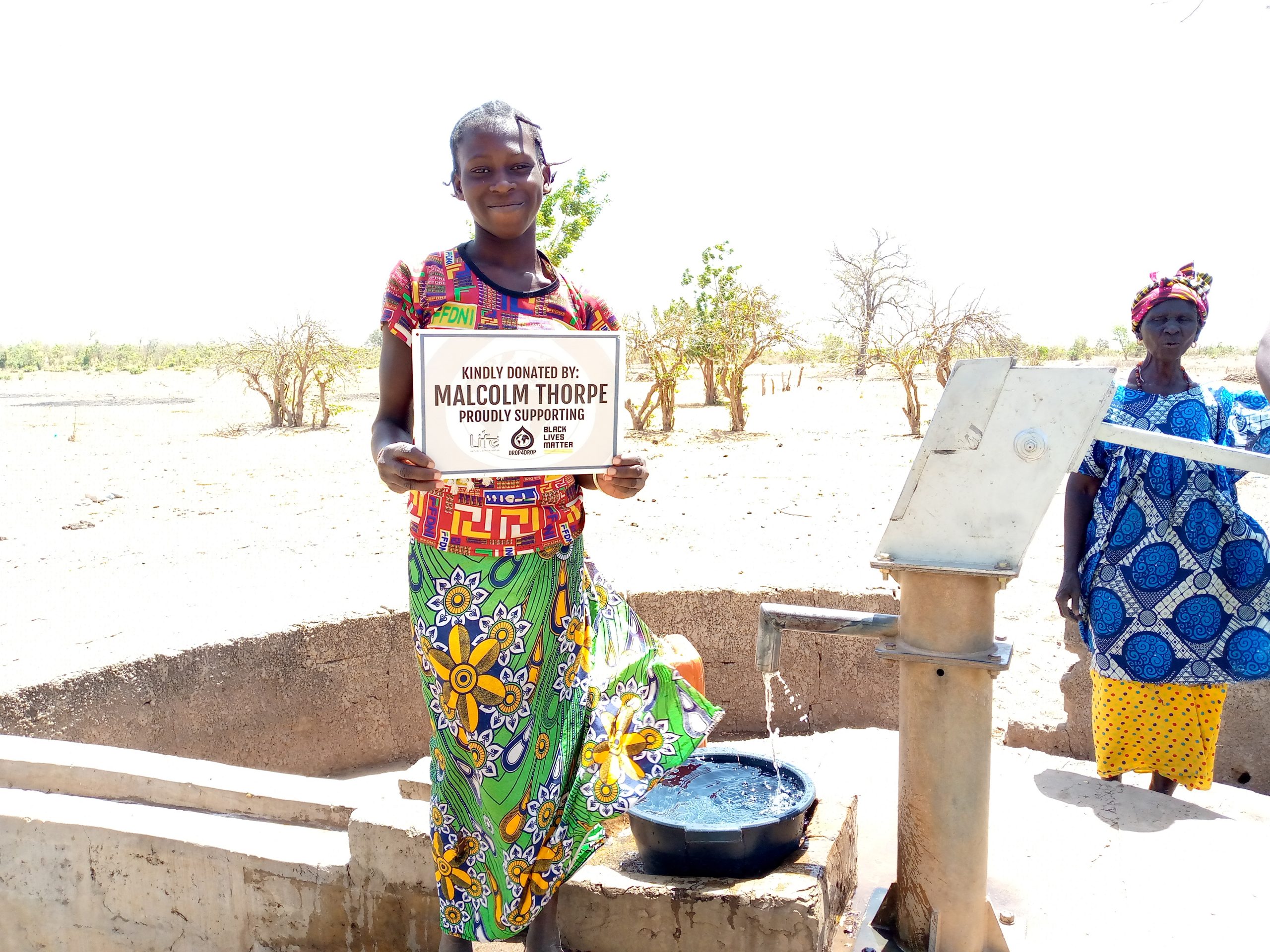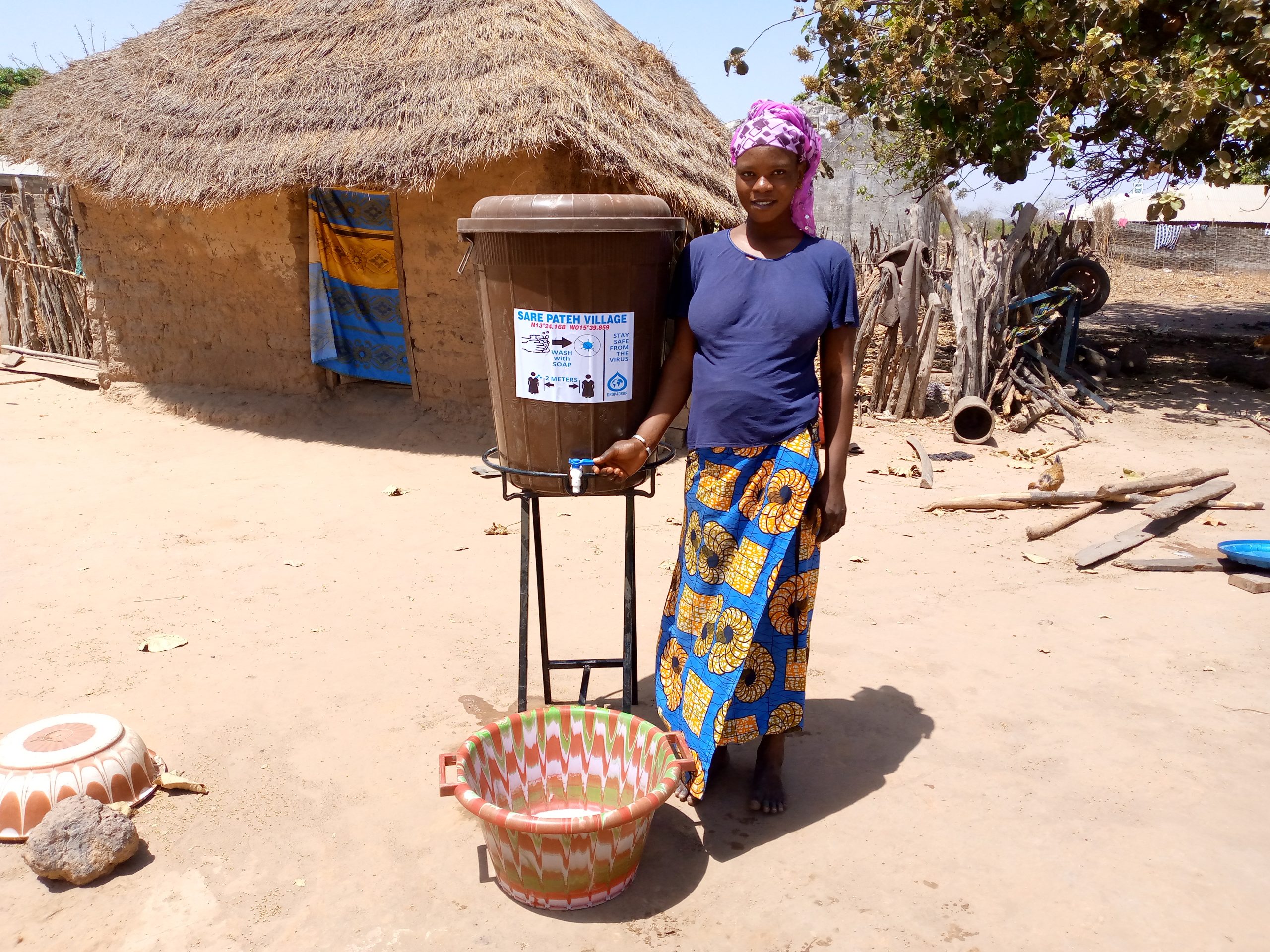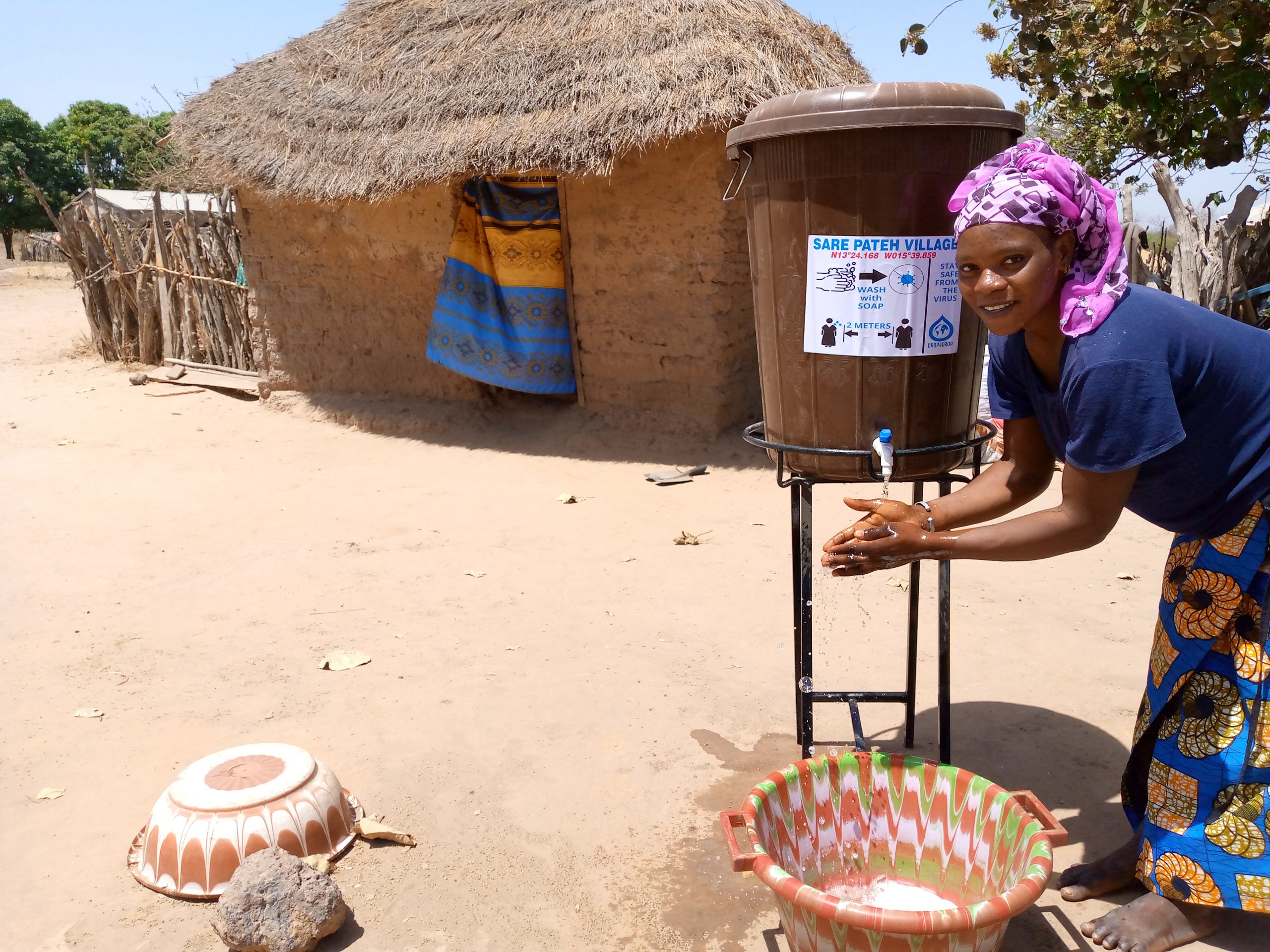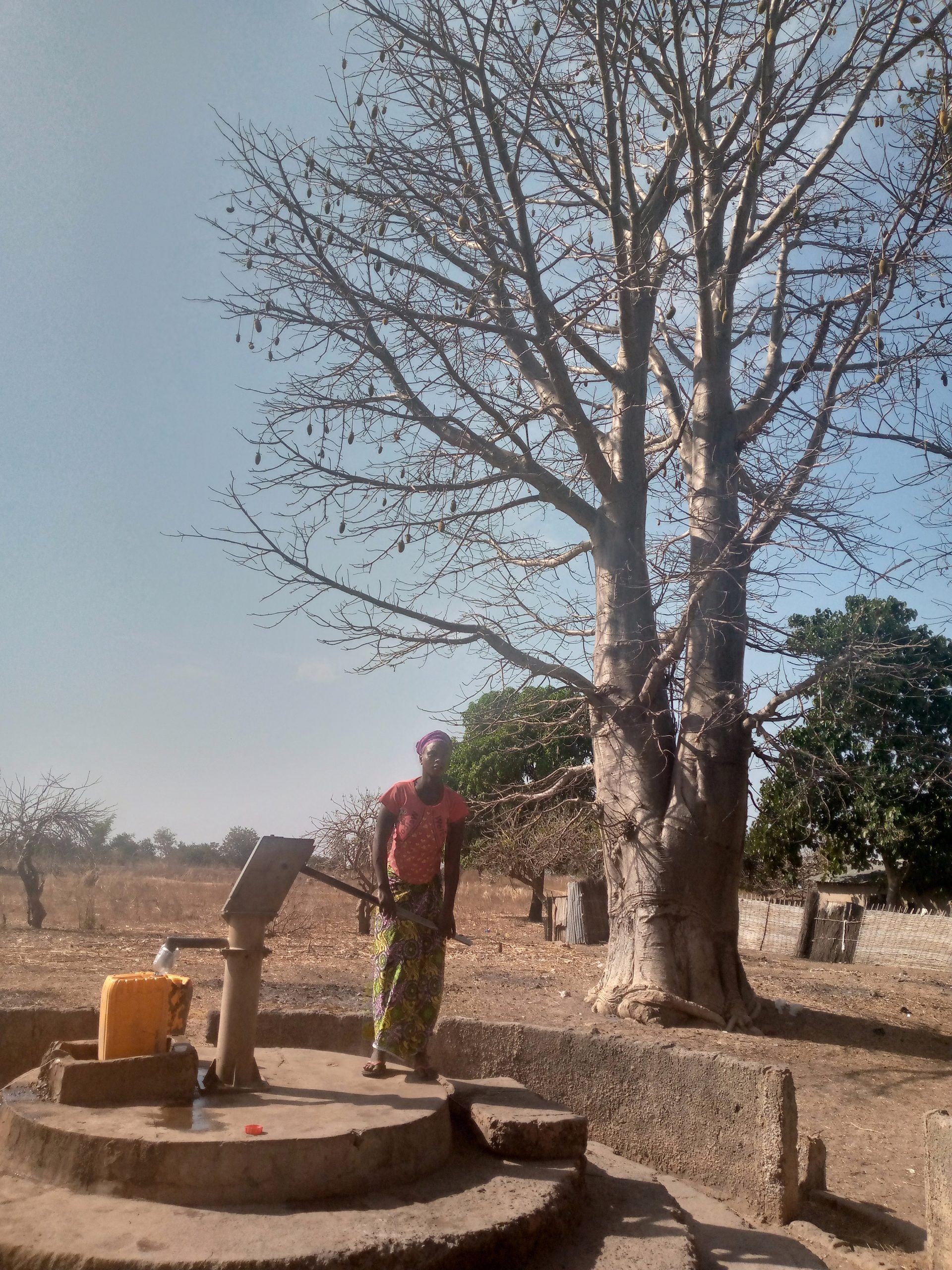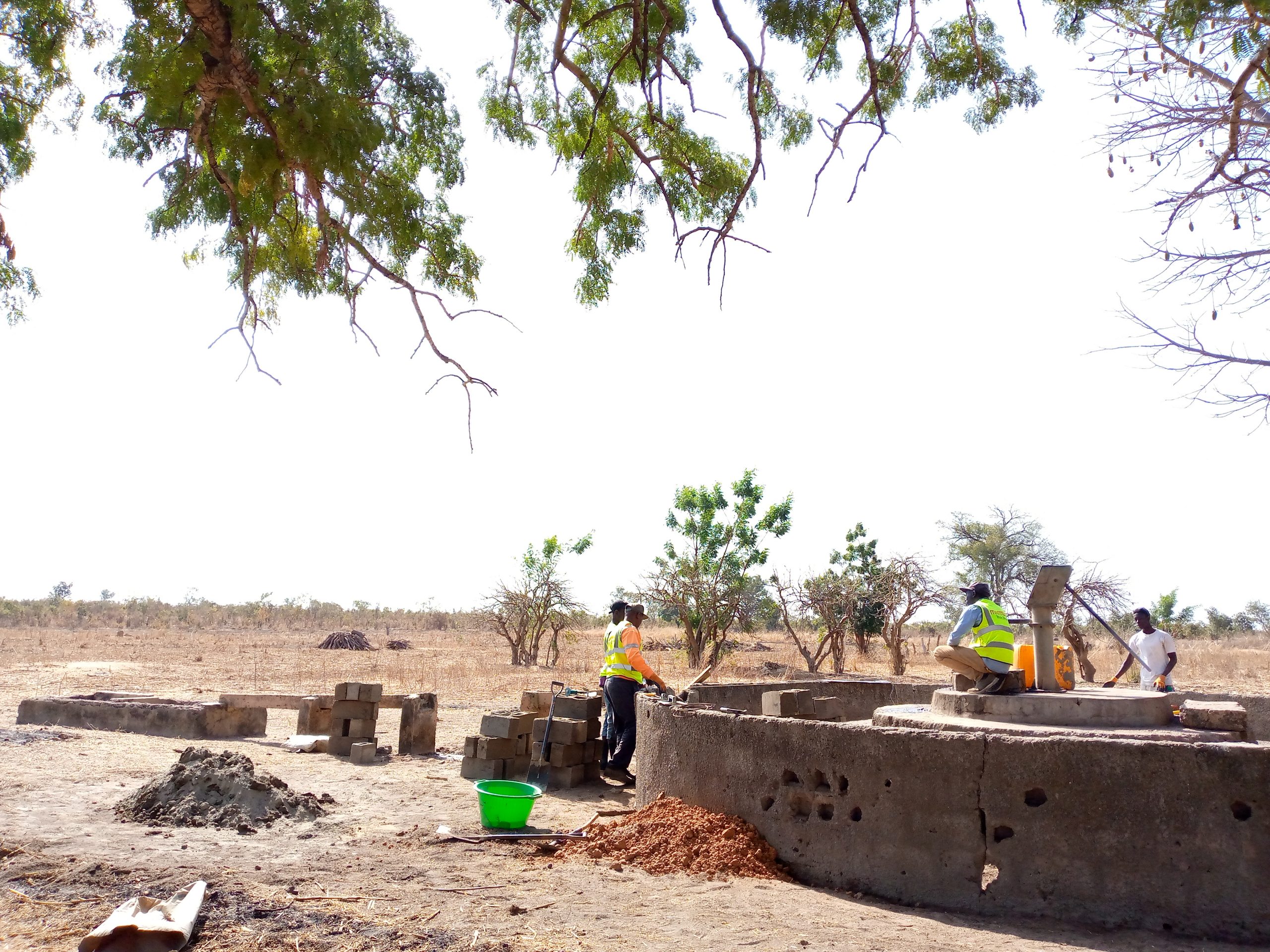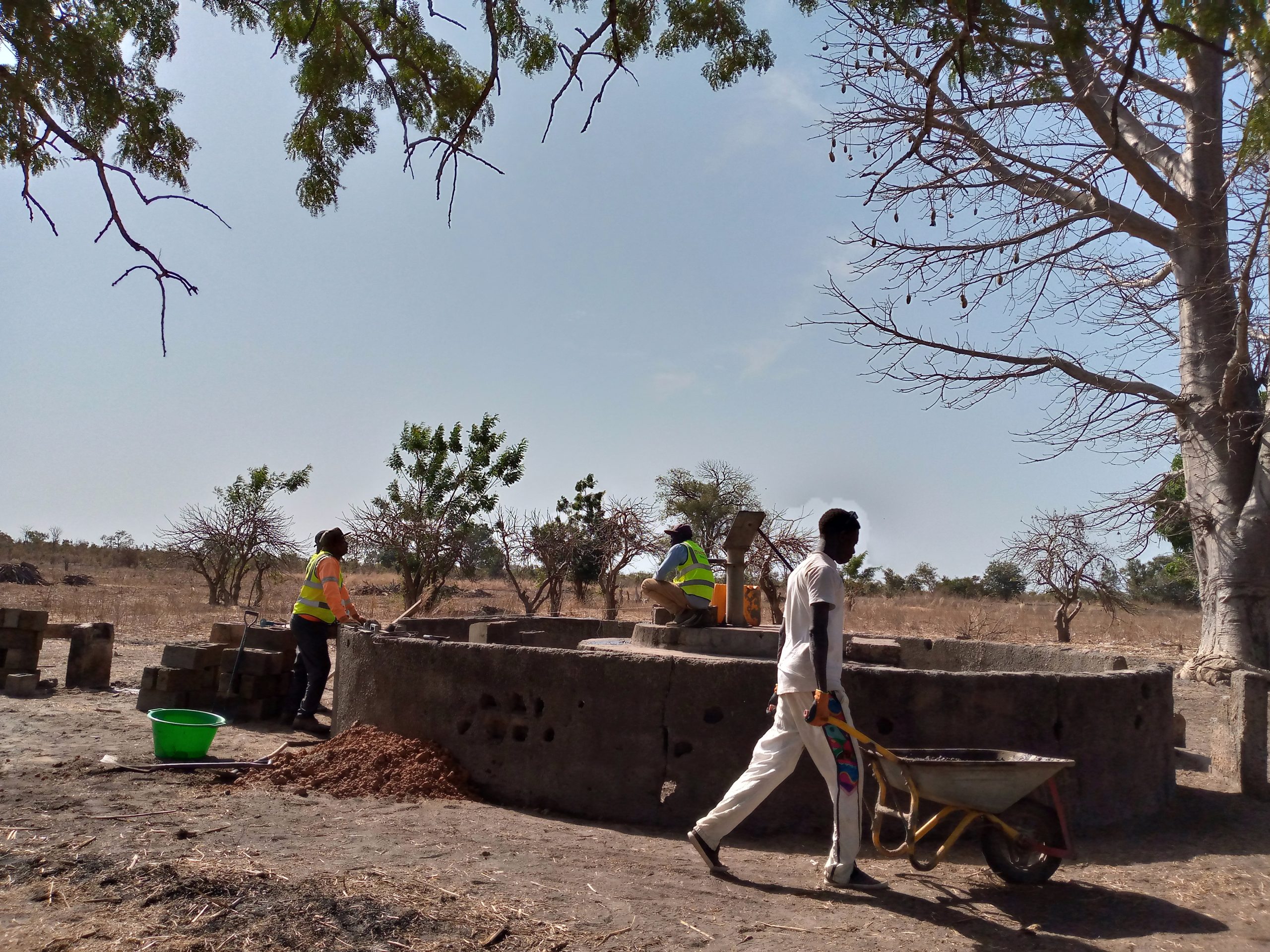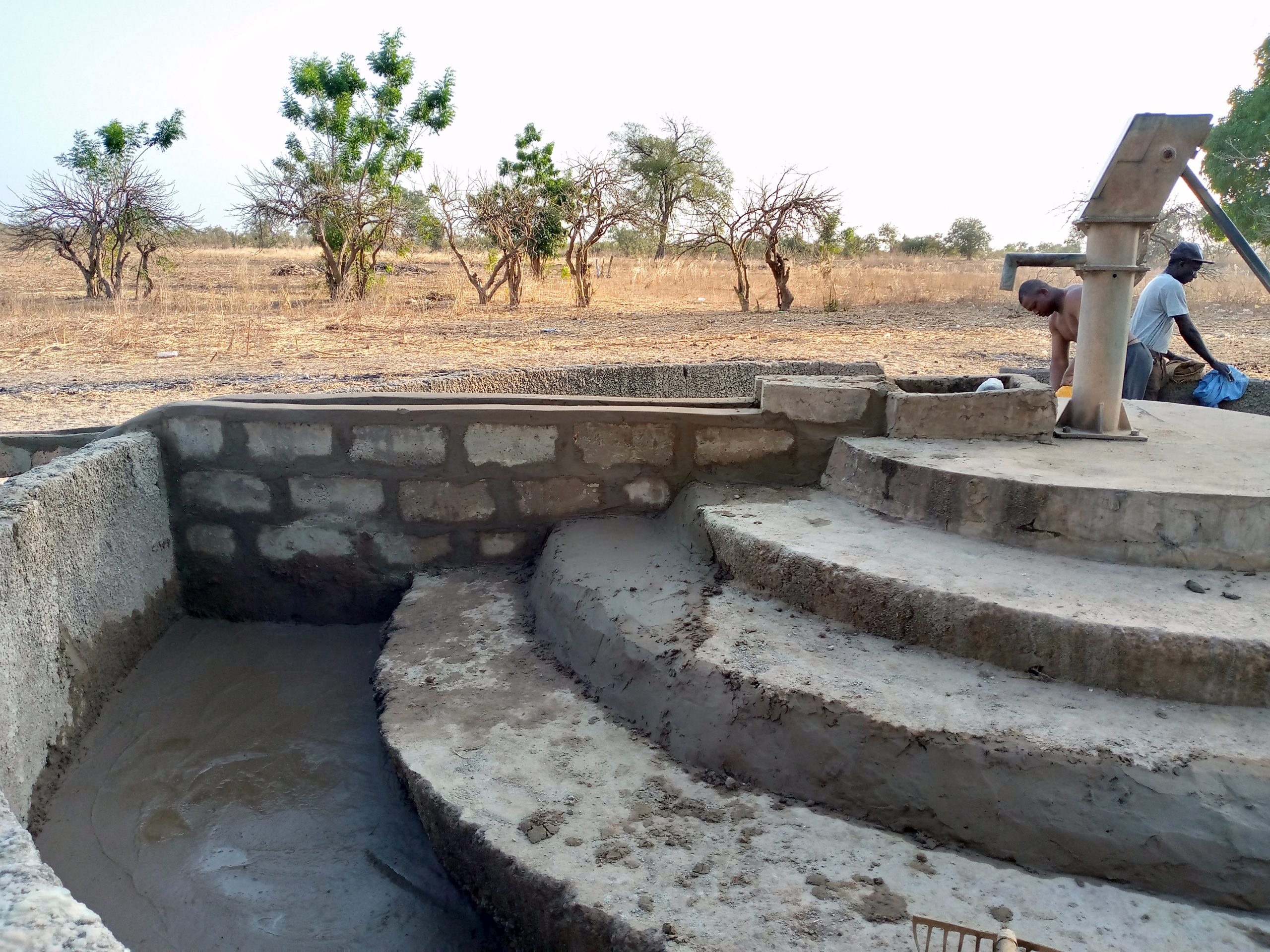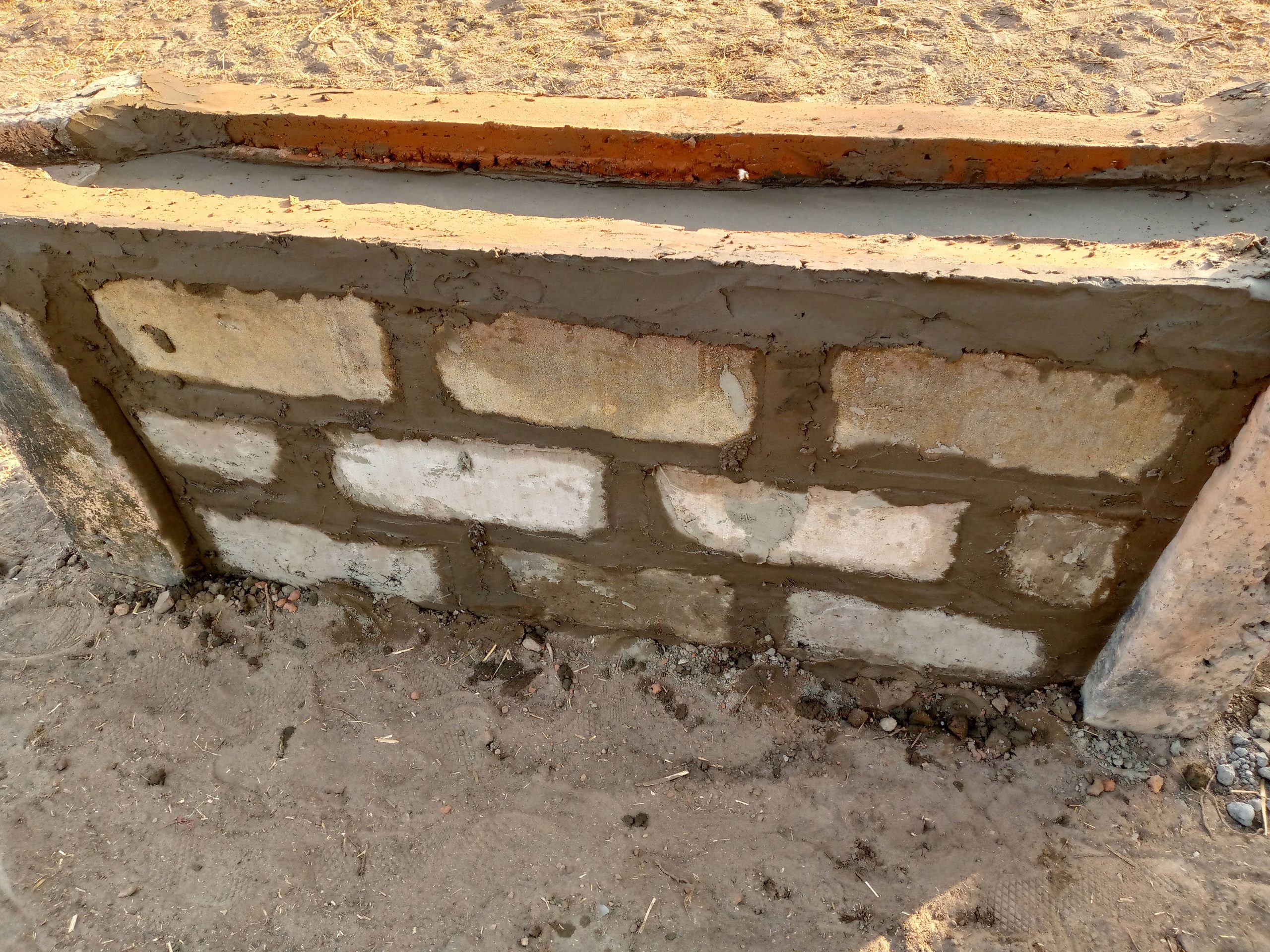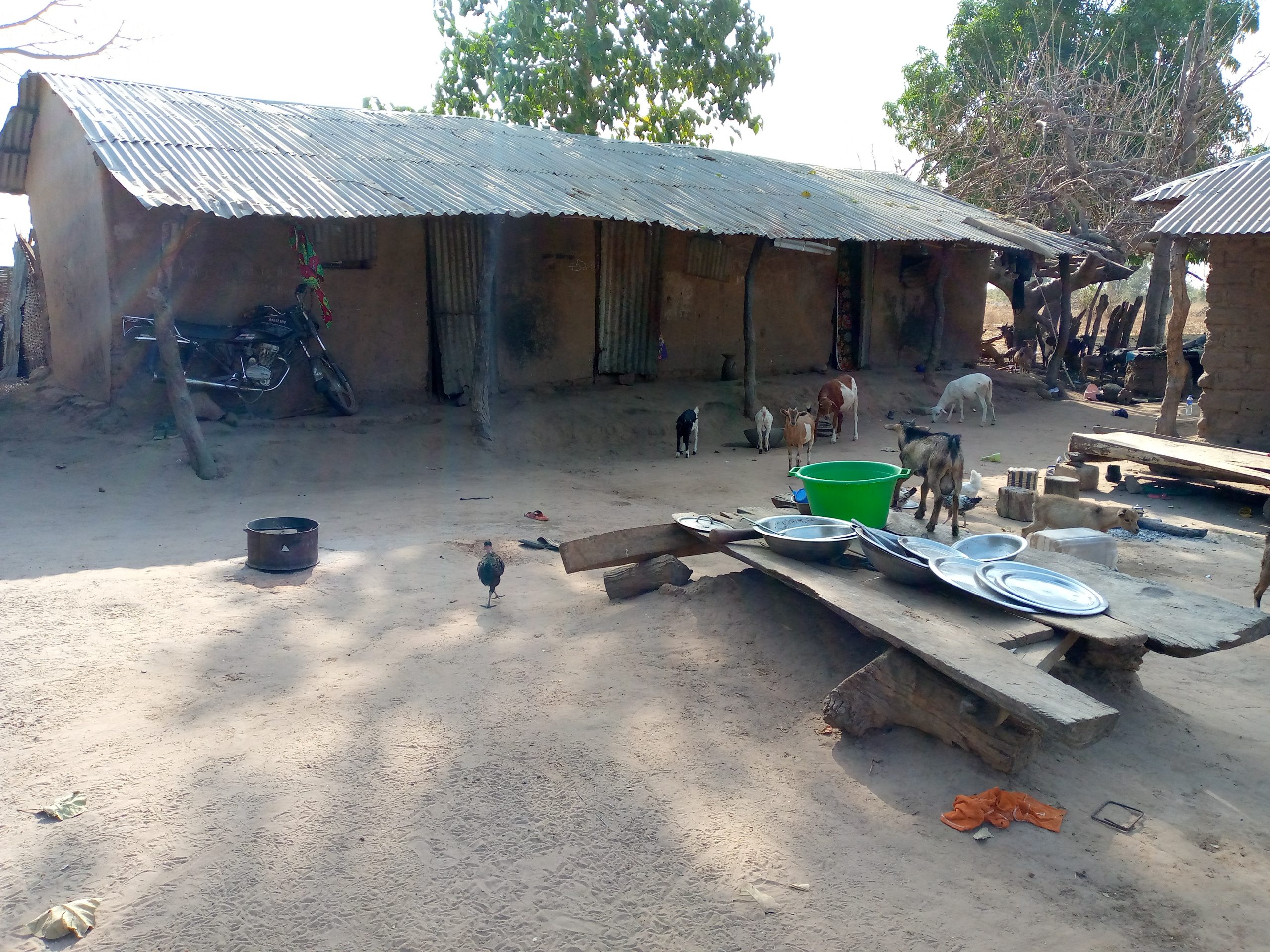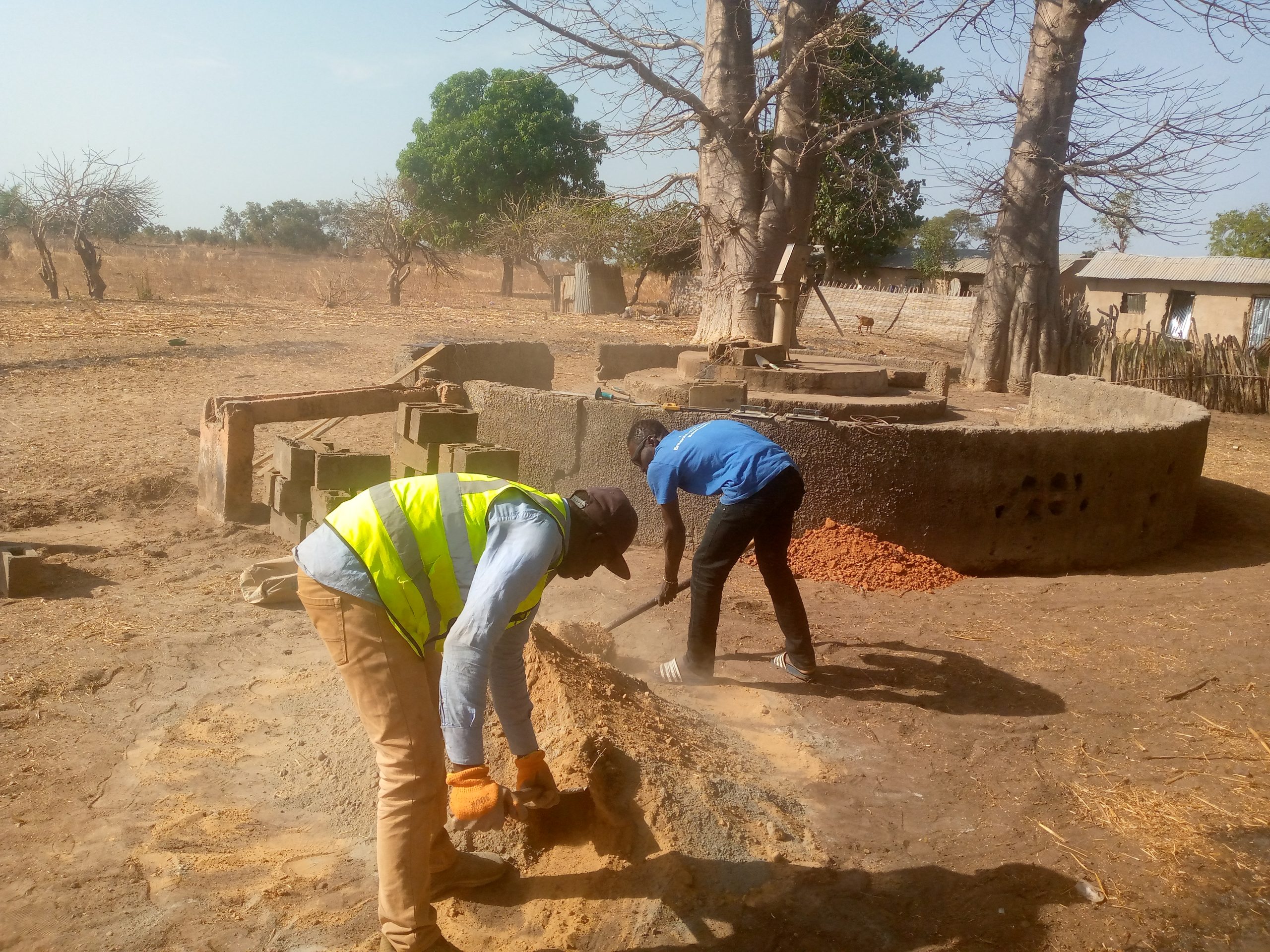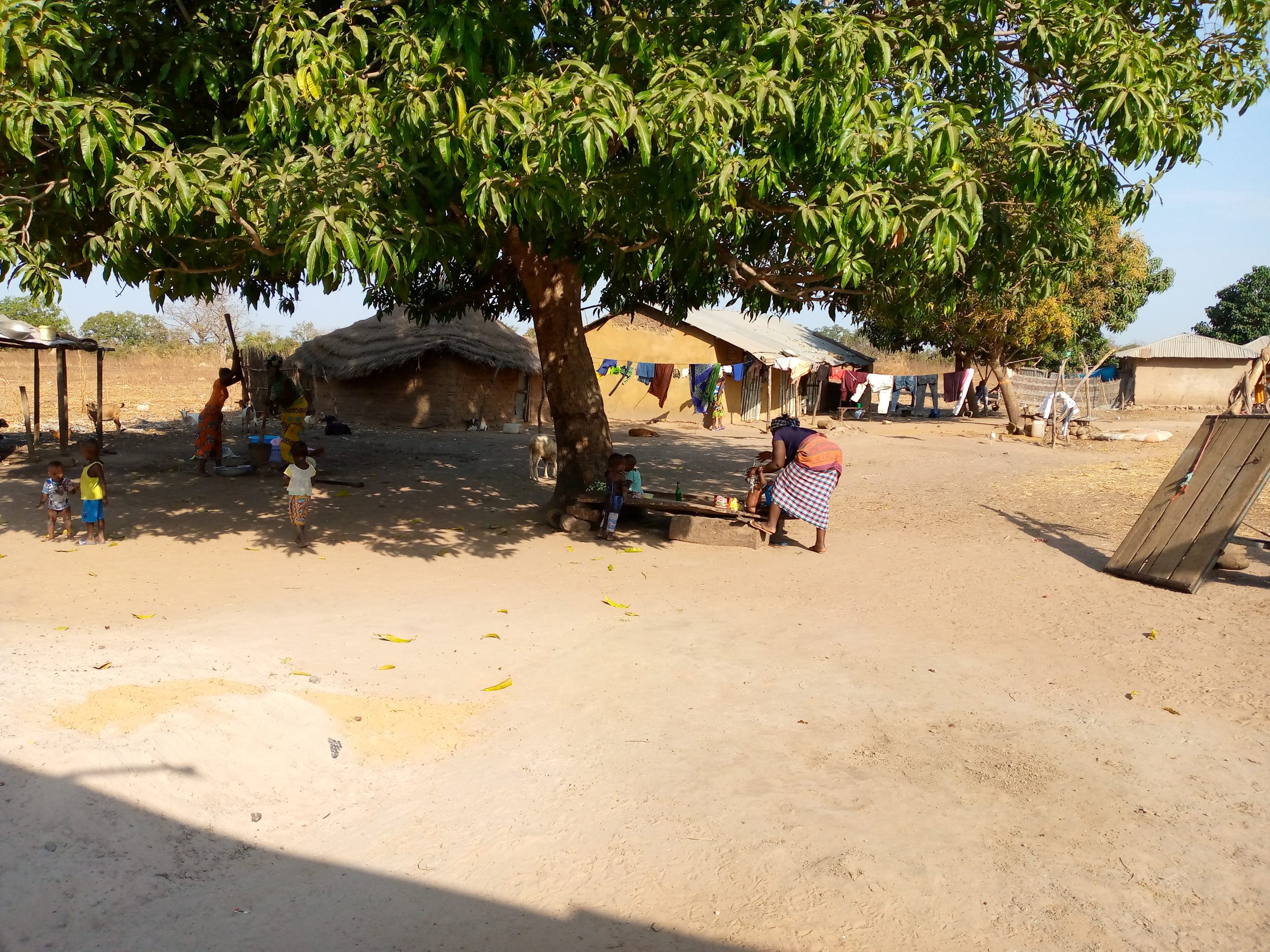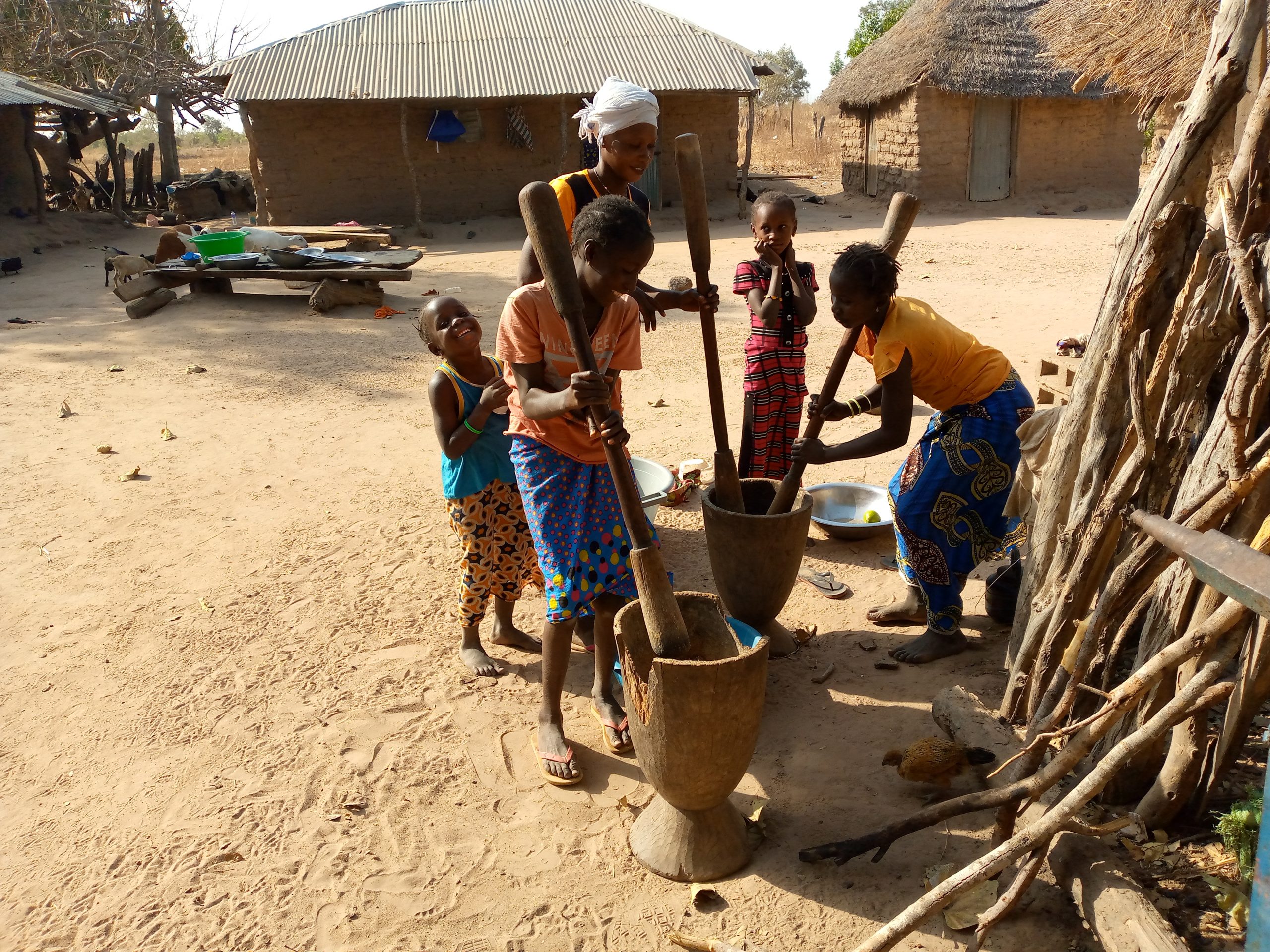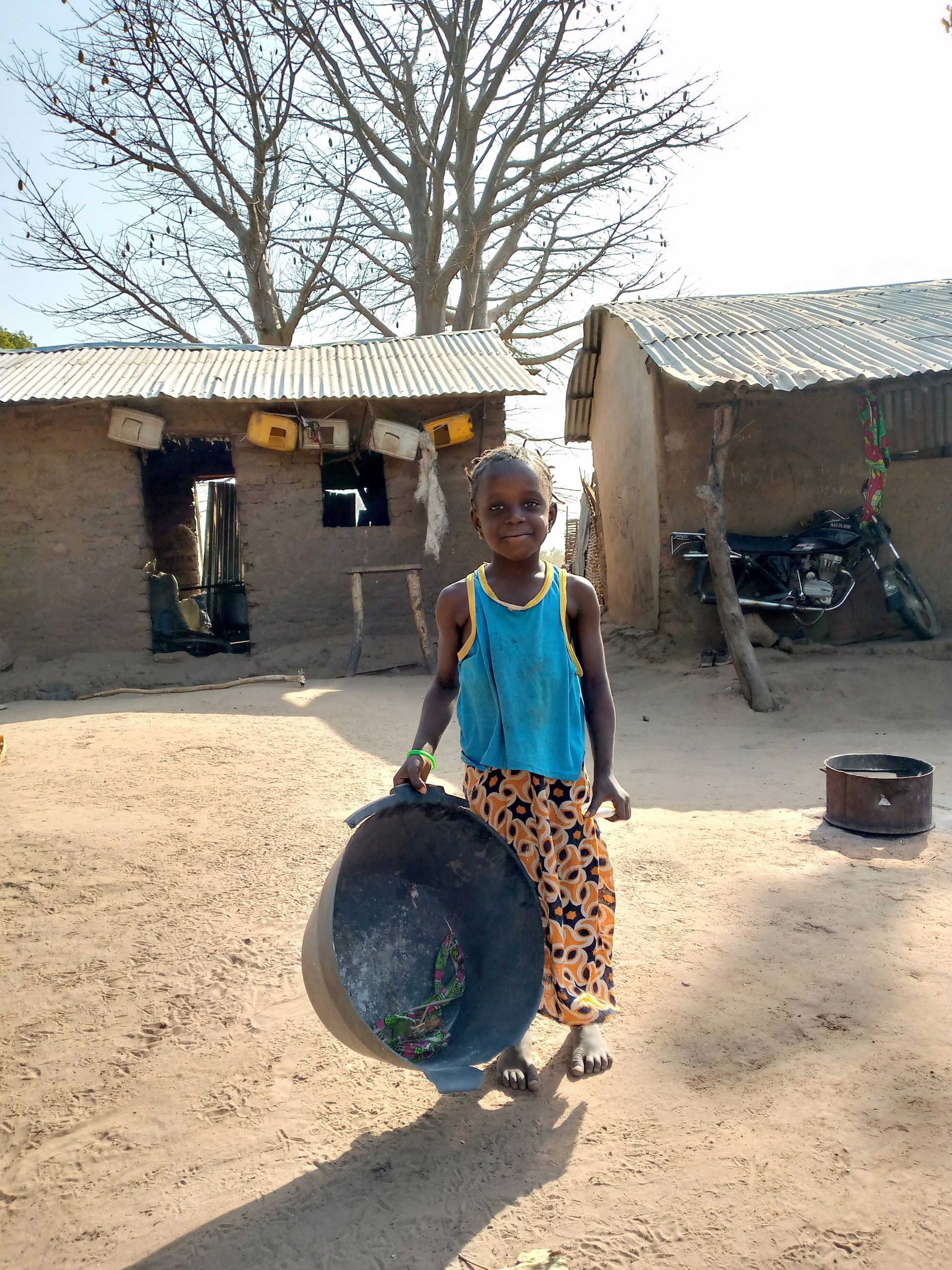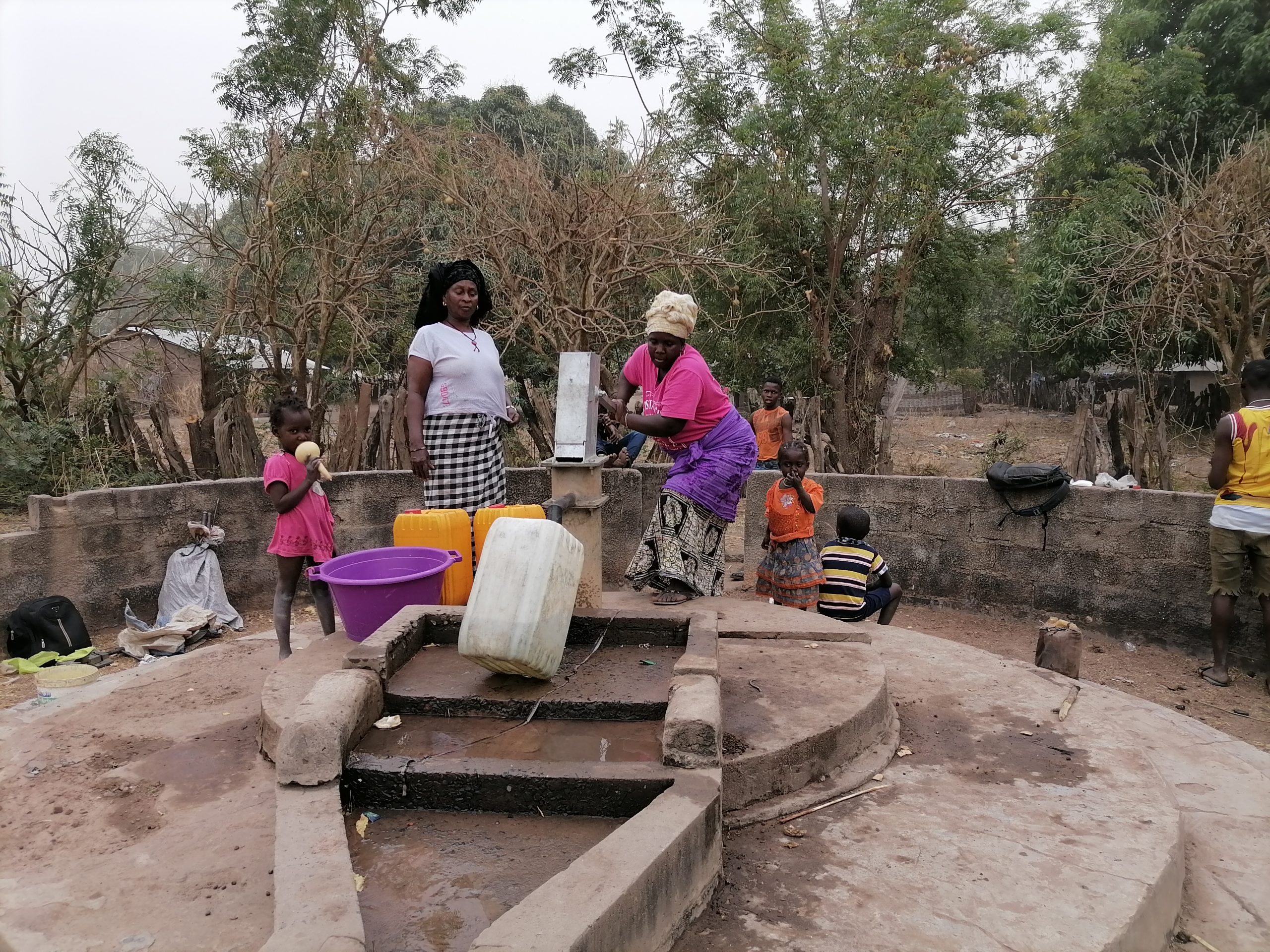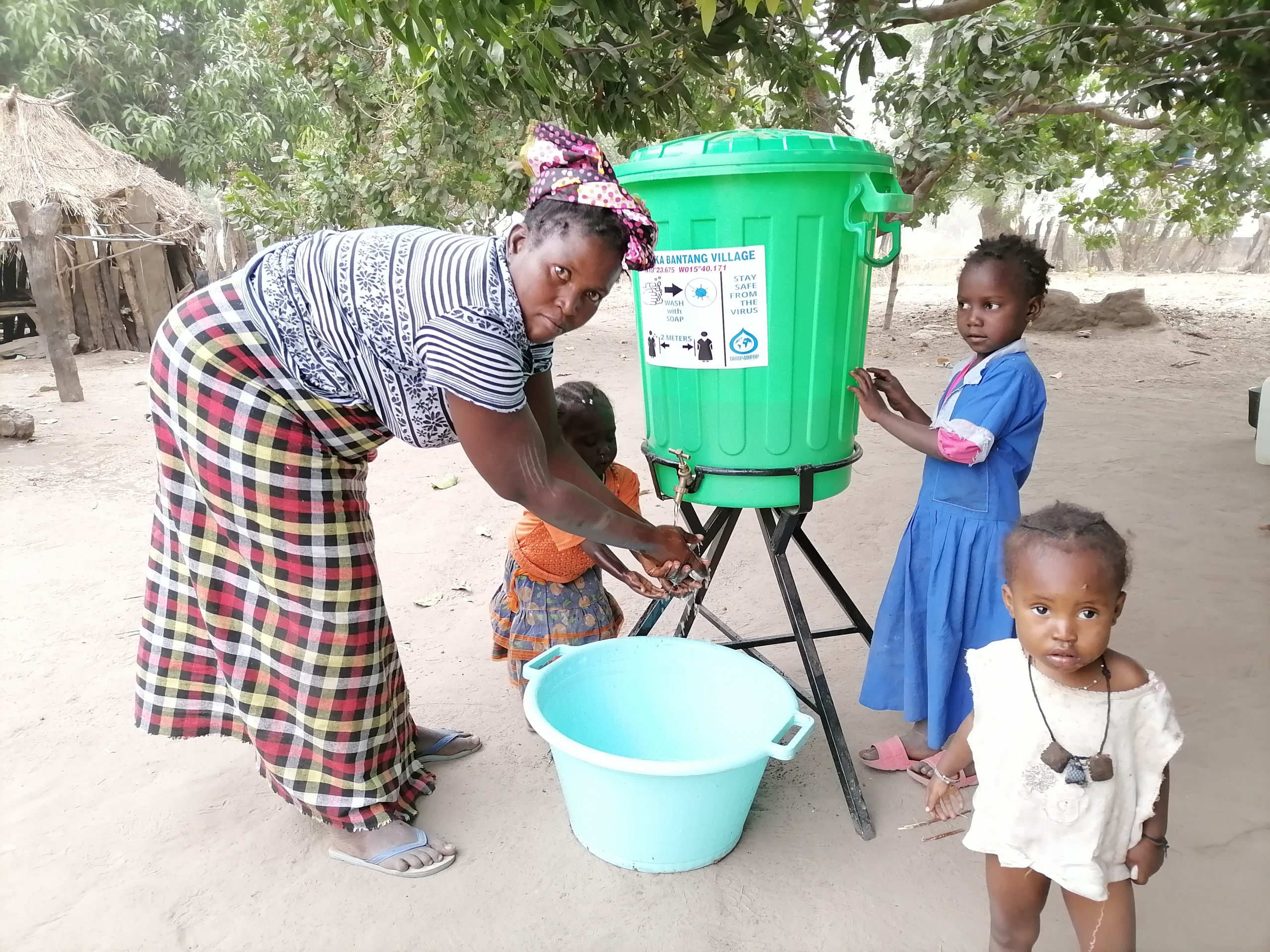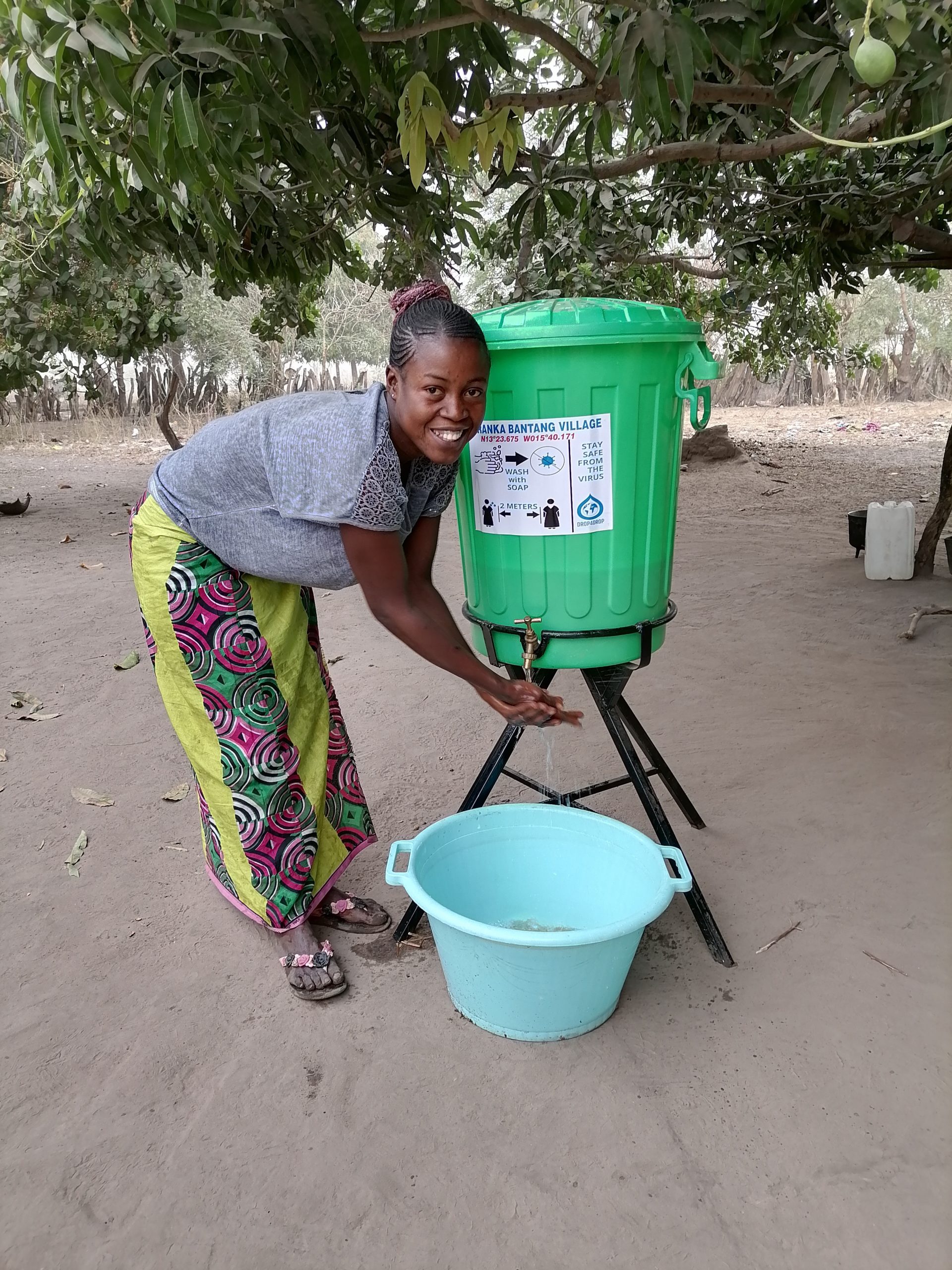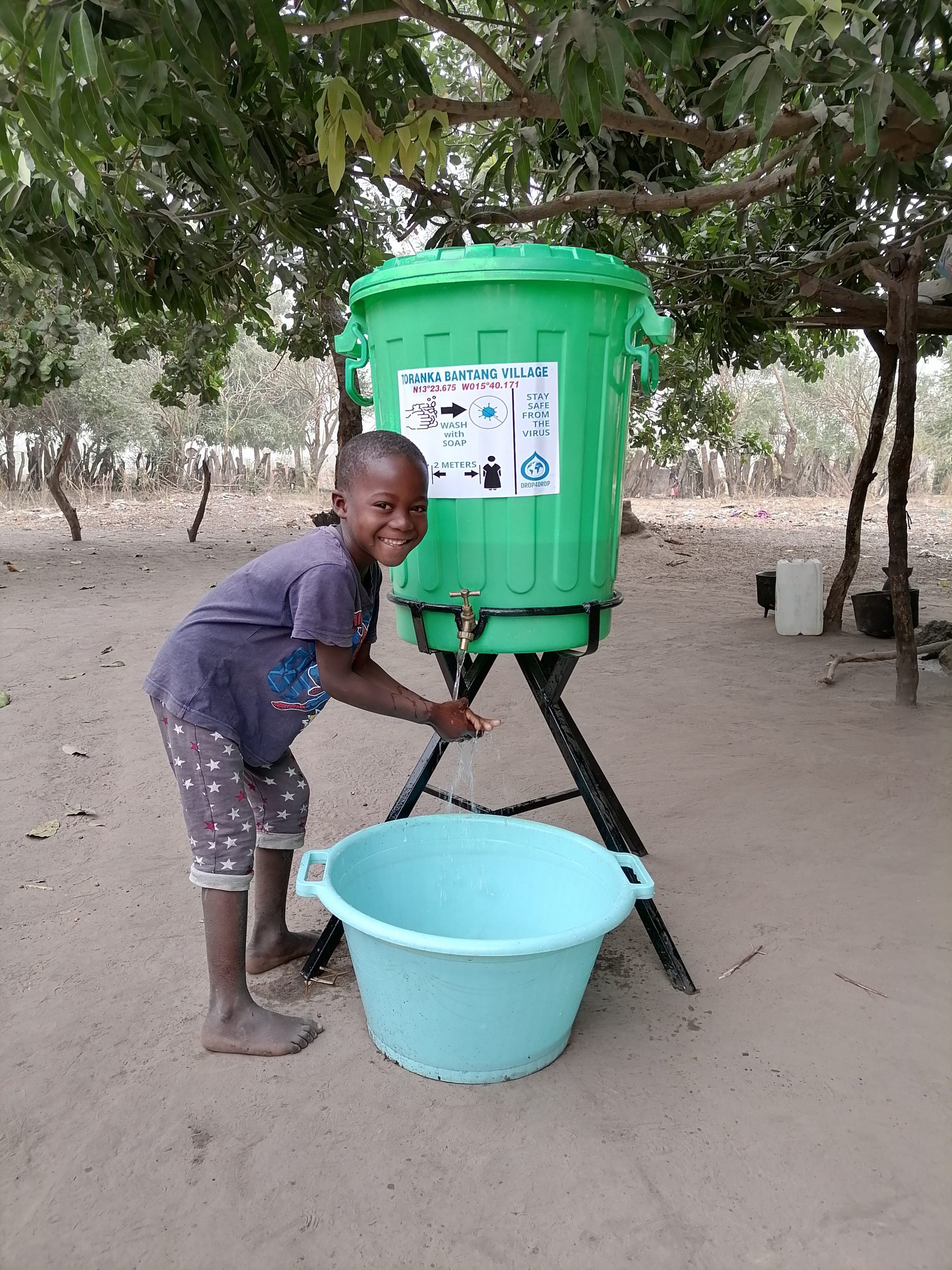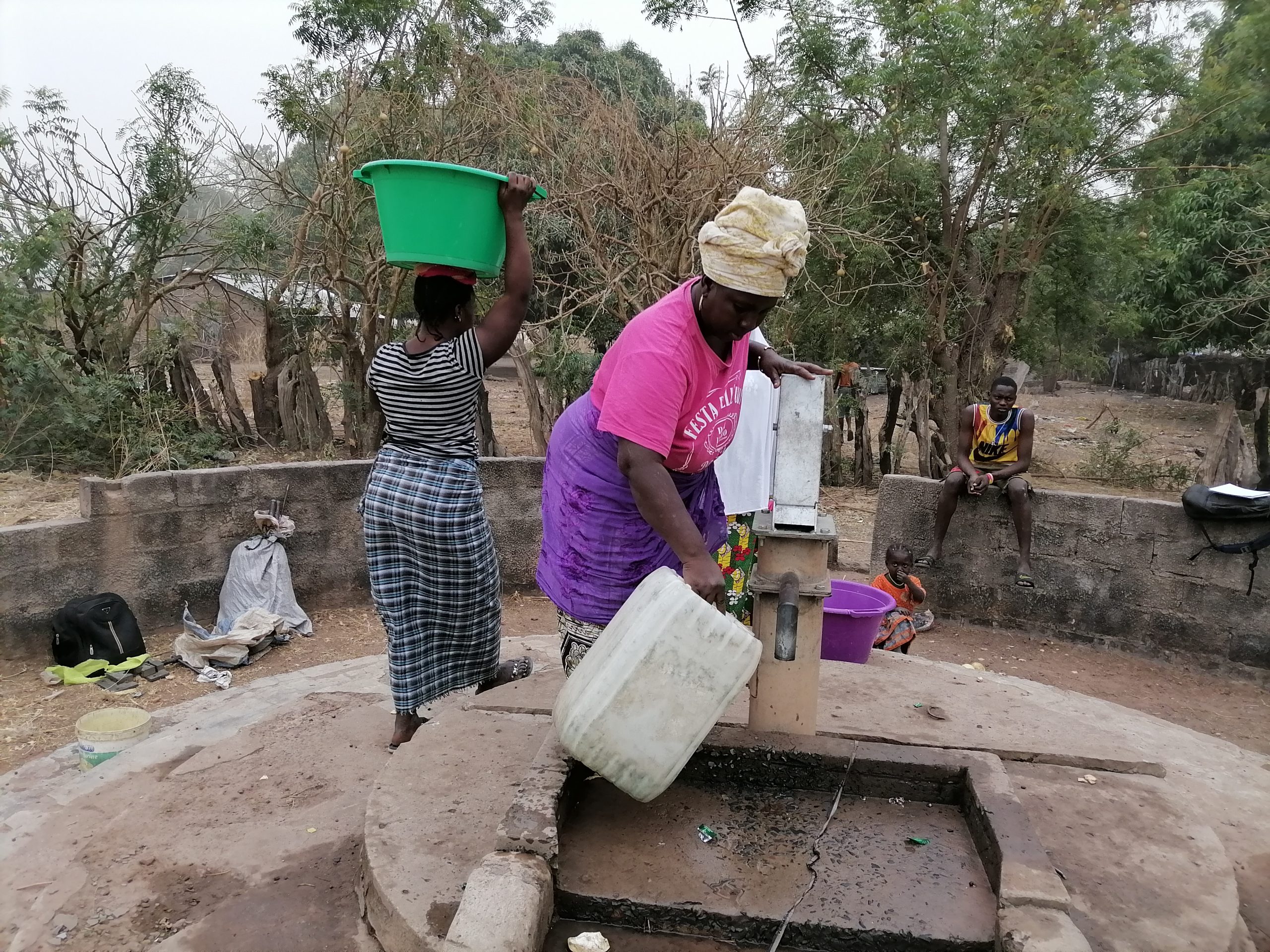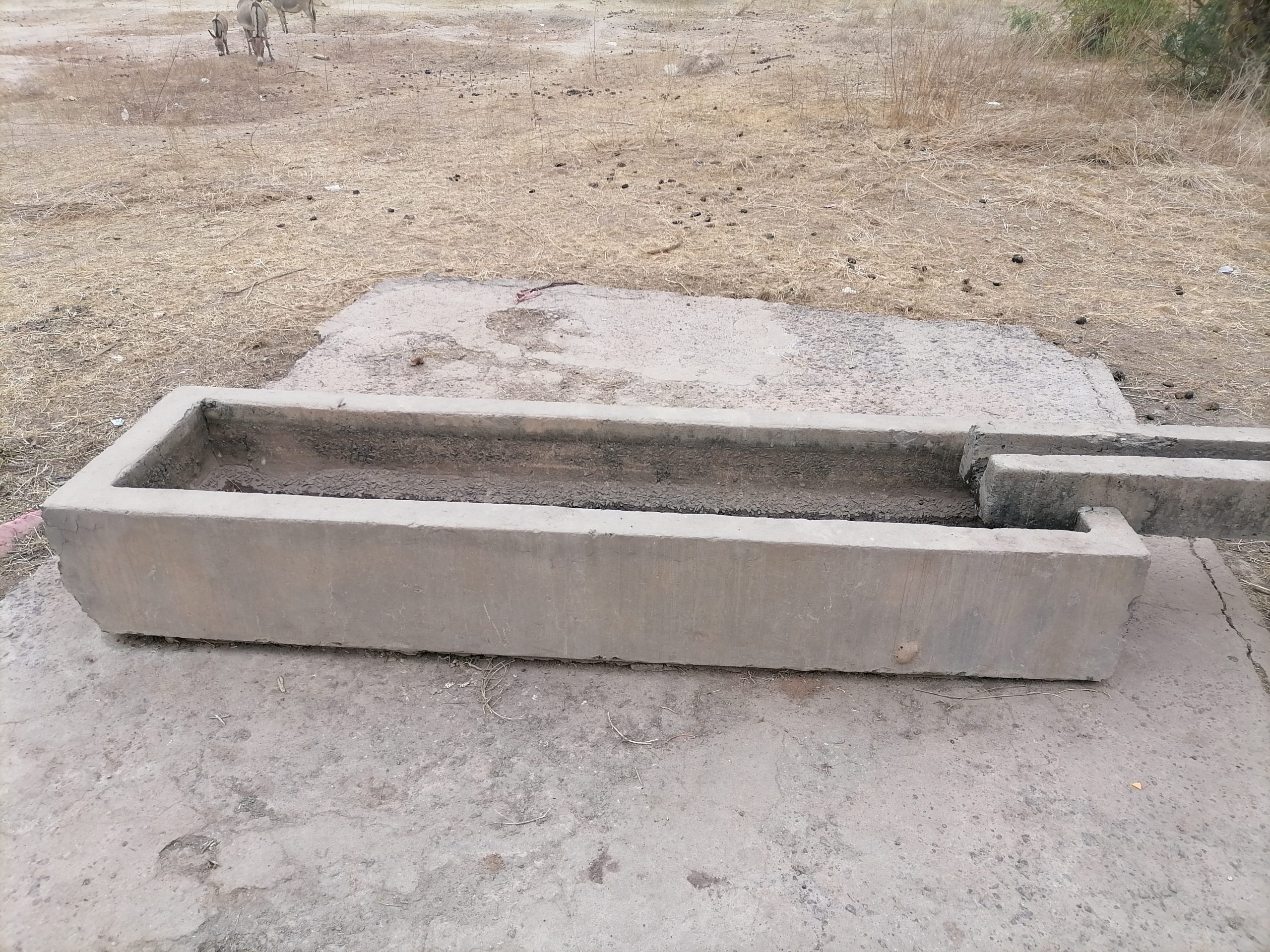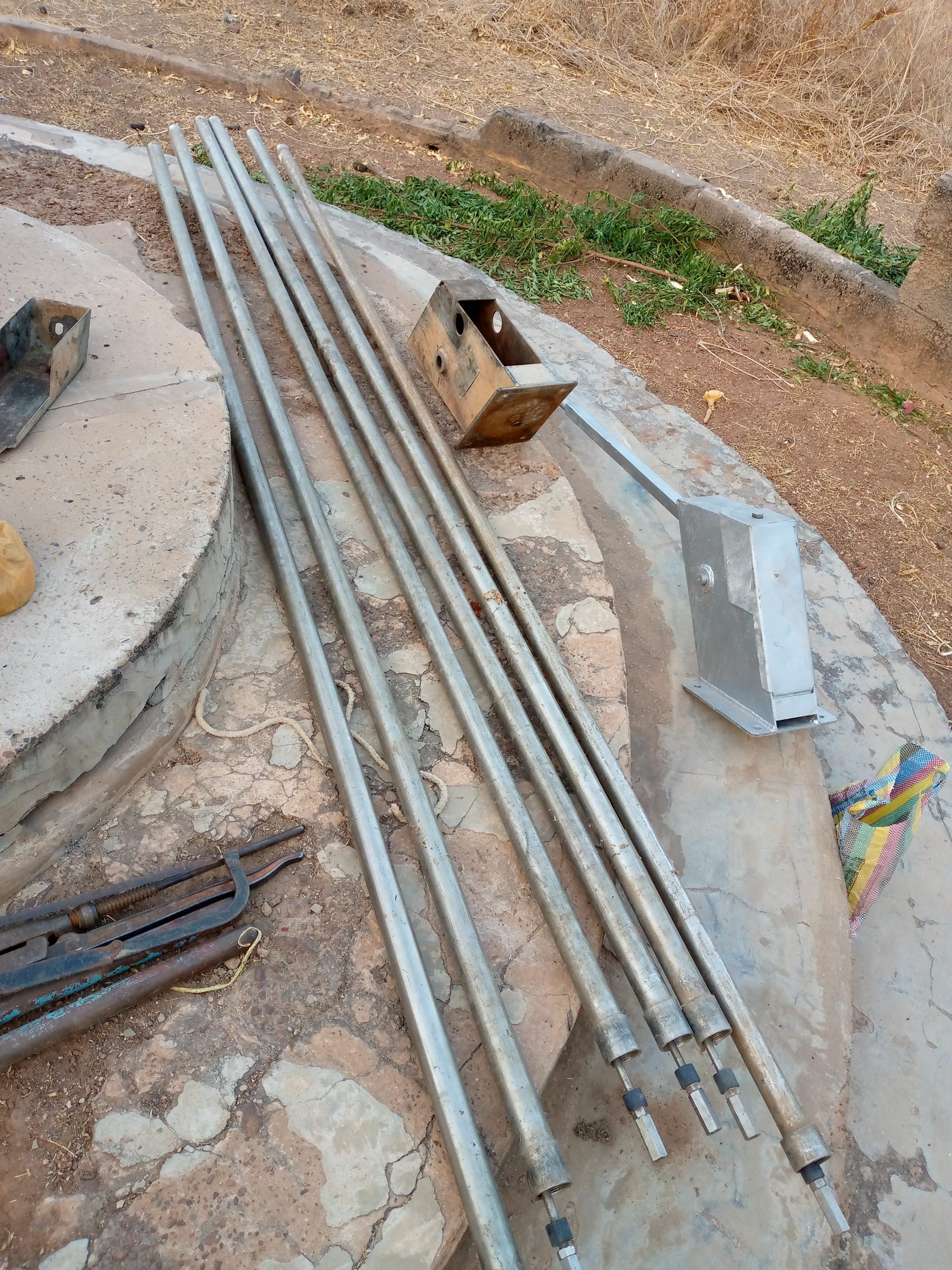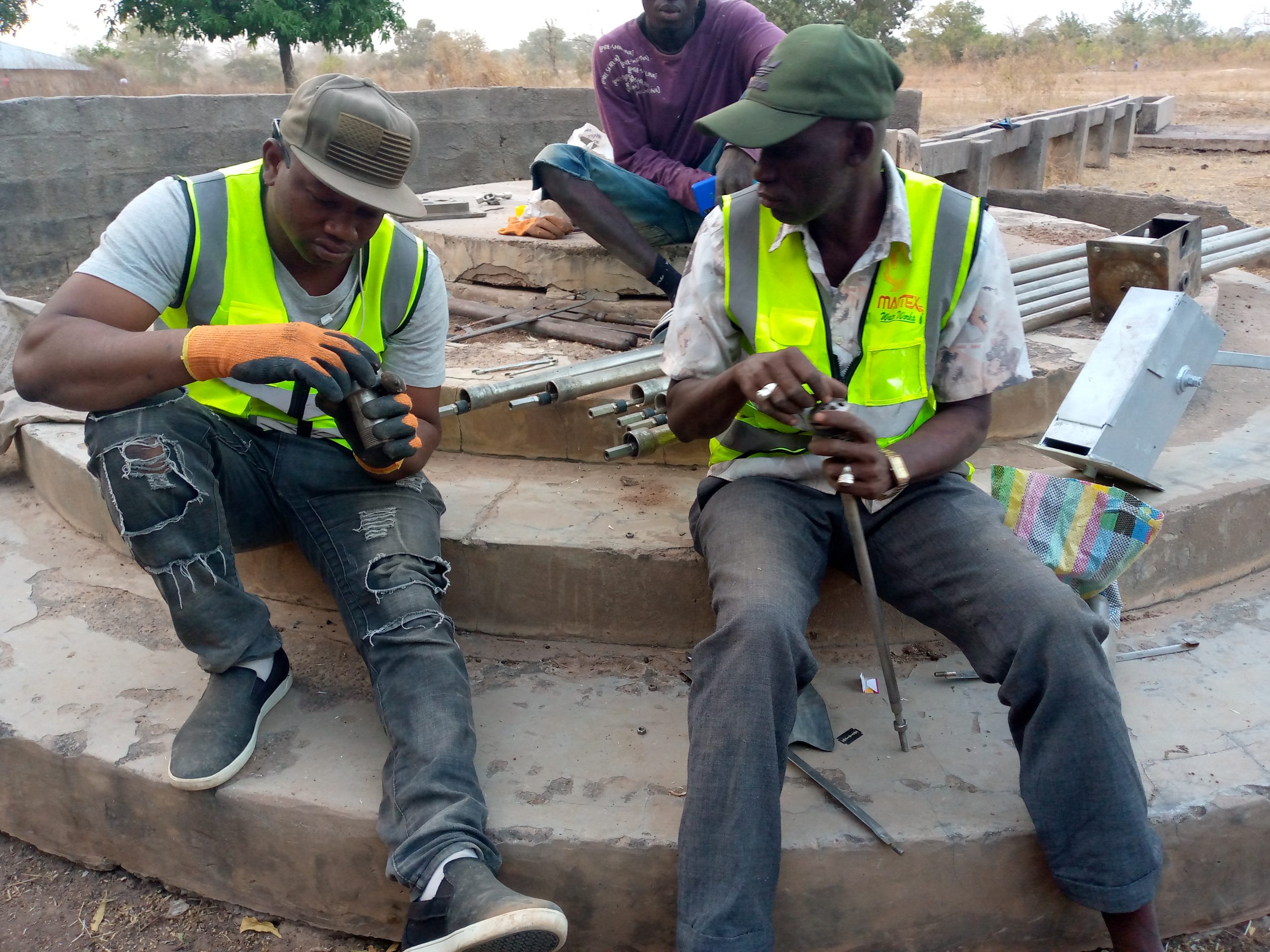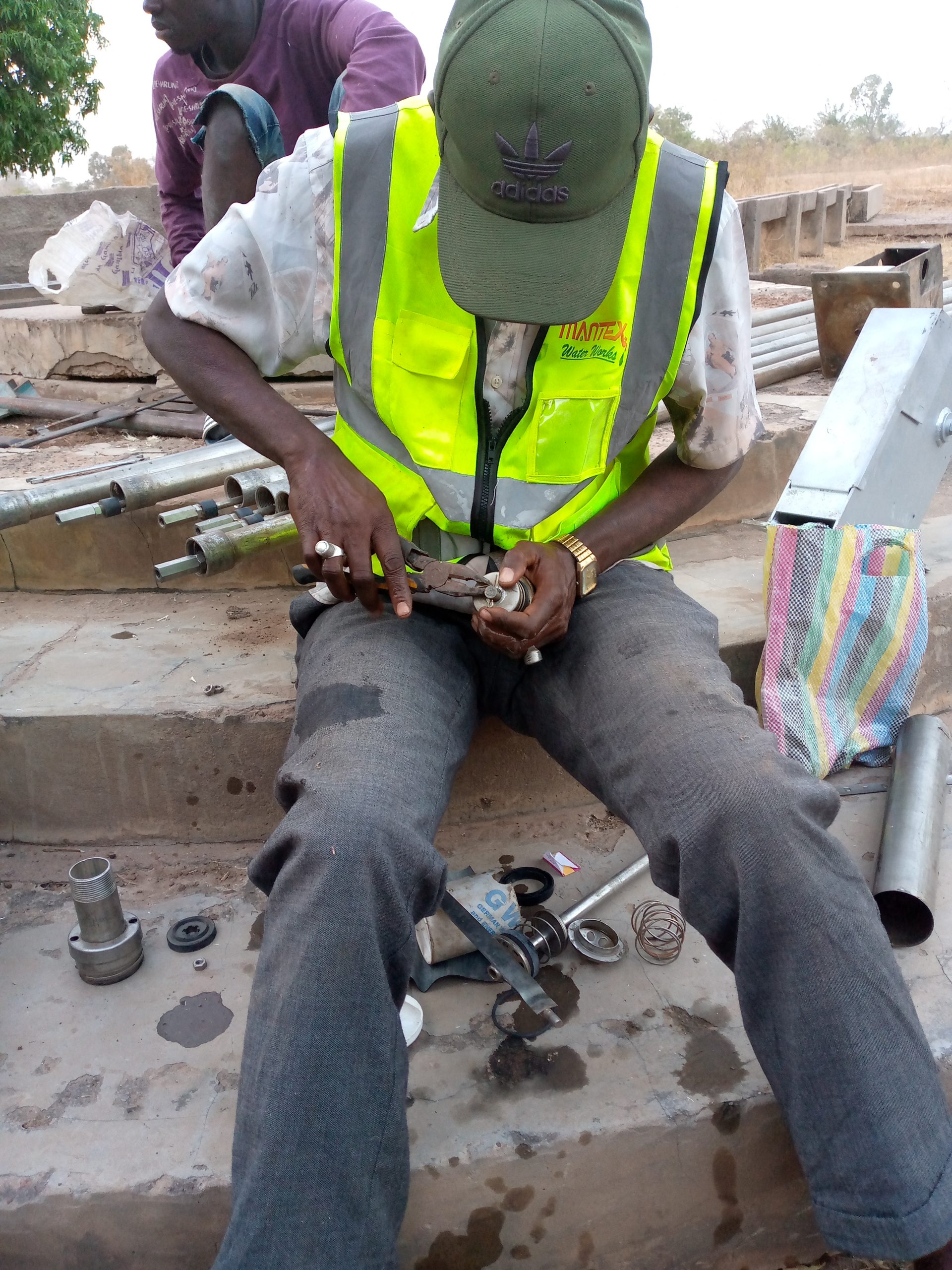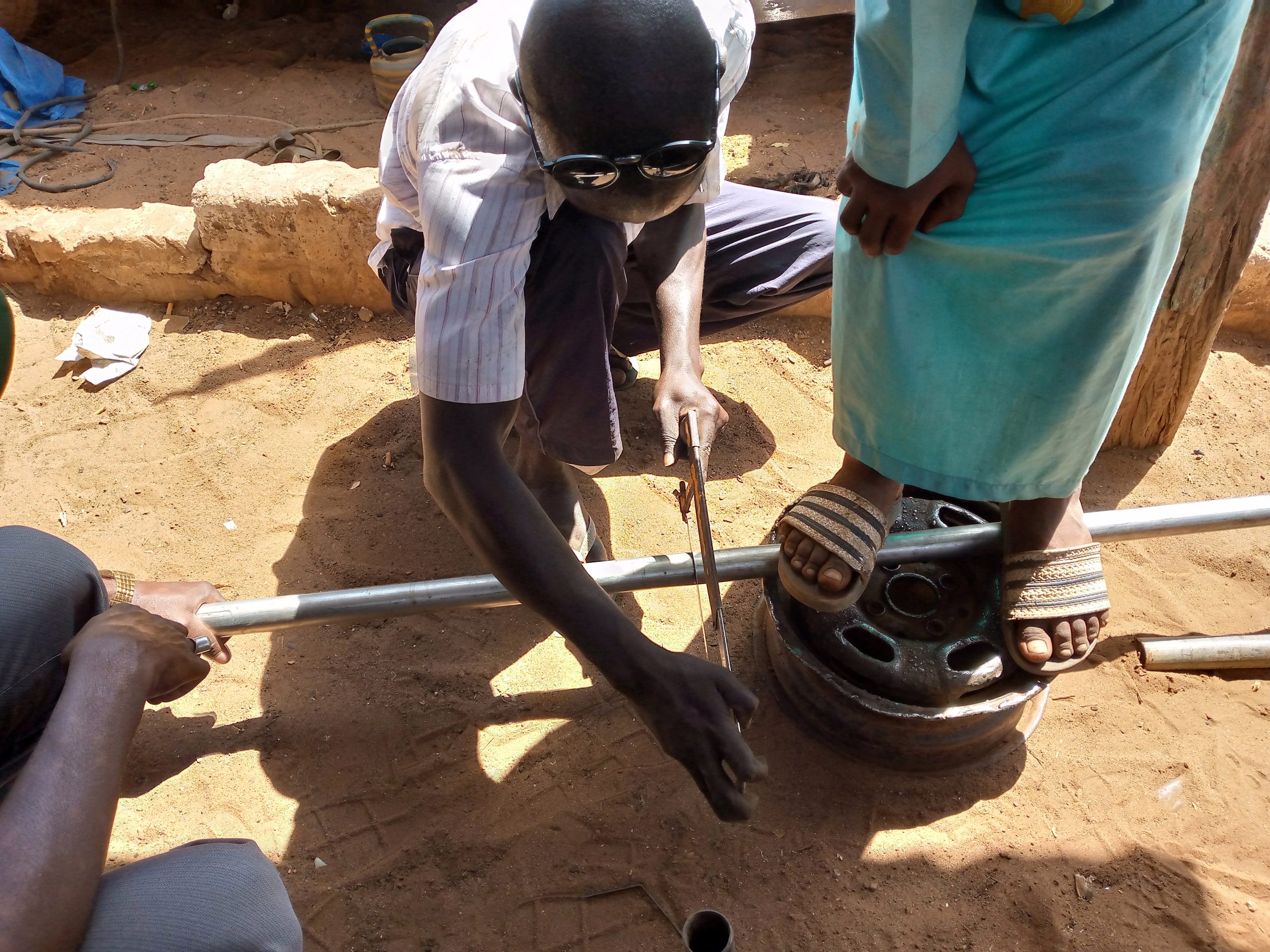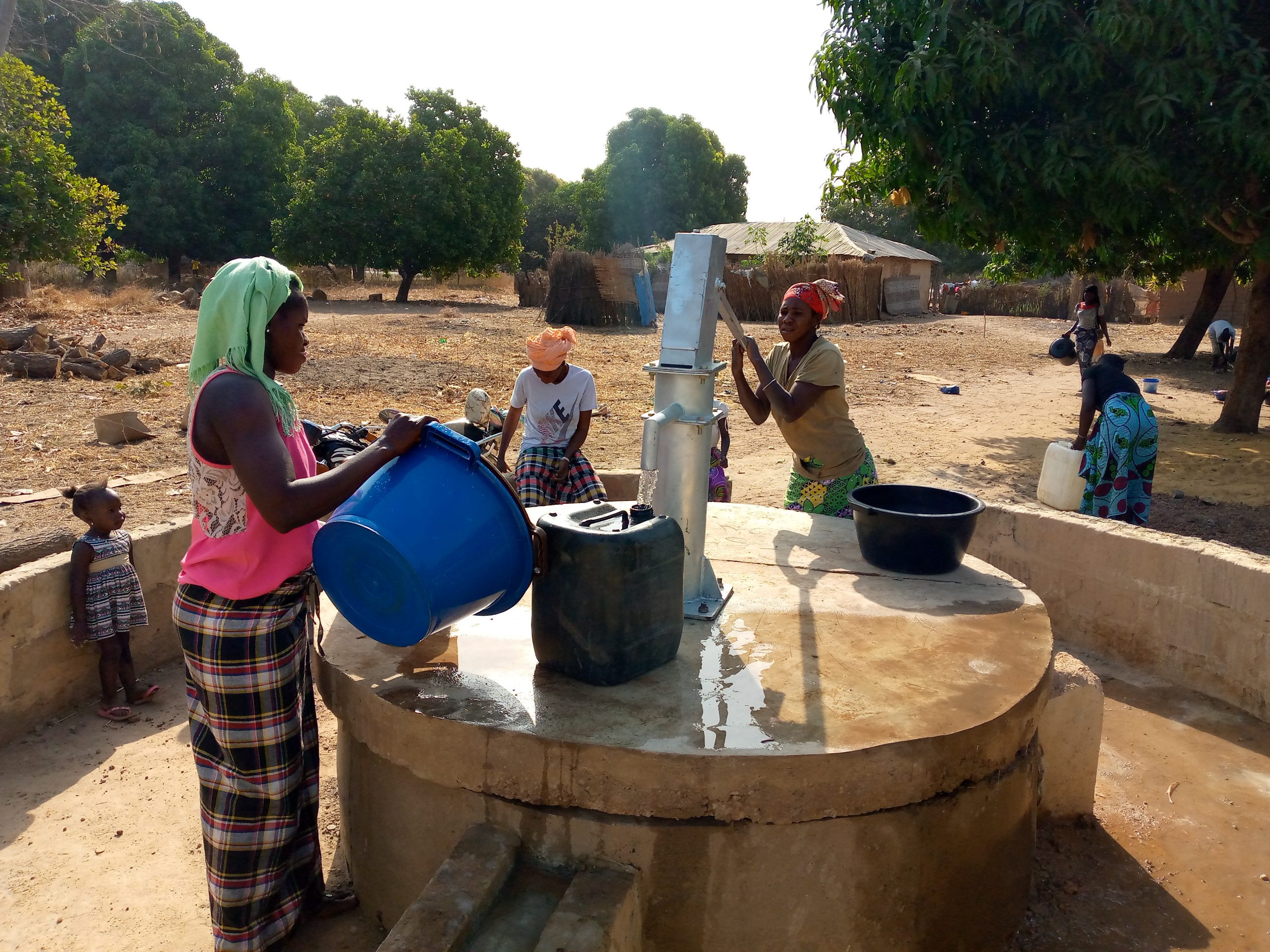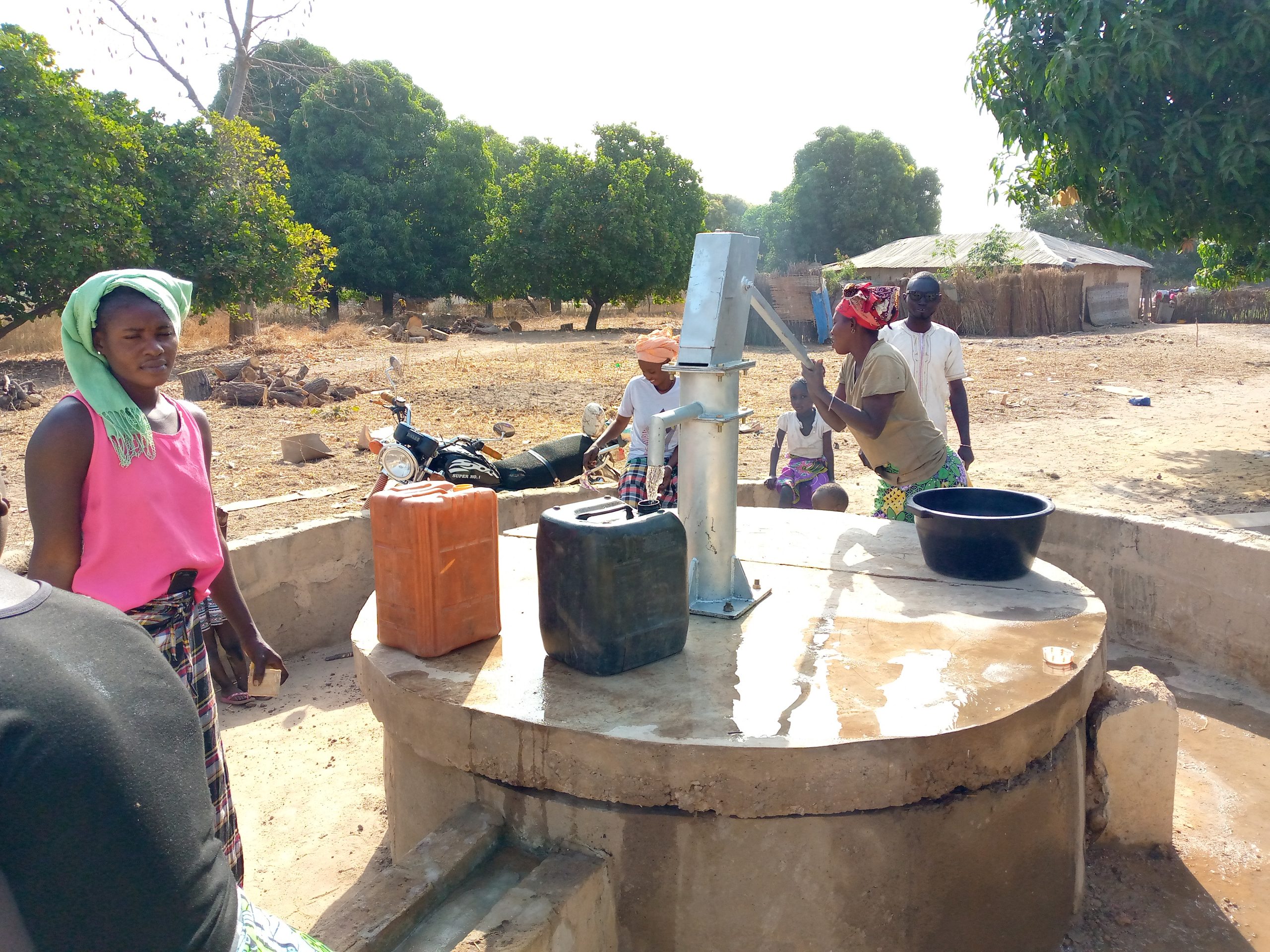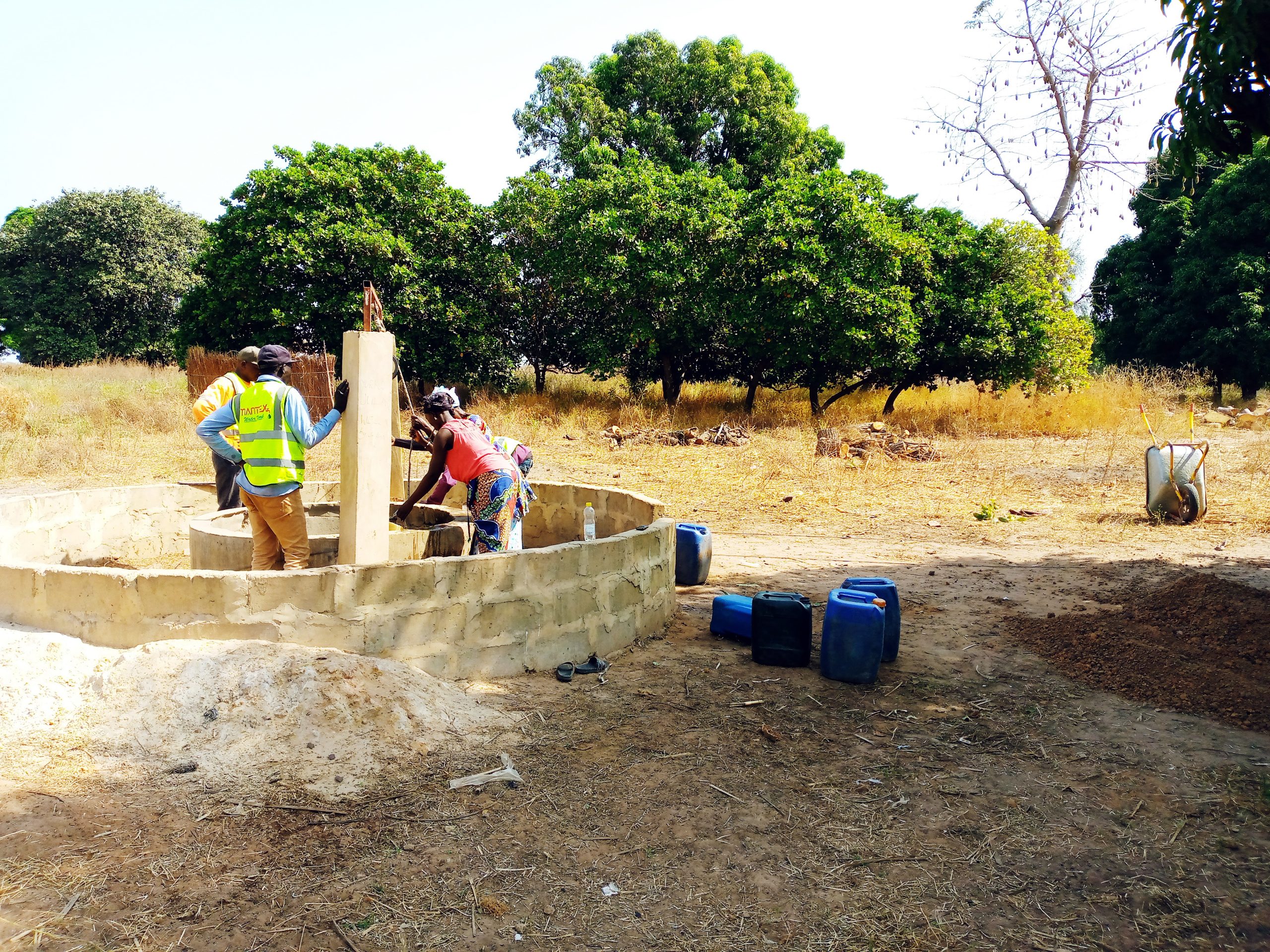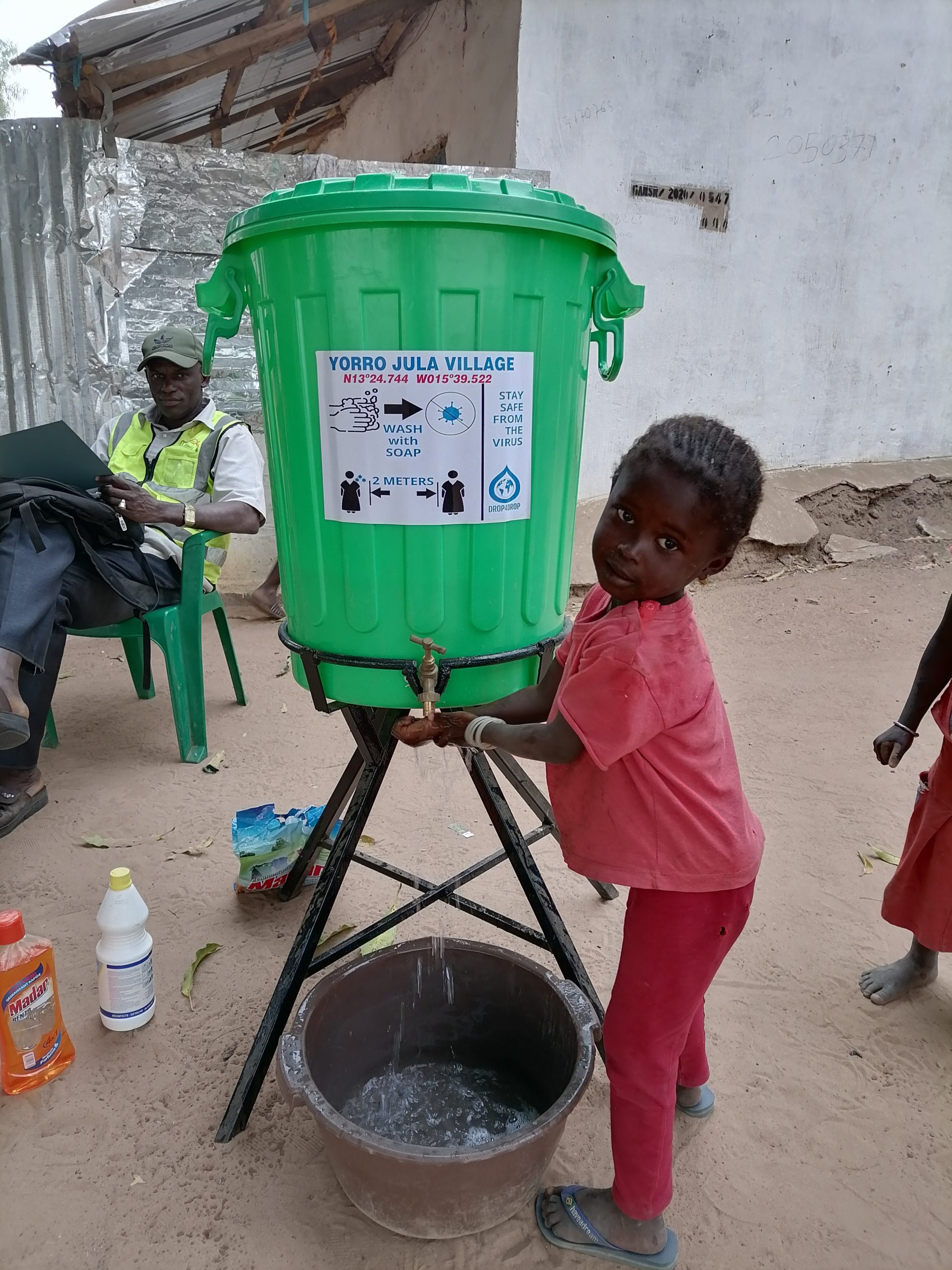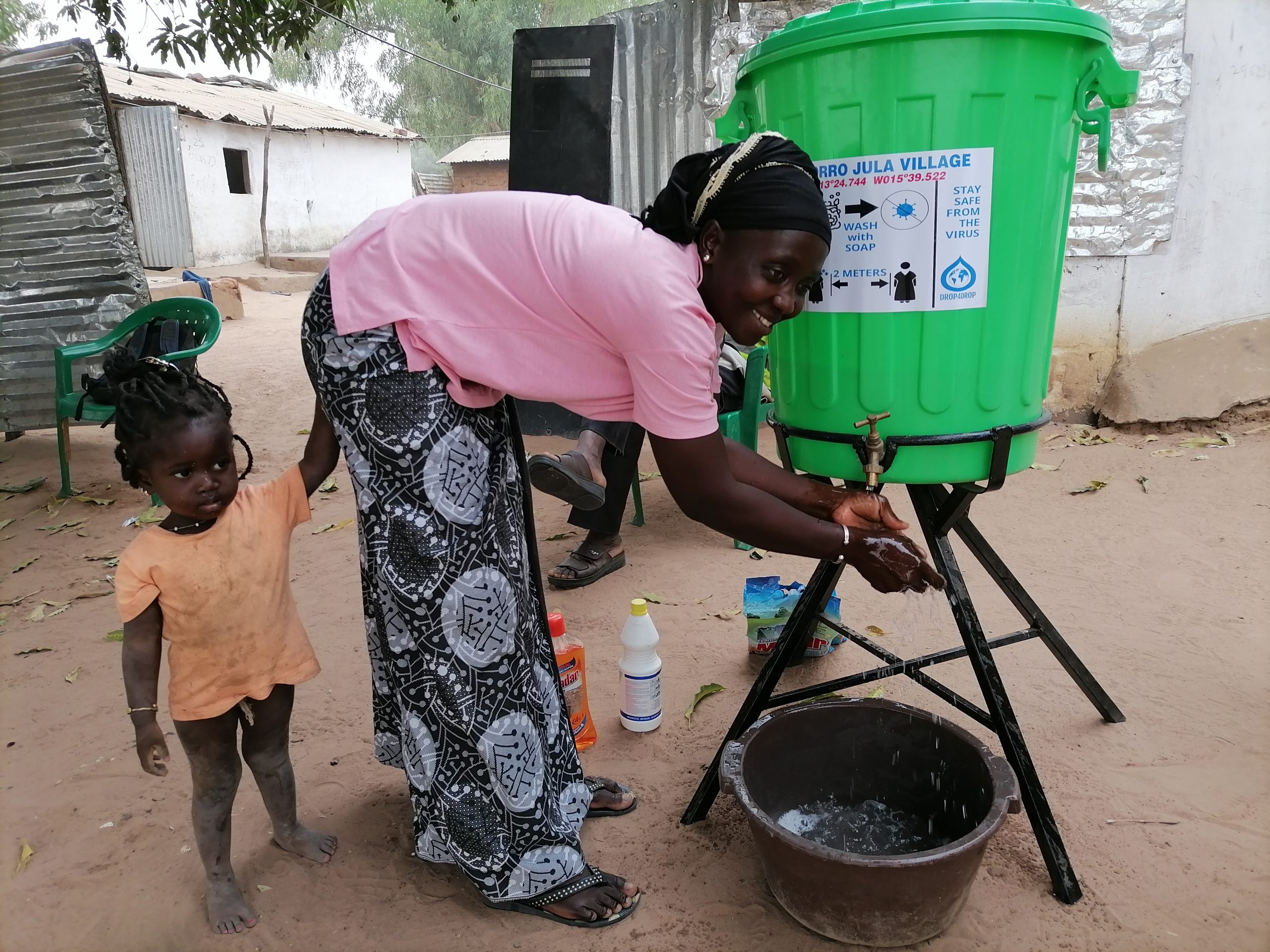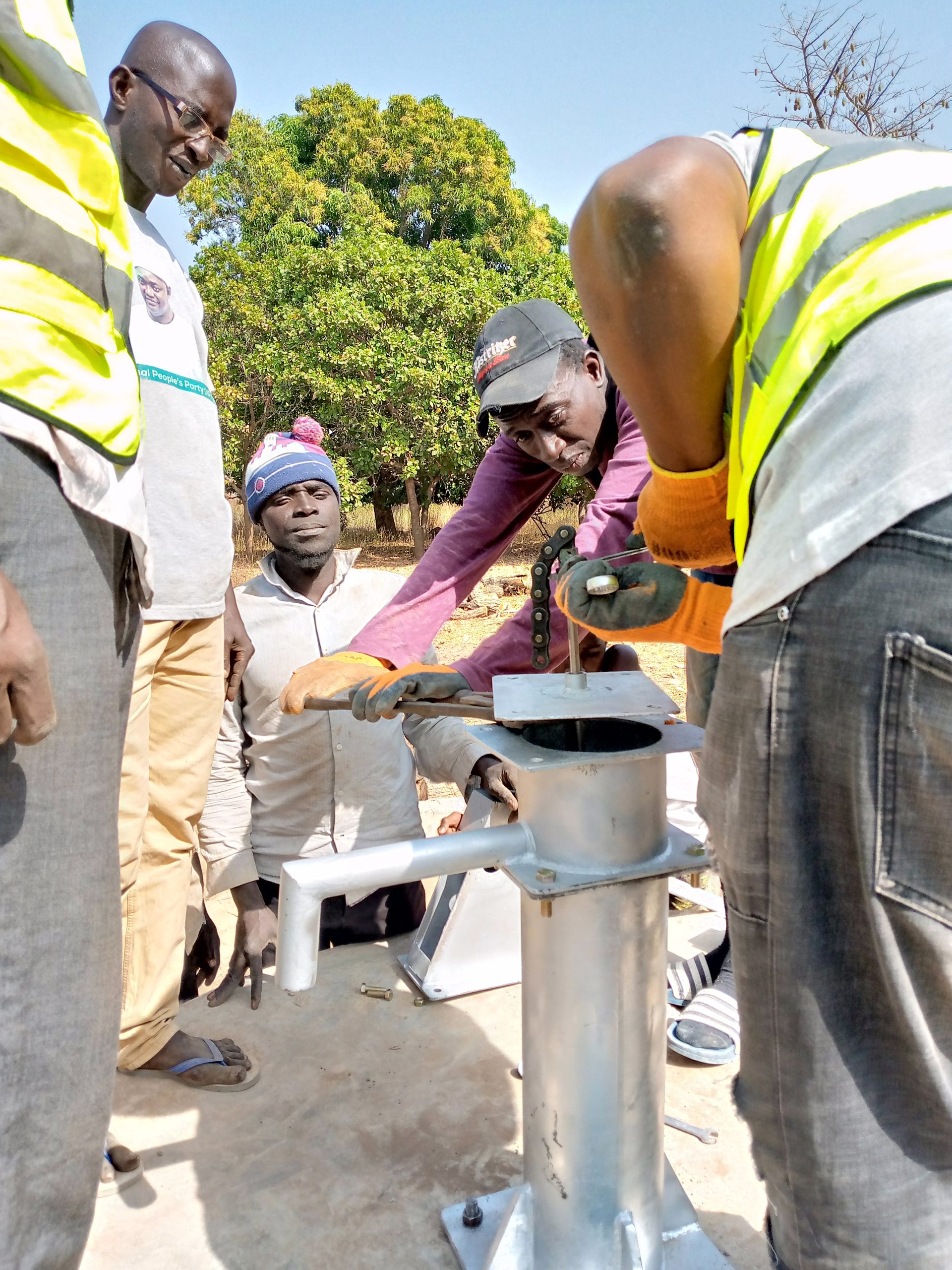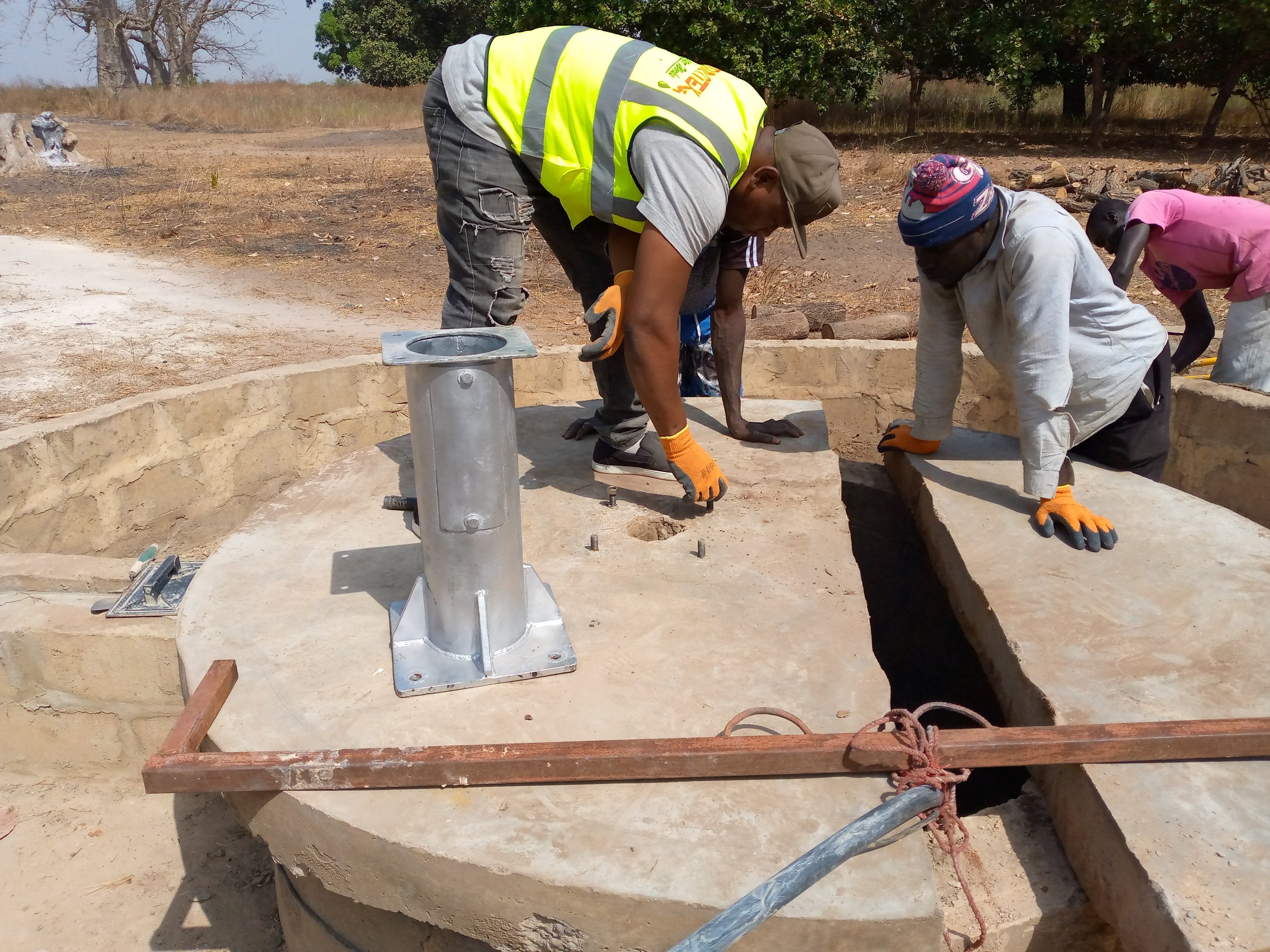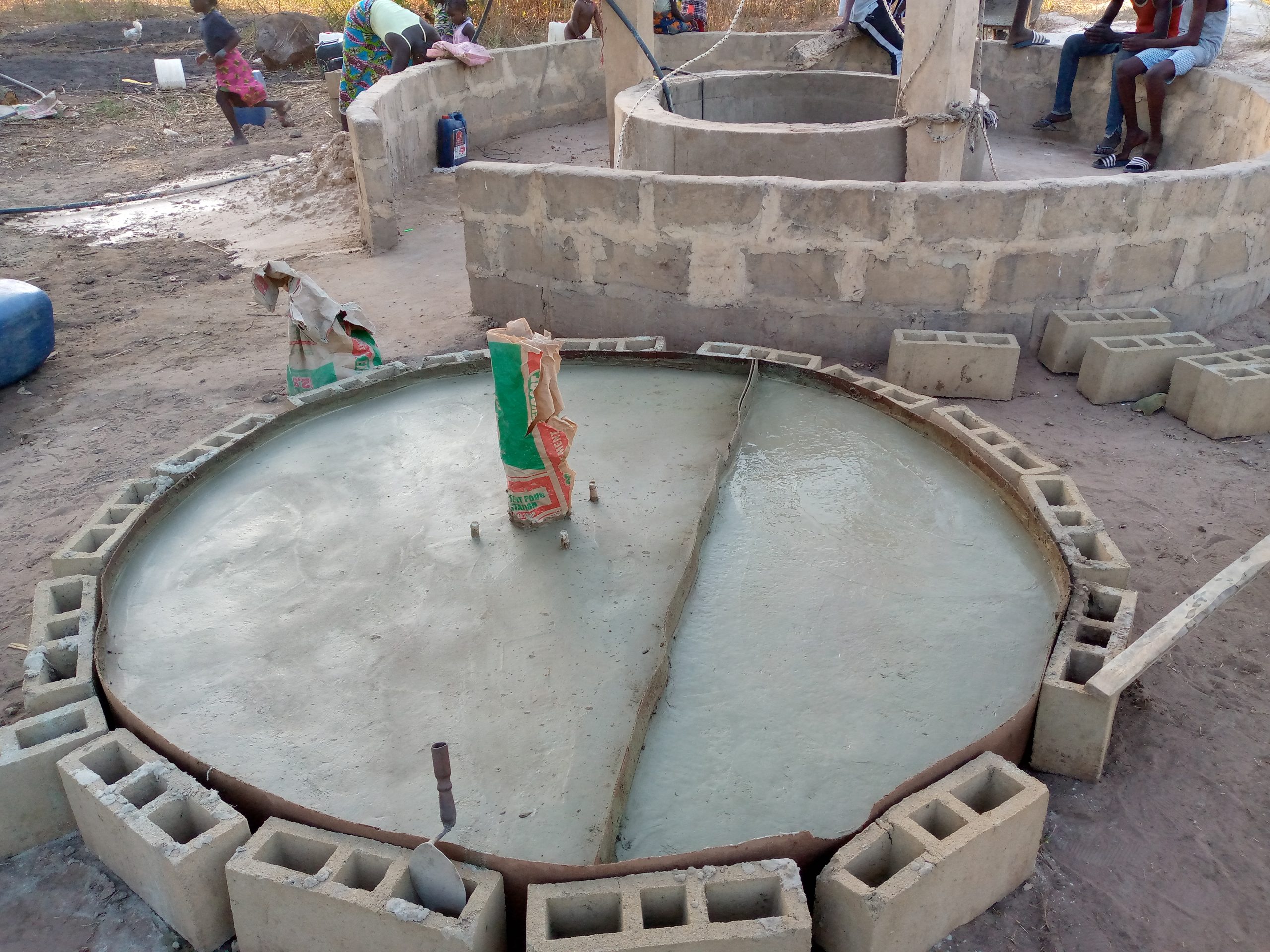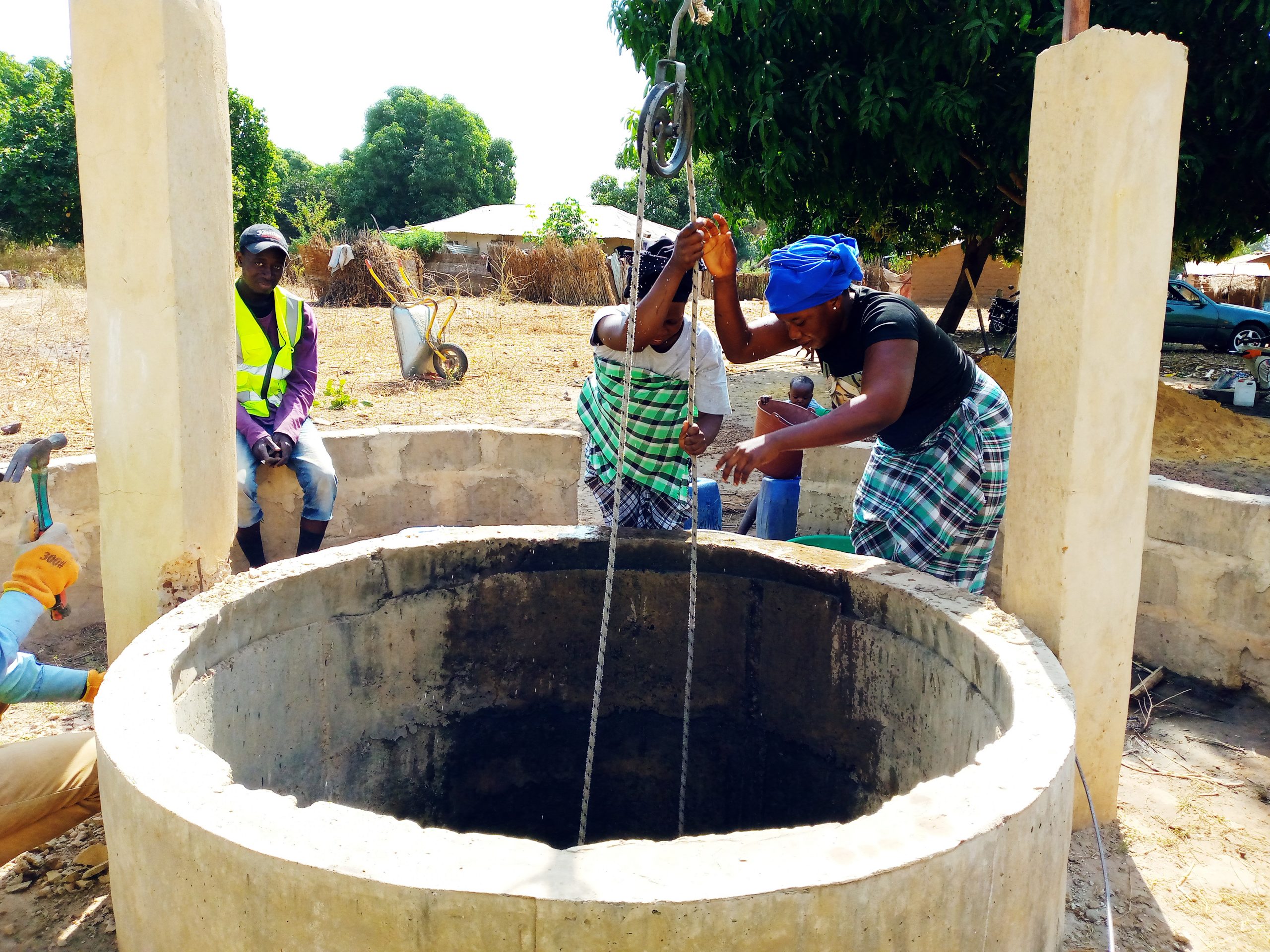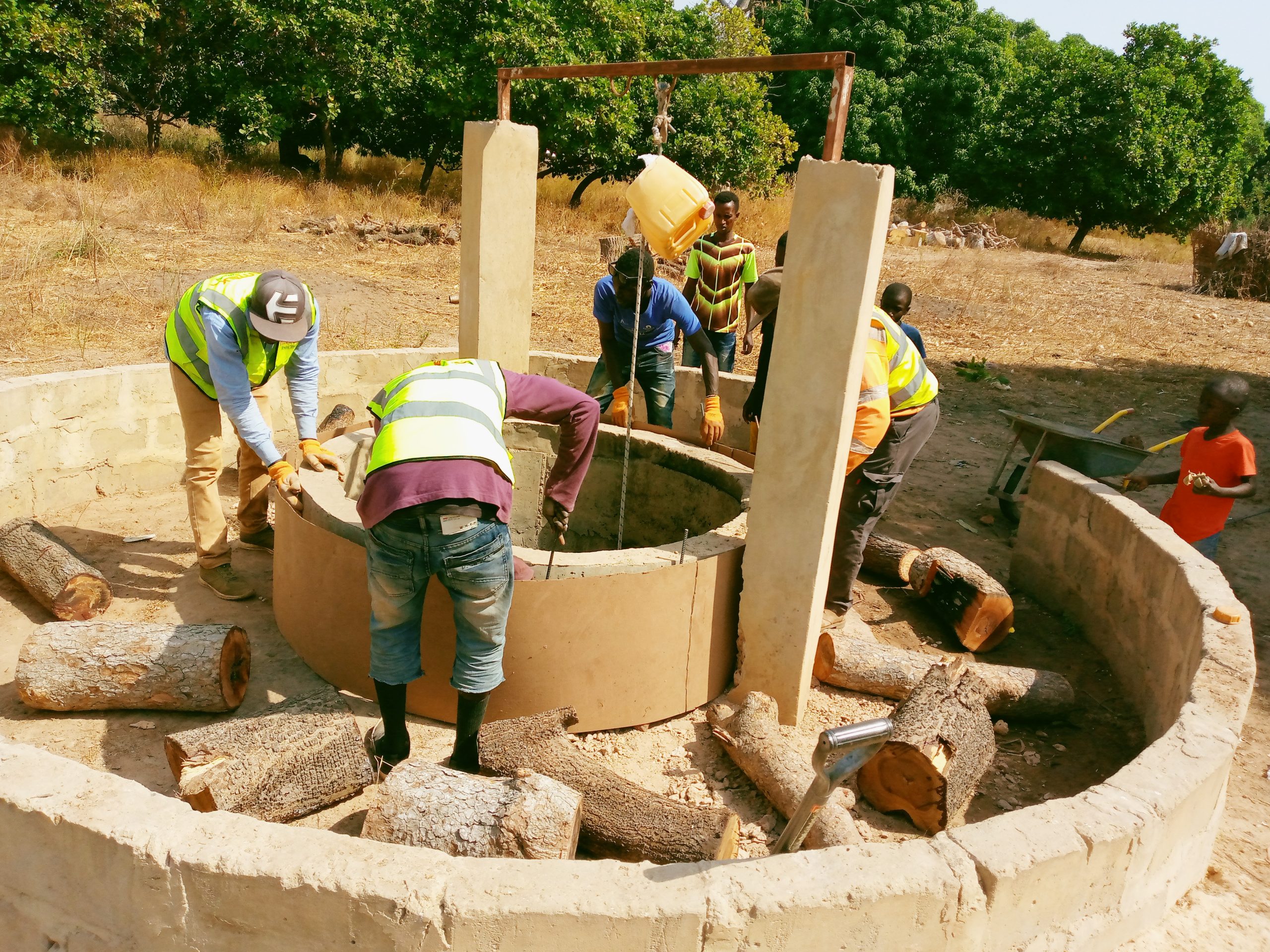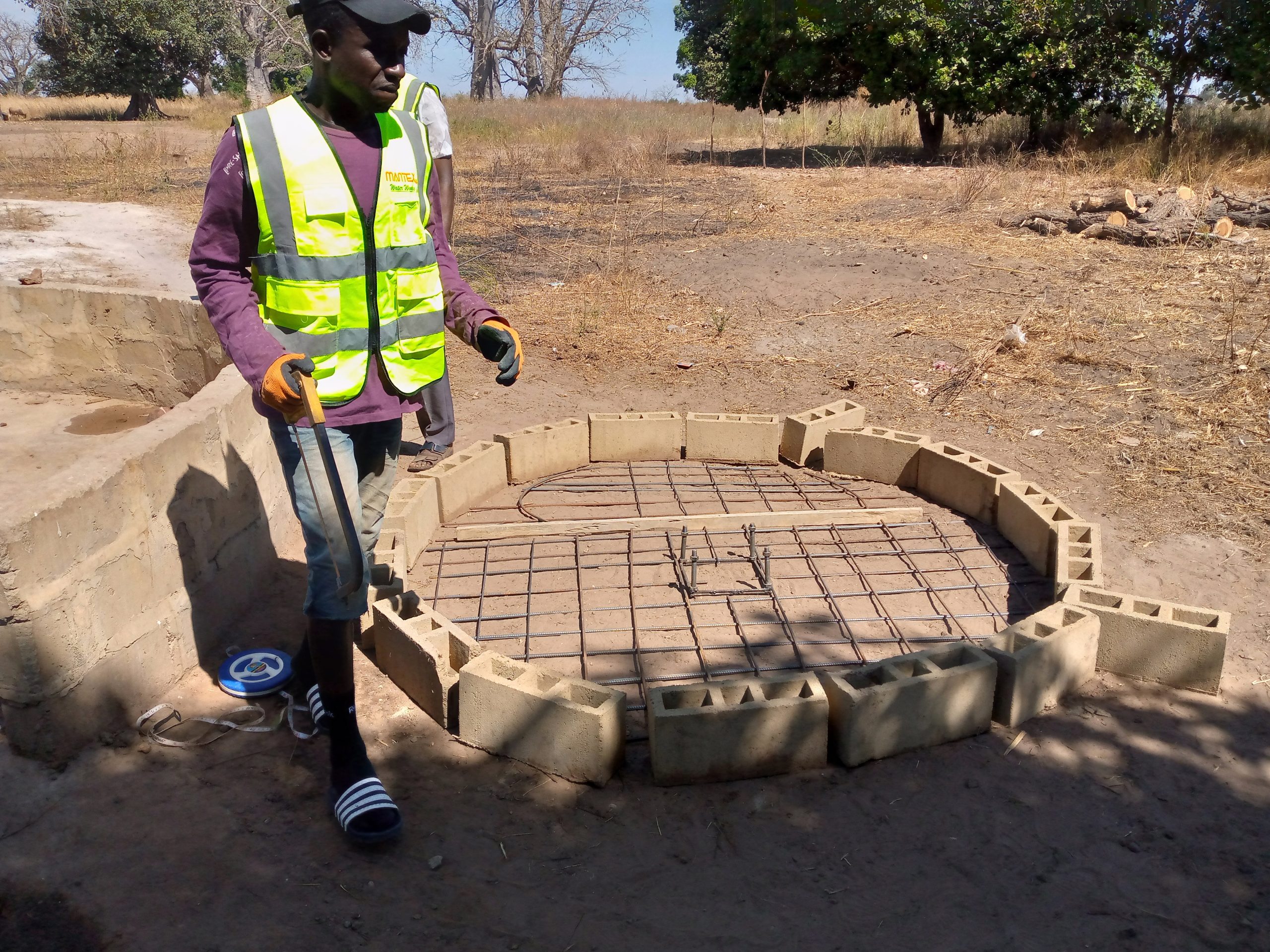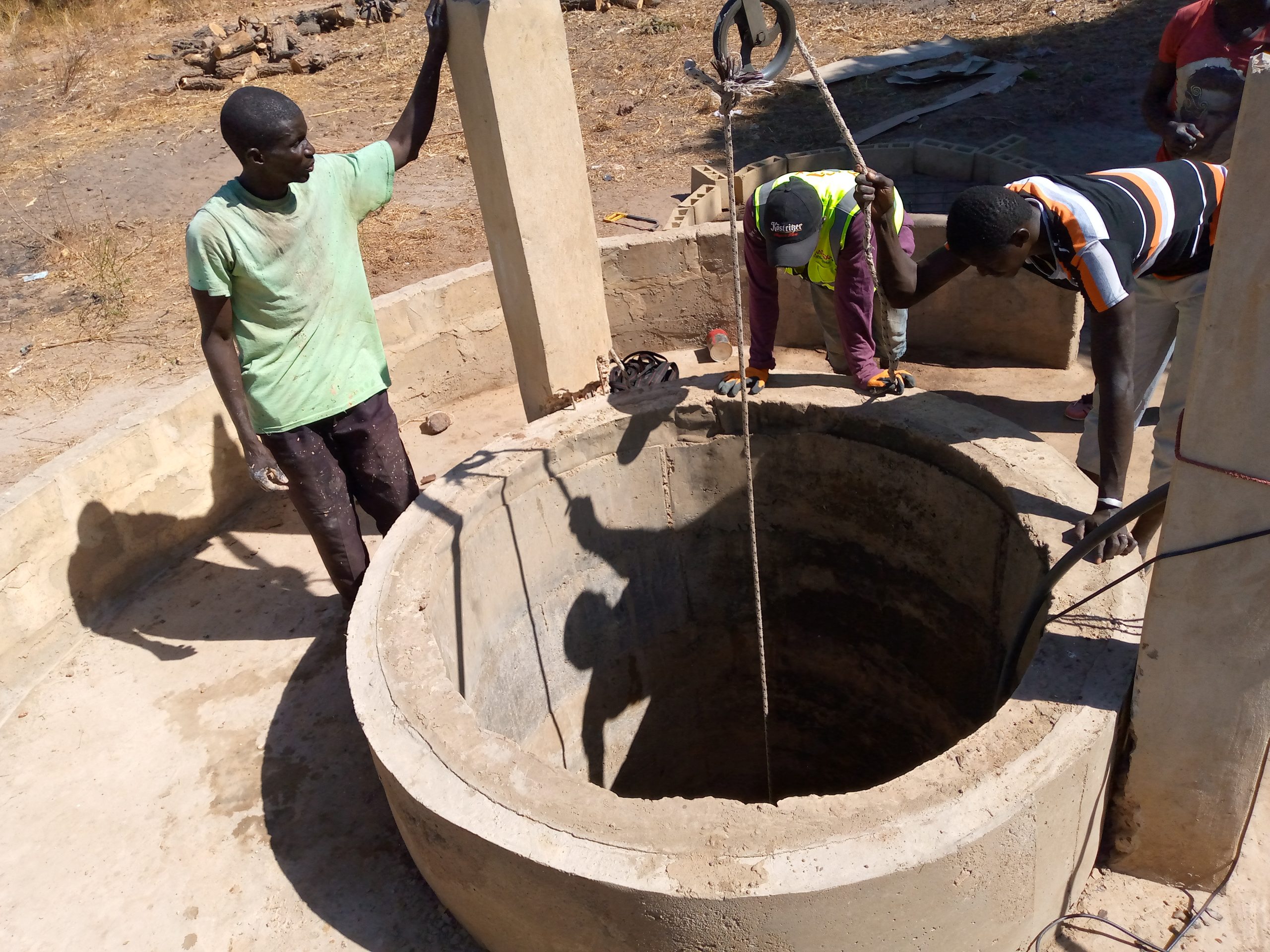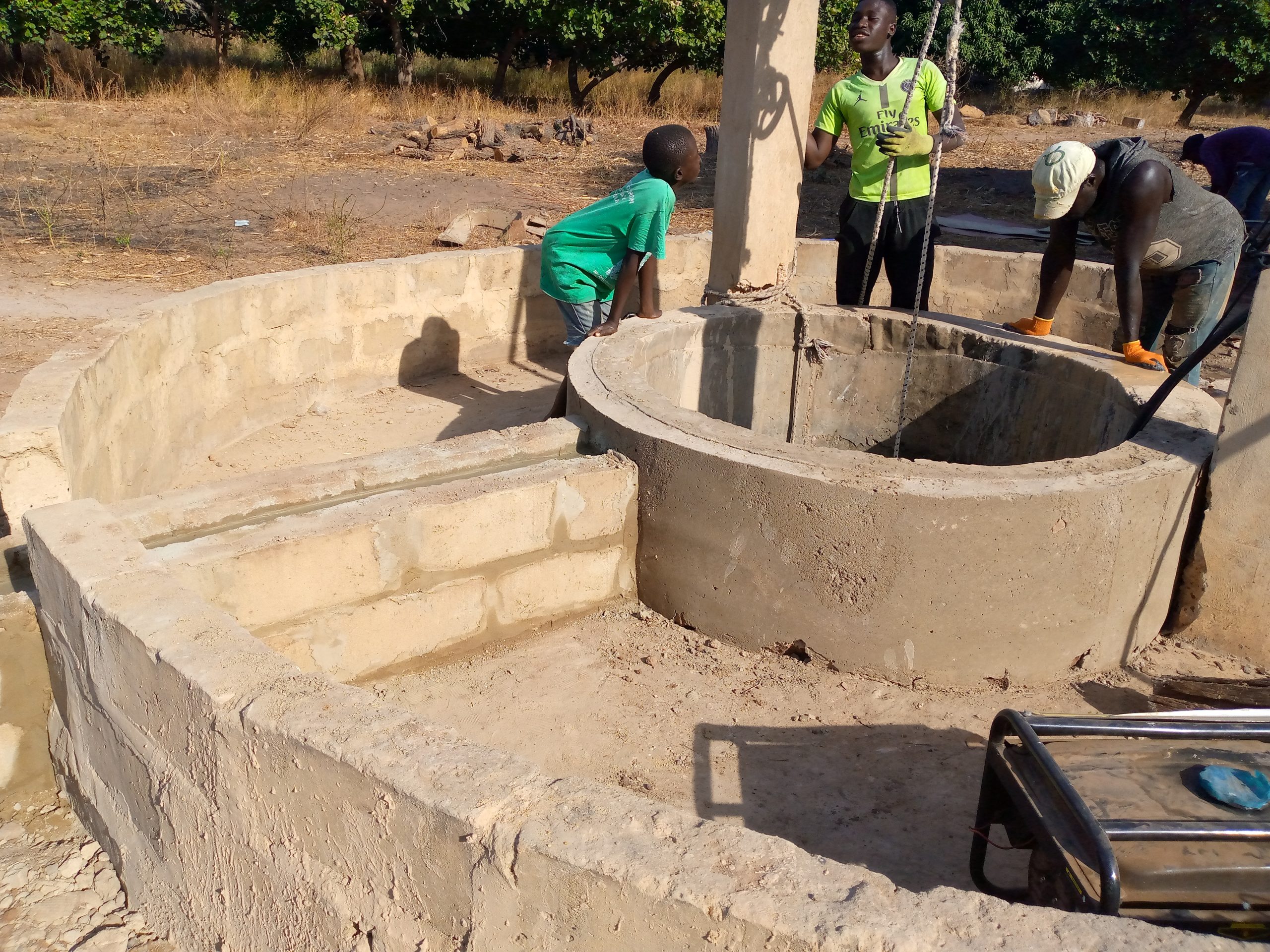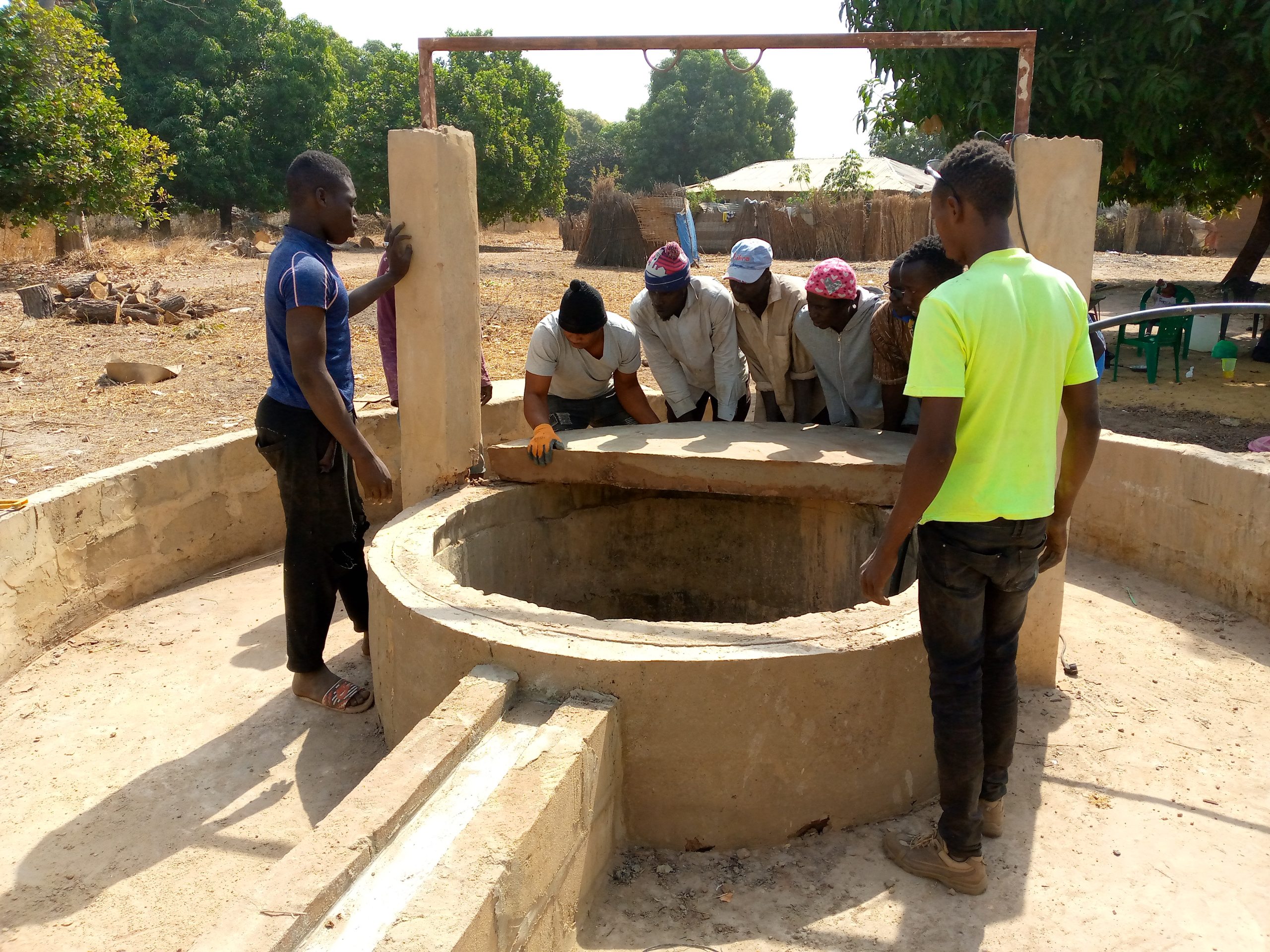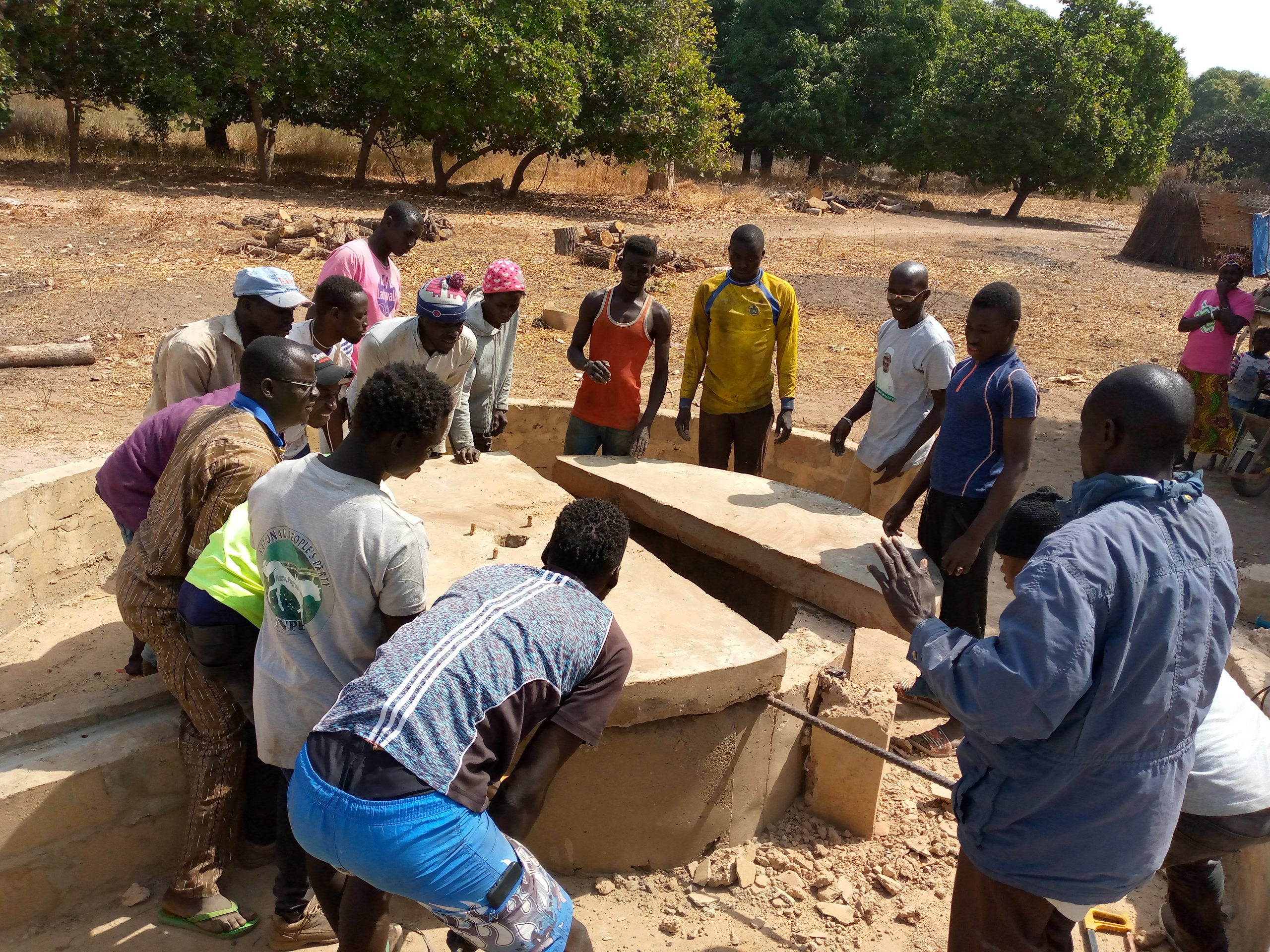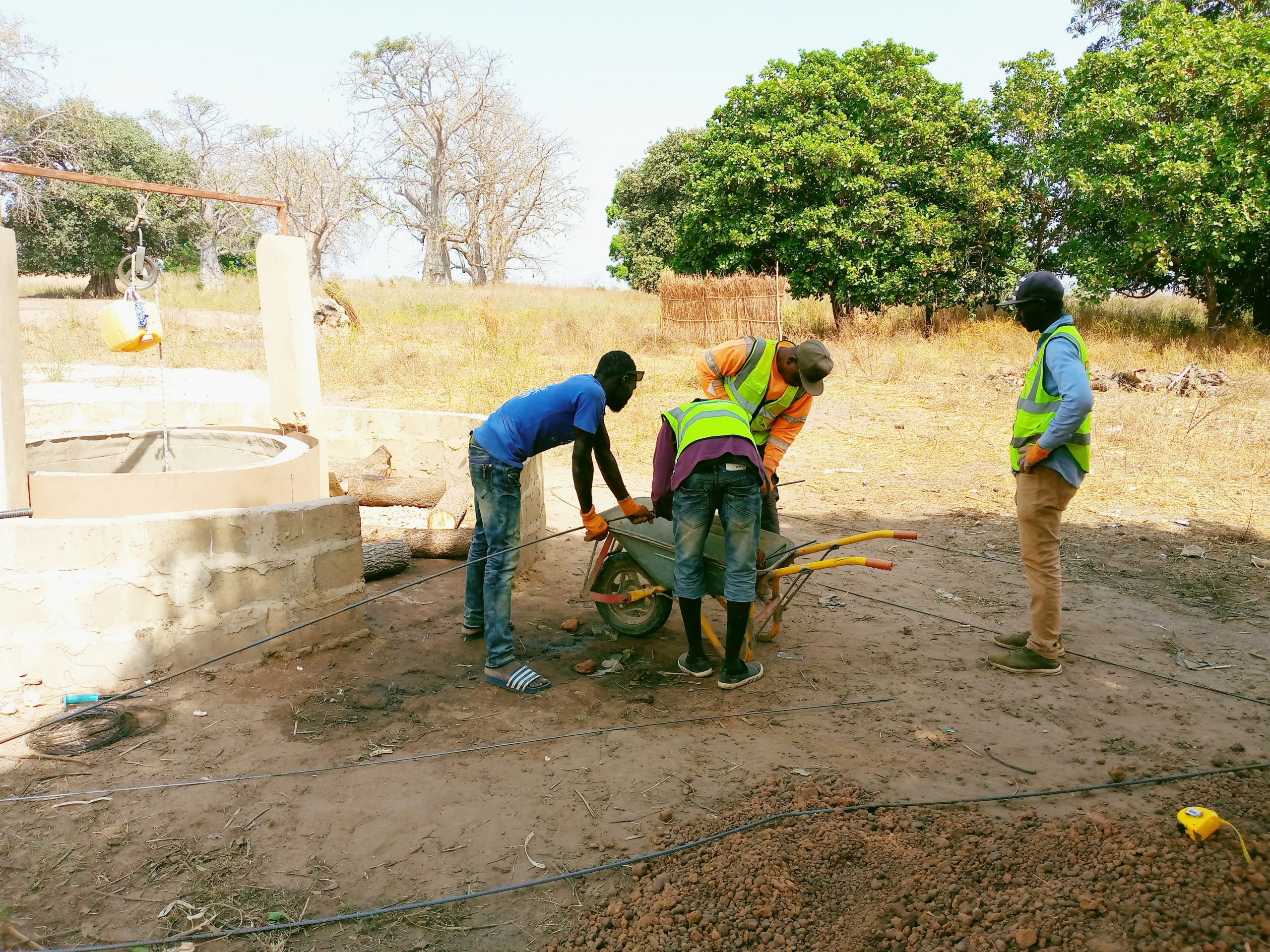In Kiang East, as in the rest of rural The Gambia, declining per capita food production has been a long-standing problem. This problem is compounded by a projected near-doubling of the country’s population. The situation is particularly worrisome in rural settlements where farmers have lost 25% of their purchasing power over the years due to low production, and average annual farm incomes are below GMD 5,000 ($100) per capita.
By and large, residents of Kiang East District practice subsistence farming. Their main occupations are farming, including crop cultivation, cattle rearing, and fishing. In our recent GIS Mapping assessment, we found that most communities in Kiang East District lack access to potable drinking water, and a tiny fraction of communities are still practicing open defecation. This coinciding with the lack of water makes the district hard to live in and unbearable for communities.
JALLOW KUNDA VILLAGE
OUTCOME
The First phase of this project has been successfully completed thanks to Water Charity and its local partner Working Water The Gambia (WWG). This is part of a series of projects launched under the Water for Everyone Initiative. The project mission was to improve water access and sanitation conditions across 5 villages in Kiang East District by rehabilitating handpumps, installing new ones where necessary, and providing hand washing stations to improve sanitation and hygiene in the communities of JALLOW KUNDA VILLAGE, SARE BABOU MANOKANG VILLAGE, SARE PATEH VILLAGE, TORANKA BANTANG VILLAGE and YORO JULA VILLAGE. Thanks to the collaborative support of the villagers in all these villages, the project was completed successfully. This project provides access to clean water and sanitation to over 3,400 people
SARE BABOU MANOKANG VILLAGE
ACTIVITIES
The project saw the successful dewatering, re-digging of wells, and installation of new German Mark 2 cylinders and conversion heads, stainless steel pipes, rod couplings, check nuts, pedestals, axles and bearings. Concrete water troughs were built, new culverts for wells and concrete slabs. Handwashing stations were installed in all project intervention communities supplied with detergents. In partnership with The Gambia’s Department of Water Resources, quality testing and treatment was also conducted at the end of each community project. In each community, learning sessions were held on effective handwashing techniques and simple water management strategies. Communities also participated in manual work like digging and collecting sand and gravel. They also hosted workers, which assured that all materials were secured.
SARE PATEH VILLAGE
OBJECTIVES OF THE PROJECT
- The primary objective of this project is to provide clean drinking water and better sanitation for the people of the selected 5 villages in Kiang East District as for the first phase of the project. This has been successfully achieved at the completion of the project.
- The Kiang area has long suffered from a lack of clean drinking water. The region has been hit hard with mass felling of trees and frequent bushfires. This trend has been ongoing for decades leading to the destruction of forest cover along the district. Widespread charcoal burning among women and men is common. This has contributed significantly towards the water crisis in the district. Recent studies have indicated the drop of the aquifer is linked to the climate change crisis.
- One of the objectives of this project is to provide clean drinking water for marginalized vulnerable communities. Similar to Kiang West, Kiang East also has a lot of isolated villages that feel abandoned and forgotten. These villages are often called ‘’Dumbokono’’ which is a derogatory word meaning inside the barrel, referring to the communities as people living inside a barrel. This project has made them feel heard, socially included, and a part of humanity.
- The project also empowers women and girls. We all know the burden women and girls bear in water collection. Although Kiang East District has embraced education, but indications have shown they favor boys’ education more than girls. This clean water project will empower girls’ participation in school. The time spent on water collection is far shorter now for school-going girls.
- Another important objective of this project is to inculcate the habit of hand washing in communities. At each of the rehabilitated water sources in each community, a hand washing station is provided with detergents and also a learning session on the techniques of effective hand washing. Members of the community gather in the village square for the learning sessions. This is a tool to combat the spread of germs and other communicable diseases that could spread within communities especially after using the toilets. It also aids nursing mothers as well as children to understand the importance of hygiene and sanitation. Participation in the learning sessions was high. Community engagement was immense and enthusiastic.
- In Kiang East District, open defecation is not as big a concern as it is in other regions of the country. Nonetheless, another key objective of these water projects is to facilitate round-the-clock household access to water. This will steer people away from going outside to defecate. The availability of water in the households is a catalyst towards the cessation of open defecation.
- Another objective of these projects is to encourage women’s engagement in household-level horticulture gardening. Every rehabilitated water source includes a concrete watering trough. The water trough traps wastewater from the hand pump and can be used by nearby houses for small-scale household horticulture vegetable gardening. This avoids the wastage of water and allows households to grow vegetables and enables their livestock to drink. This helps provide the households with a balanced diet and thereby alleviates the extreme poverty communities’ face, especially in the dry season. This will help minimize the felling of trees for charcoal burning etc.
- Another key objective of this project is to cut down the high rate of water-related illnesses in the recipient communities. Children often face the brunt when it comes to waterborne diseases. Certain households are drained of all resources when a family is struck with waterborne diseases. These water projects will lessen the burden on communities and money that would otherwise be spent on doctors or medicine can be used for food or for girls’ education instead. The distances between villages and health centers are far away and road networks are poor. This project will improve the health, sanitation and hygiene of beneficiary communities.
- Setting up and training village water management committees was another objective of the project. We set up and trained water management committees in all the project communities. They help in the day-to-day management and maintenance of the water source. This will help make the project sustainable. As best practice, we ensure the committee is gender-balanced and that women have a say in the maintenance and management of the water source. Traditional women communicators known as ‘’Kanyeleng’’ are also involved in the sensitization of communities for better water management.
TORANKA BANTANG VILLAGE
BENEFICIARY TESTIMONIAL
The excitement and happiness are overwhelming in all the beneficiary communities. Heads of villages of the respective 5 villages all expressed their sincere thanks for the projects and happiness, highlighting the positive impact that these clean water projects have in their lives. The local councilor of the district Sulayman Sanneh, heaped praises on and thanks to Water Charity. He also mentioned the social and economic importance of the water projects, as well as the tremendous importance of clean drinking water for the communities, especially in relation to the provision of education and increased well-being. Mariama Baldeh, Ndabo Gisseh, Muminou Sawaneh and Dozens of other women within the beneficiary communities promised to take up household vegetable gardening in order to lower the massive feeling of trees for charcoal burning. This water project will provide us with sufficient clean drinking water and also extra water to do vegetable gardening. We will take full advantage of this opportunity to practice household vegetable gardening. The provision of hand washing stations will also help boost our overall health and wellbeing they said. I am a tailor and I have a sewing machine in the village but nowadays my life has been lowered to daily water collection for my family. That has made our livelihood so hard. With this water project, I can now concentrate on my work as a tailor and feed my family, said Musa Janko a native of Sare Pateh Village. Thanks to Water Charity for making life easier for us. My wife and I and my kids usually walk miles daily in search for clean drinking water in nearby villages, said Gando Bah. We are hugely relieved now we have clean drinking water in our community.
Dozens of cultural and social leaders within the beneficiary communities expressed their delight and happiness for these water projects, as they have come at a better time when they are faced with lots of social, economic and environmental challenges. Adama Sanneh, a representative of the traditional chief Mr. Karan Ansu Sanneh, expressed thanks and gratitude for the water projects. He urged for peace, brotherhood and tranquility now that there is ample clean drinking water flowing in the 5 communities. These projects will unify Mandinka, Fula and other tribes. Water is a unifier he said. He also asked for more projects of this kind in other parts of the district. Our district is in urgent need of more water projects he said. He also urged for the effective protection and proper management of the water sources.
Thanks to donors for making these projects successful.
YORO JULA VILLAGE
This project has been completed. To read about the beginning of the project, CLICK HERE.
